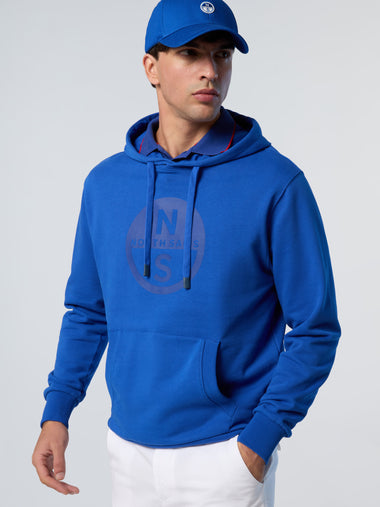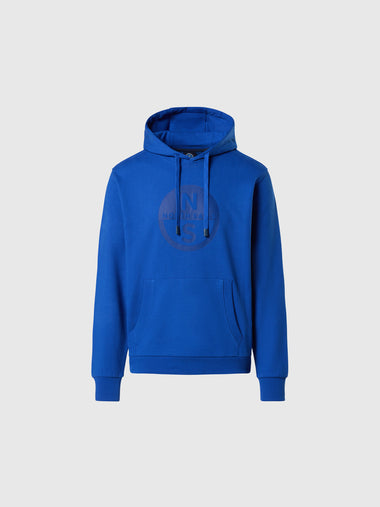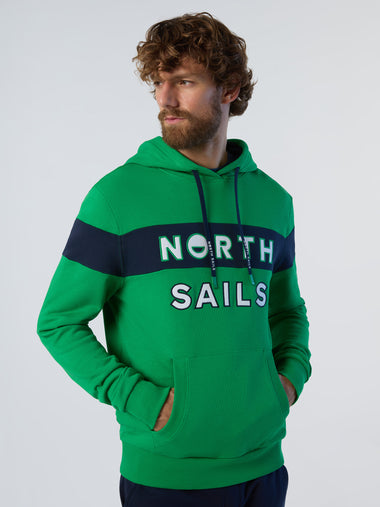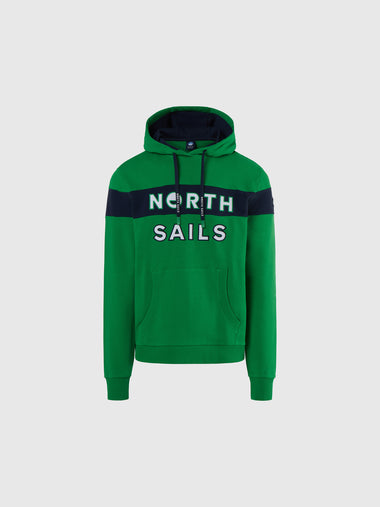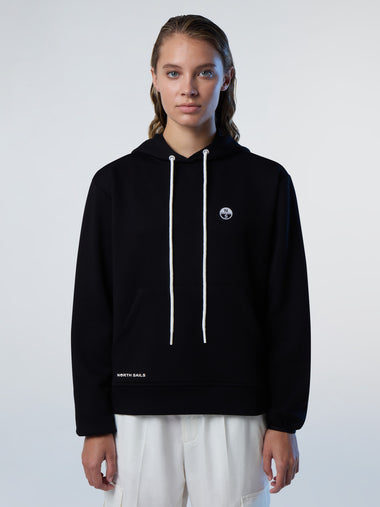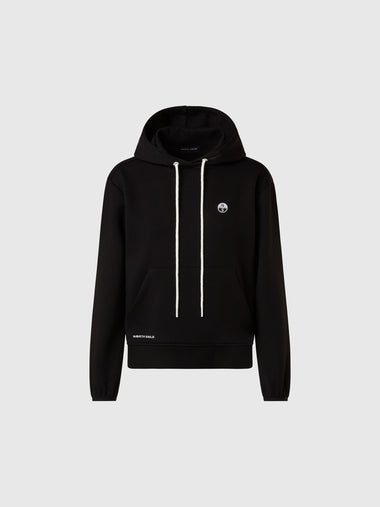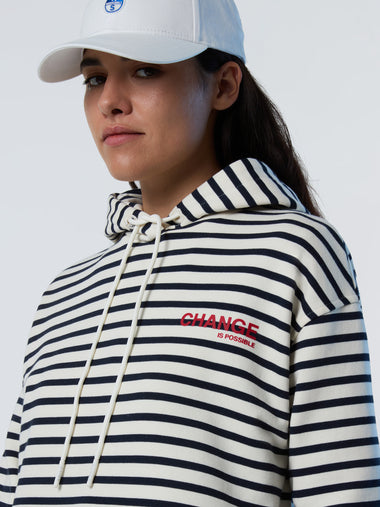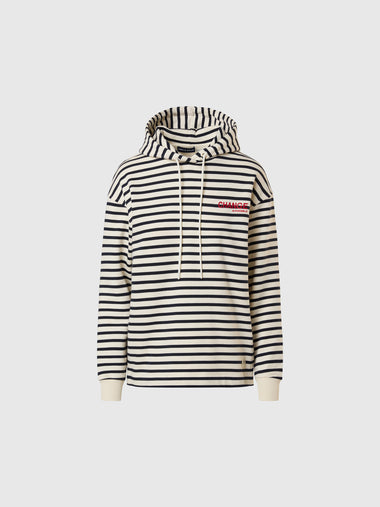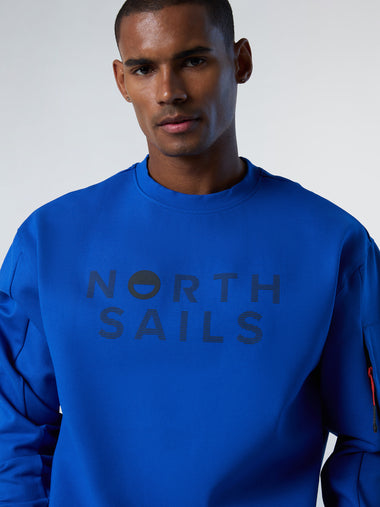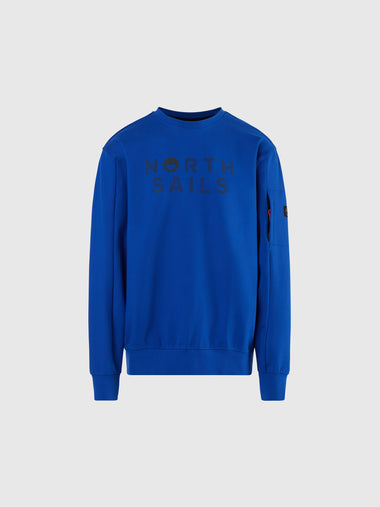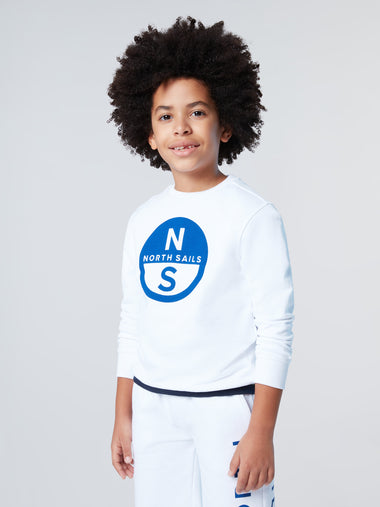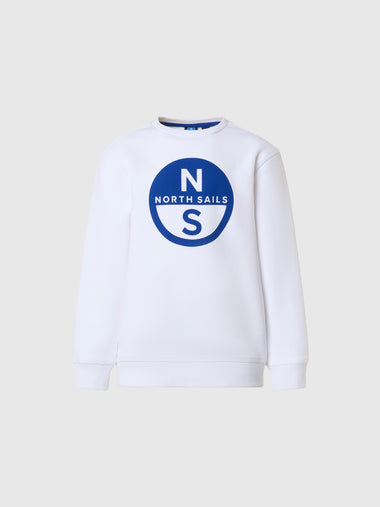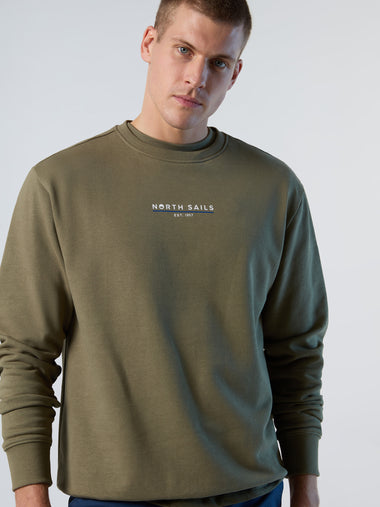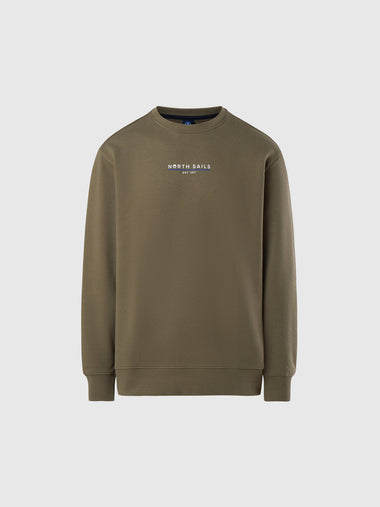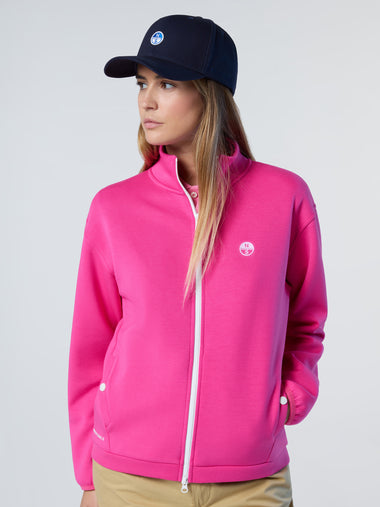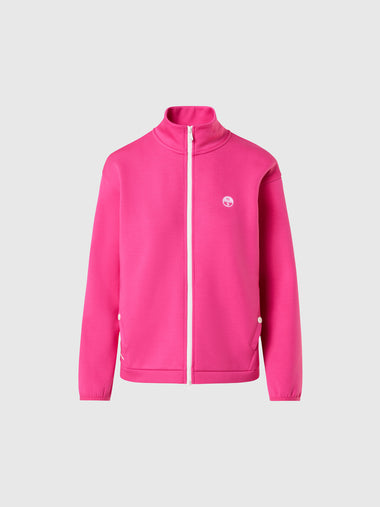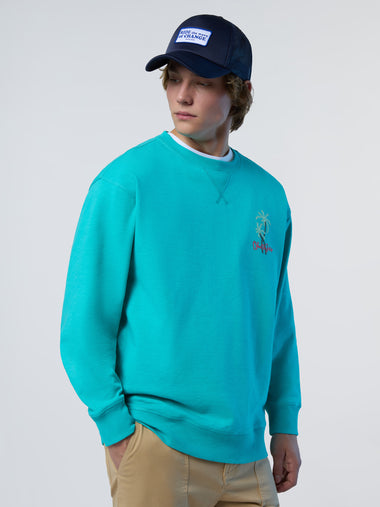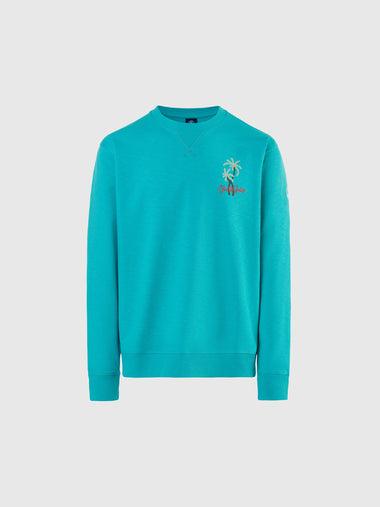NORTH SAILS BLOG
Todo
Events
Guides
News
People
Podcast
Sustainability
Tech & Innovation
Travel & Adventure
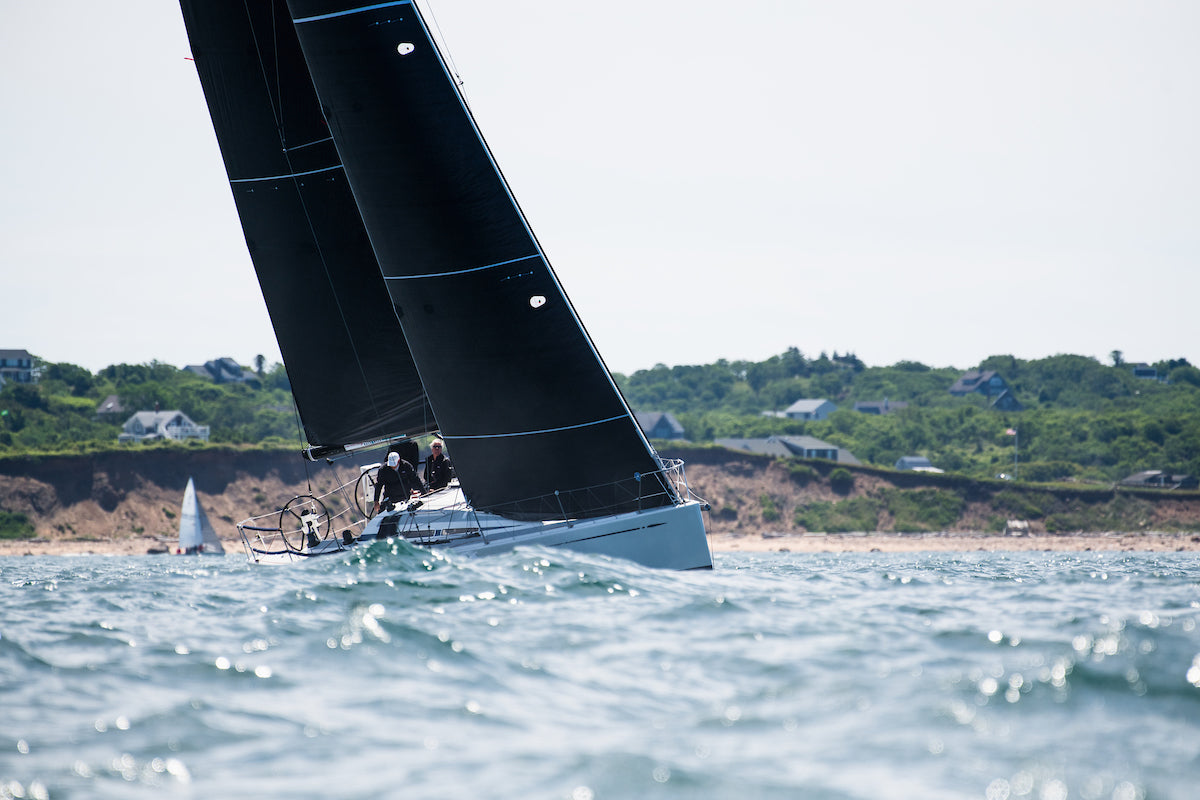
news
HOW LONG DO 3Di SAILS LAST?
HOW LONG DO 3Di SAILS LAST?
North Sails expert Mark Bradford explains that 3Di sails last “longer than you might think”
📸 Cate Brown
Most sailors shopping for a new 3Di sail ask, “how long will it last?” Based on years of record-keeping, I can honestly say that the competitive life of a 3Di sail is far superior to any other technology on the market. It’s also much better than 3DL, our previous molded technology.
There are far too many variables to predict precisely how long a sail will last, but we now expect race sails to remain competitive for several seasons. That’s a significant change from a decade ago, and it makes perfect sense once you understand how 3Di sails are constructed.
The biggest killer of sails is UV. 3Di sails contain zero Mylar (the main culprit of delamination, use environmentally stable thermo-set adhesive (as opposed to thermoplastic hot-melt) and have a UV protectant added to the outermost surface. They’ll stand up better to the sun than any other sail material. The surface might degrade a bit, especially in the tropics, but those top layers protect the basic structure. As a result, when older sails come into our loft for annual maintenance, we often have trouble finding any damage at all.
One great example of 3Di’s extended life comes from the annual race from Sydney to Hobart. I sail on Black Jack, and before 3Di, we often carried a spare main in case we blew up the first one. Now we’re doing two or even three races with the exact same sail, all thanks to the longevity and reliability of 3Di compared to either 3DL or our competitor’s so-called high-performance options.
Our customer’s buying habits have changed, too. Before 3Di, whenever a customer bought a new race boat, they’d buy three mains: inshore racing, offshore racing, and deliveries. If they took outstanding care of their inventory, they might get three years out of the offshore and delivery mains and one to two years out of the inshore main.
But changing mainsails can be a day’s work for several people, so after seeing how fresh the VO65 3Di sails looked after at the end of the last two Volvo Ocean Races, some of the hundred-footer crews got savvy and delivered the boat home again with the race sail. When they realized the main looked exactly the same even after all those extra miles, that one-mainsail trend trickled down to the smaller race boats as well.
Today, even our most particular racing customers with new boats are only ordering a single mainsail. So that’s the best vote of confidence we could imagine about how well this product lasts. And it’s also a lot less hassle for them because once they get the sails set up on their boat, they’re not tweaking and adjusting and switching one in for another and vice versa. They’re simply pulling up the sail, using it, and then putting it away.
And 3Di isn’t limited to racing boats. In 2020, North Sails introduced 3Di Ocean, a full product line engineered to deliver the benefits of 3Di to the cruising community. For example, we used to tell offshore cruisers that Dacron sails would last for one circumnavigation. Now we tell them they could do two or three laps around the world with the same sail inventory, as long as they have them serviced at one of our worldwide lofts.
Whether you race or cruise, your new 3Di sails will undoubtedly last longer than you think. And it will last longer than any of our competitors’ products. What you’ll experience is a greatly extended lifespan, the longevity of a stable sail shape, and fewer replacement sails less often. Yes, 3Di is a premium product and may initially be the more expensive option, but its cost of ownership over seasons is unmatched.
For more details, contact your local North Sails expert today.
📸 Cate Brown
READ MORE
READ MORE
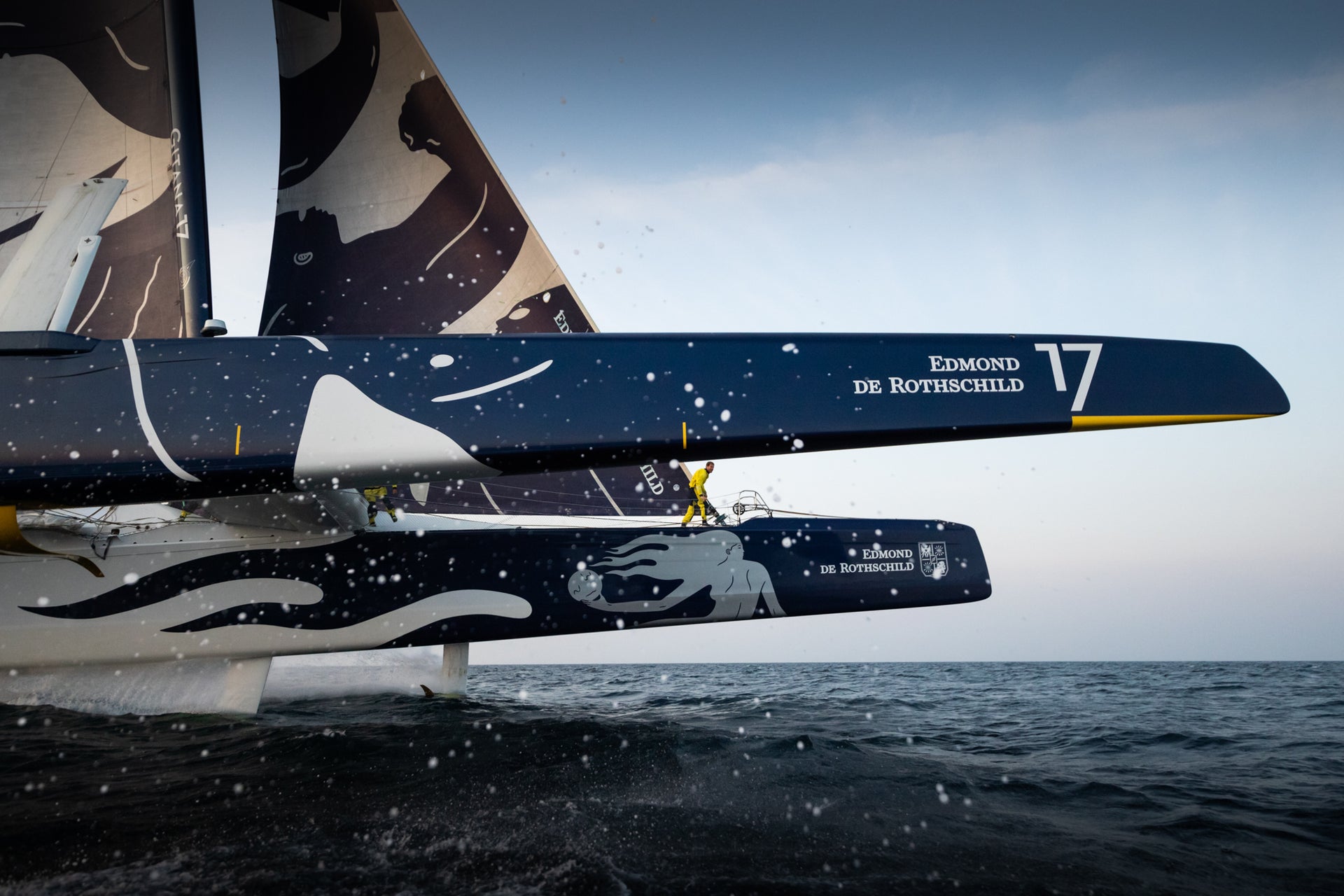
news
GEAR TO CONQUER OFFSHORE SAILING
GEAR TO CONQUER OFFSHORE SAILING
Gitana Team Joins Forces with North Sails Performance Collection
📸Eloi Stichelbaut
The Gitana Team, an offshore racing stable founded in 2000 by Ariane and Benjamin de Rothschild, has announced its selection of North Sails Performance clothing. North Sails Performance is the new game-changing range of technical foul weather gear and deck wear designed alongside technical sailing clothing designer Nigel Musto.
During the Rolex Fastnet Race 2021, the Maxi Edmond de Rothschild crew, led by their dual skippers Charles Caudrelier and Franck Cammas, had the opportunity to showcase the new technical gear during their second consecutive victory. At the end of this year, the six-strong crew will launch an attempt at the Jules Verne Trophy, the ultimate sailing record, which they aim to achieve under the symbolic 40 days mark. However, before that, the Maxi Edmond de Rothschild skippers will be enjoying a long double-handed transatlantic – the Transat Jacques Vabre – a 7,500-mile race from Le Havre to Martinique via the Trindade archipelago and Matim Vaz off Rio de Janeiro. The field of Ultimes entered looks set to provide thrilling competition.
View this post on Instagram
A post shared by North Sails (@north_sails)
“To support our ambitious round-the-world racing program, we have chosen to trust North Sails Performance. The Maxi Edmond de Rothschild was the first oceanic maxi-trimaran designed to fly on the high seas; it marks a new generation of multihulls and opens a new way of offshore racing. We are deeply attached to this pioneering spirit, as well as to the innovation and performance that are part of the family DNA of our shipowners Ariane and Benjamin de Rothschild. As a result, we have every confidence in the performance of this new generation of North Sails technical clothing.” Cyril Dardashti, CEO Team Gitana .
For complete foul weather protection, the Gitana Team has purchased the North Sails Performance Offshore Smock, Offshore Jacket, and Ocean Trousers for their crew. Additionally, Gitana Team has selected the Inshore Race range, which is well suited to the protection offered by the 32-meter giant’s enclosed cockpit. Items chosen include the Inshore Race Hybrid Jacket and Inshore Race Smock. Finally, Gitana Team has also selected items from the GP Aero range, constructed in a slim, stretch fit – ideal clothing for those who view sailing as a truly athletic sport.
“We’re very proud that Gitana Team has chosen to wear our kit, we set out to make the best foul weather gear in the world, and it’s a very special day at the office when a world-dominating team like Gitana confirms that you’ve achieved your goal. Of course, all at North Sails will be cheering them on very loudly as they hunt down their targets,” Marisa Selfa, CEO of North Sails Apparel, added.
📸Yann Riou / PolaRYSE / Gitana S.A.
READ MORE
READ MORE
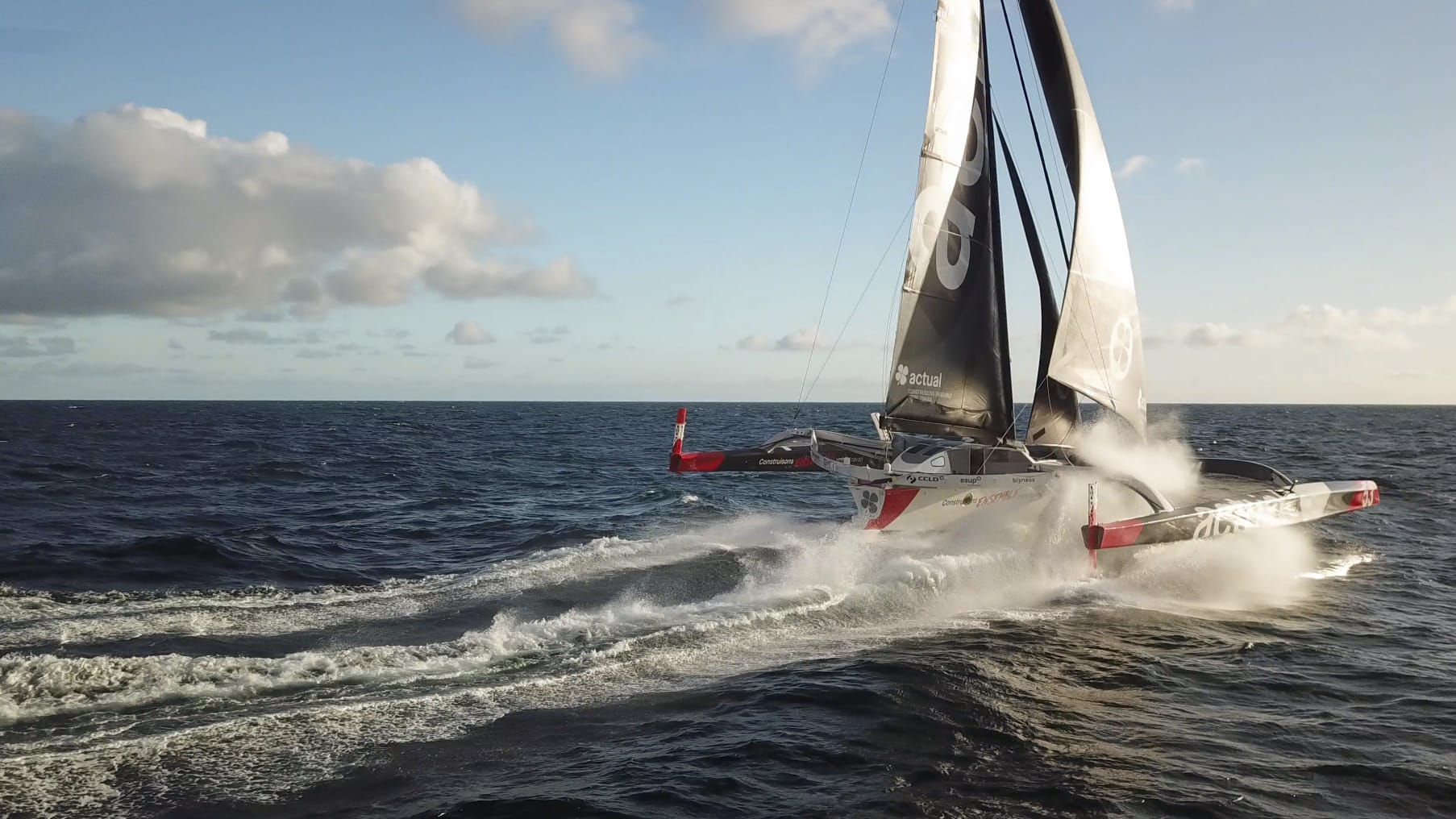
news
TEAM ACTUAL AIM FOR VICTORY AT THE ROLEX FASTNET RACE
THE ULTIMES AT THE 2021 ROLEX FASTNET RACE: TEAM ACTUAL
Skipper Yves Le Blevec and Team Actual Aim for Victory
After an ankle injury that required a few weeks onshore to recover, French Brittany-based skipper Yves Le Blevec is eager to get back on the helm of his trimaran Actual Ultim 3 (formerly Francois Gabart’s Macif) for the Rolex Fastnet Race. While he wasn’t able to sail, he continued to gather information from his sailing team, which includes: Anthony Marchand, co-skipper of the Transat Jacques Vabre; Yoann Richomme, skipper of the V065 Mirpuri Foundation Racing Team; Hugo Kerhascoët, in charge of Actual Ultim 3‘s electronic foil regulation systems; Jean-Baptiste Le Vaillant, historical specialist of Maxi Trimarans; Amélie Grassi, sailor; and Anne-Kristell Jouan, mediaman.
“It’s great to be back on the boat and prepare to compete on the water,” says Le Blevec. “I feel 100% confident in my ability to be onboard, thanks to the extraordinary work by the medical team at the Kerpape Center in Morbihan.”
Last April, the trimaran was relaunched under the Team Actual colors after a five-month refit. To familiarize himself with the new boat, Le Blevec committed to a handful of sailing sessions with the boat’s former skipper François Gabart. “Watching the way François sails is very instructive. You learn something new every day because we don’t operate in the same way. We know how these complex machines work. But the principle of performance is to constantly question and challenge ourselves. This allows us to constantly evaluate what we know. With Mer Concept, who designed this boat, we have defined a feedback program to evaluate performance. When we return from the Fastnet, we will have some joint training sessions with SVR Lazartigue to compare the data from the two boats.”
View this post on Instagram
A post shared by Team Actual (@team_actual_officiel)
The changes made to the trimaran since she was acquired are minimal, Le Blevec adds. “This boat is a well thought-out design. So we followed the roadmap set out by the previous team to develop the new daggerboard and a new central rudder. There will be some progress, but no major revolution. As we sail, we’ll see how to get the most out of the boat. There are still some subtleties to discover. After the Fastnet, we could change the galley space for the crew, because right now it’s very confined.”
The boat was delivered with a set of sails in good condition, notes Le Blevec. “Like the boat, we didn’t make any major modifications to the sails. We spent a lot of time with North designers Alan Pennaneach and Quentin Ponroy, to review each sail and their history, according to the specifications initially set up with MerConcept. The mainsail had been modified for the Transat, and we completed those modifications.”
For the Fastnet, they were still deciding which headsail to use. “We have two J1s, one that is tucked inside the mainsheet and the other on the draft point of the J2, and we will have to choose which of these we will take onboard for the race. We will also have to think about it before the start of the Transat Jacques Vabre next November. For that, we need to log miles, which will allow us to identify the gaps depending on the weather conditions. We have some ideas for modifications, but there is no need to change the sails for the moment.”
Compared to his previous Ultime, Le Blevec notes a real gain in performance at certain points of sail: “We have entered another mode of navigation! Her target speed upwind in a 25-knot wind can reach 27-28 knots on foils. The crew has already experienced sequences of flying at 40 knots, with a peak of 44 knots. It’s exciting.” He also observes that in heavy seas, the boat is more fluid and hits the waves much less than his old trimaran.
“There are still a lot of adjustments to be made, but we are excited to be sailing against the other competitors,” Le Blevec says. “Alone in training it’s always difficult to evaluate your performance, especially since these Ultimes are by nature very fast machines.”
The Rolex Fastnet Race remains a classic among classics, he concludes, and it’s always a pleasure to return, even if there can be only one winner in the end. According to him, the finish in Cherbourg, France, represents a great demonstration of freedom from borders. “The course is significantly longer, even if it remains short for the Ultimes. But to complete the Fastnet in just 24 hours is an extraordinary thing.”
North Sails equips three Ultimes taking part in the 2021 Rolex Fastnet Race. We spoke to the crews about their project, the evolution of their boat and sails, as well as their Fastnet training program and their expectations for this edition. You can access our other stories via the links below.
Edmond de Rothschild Sodebo Other Fastnet Stories
📸 Thomas Deregnieaux
READ MORE
READ MORE
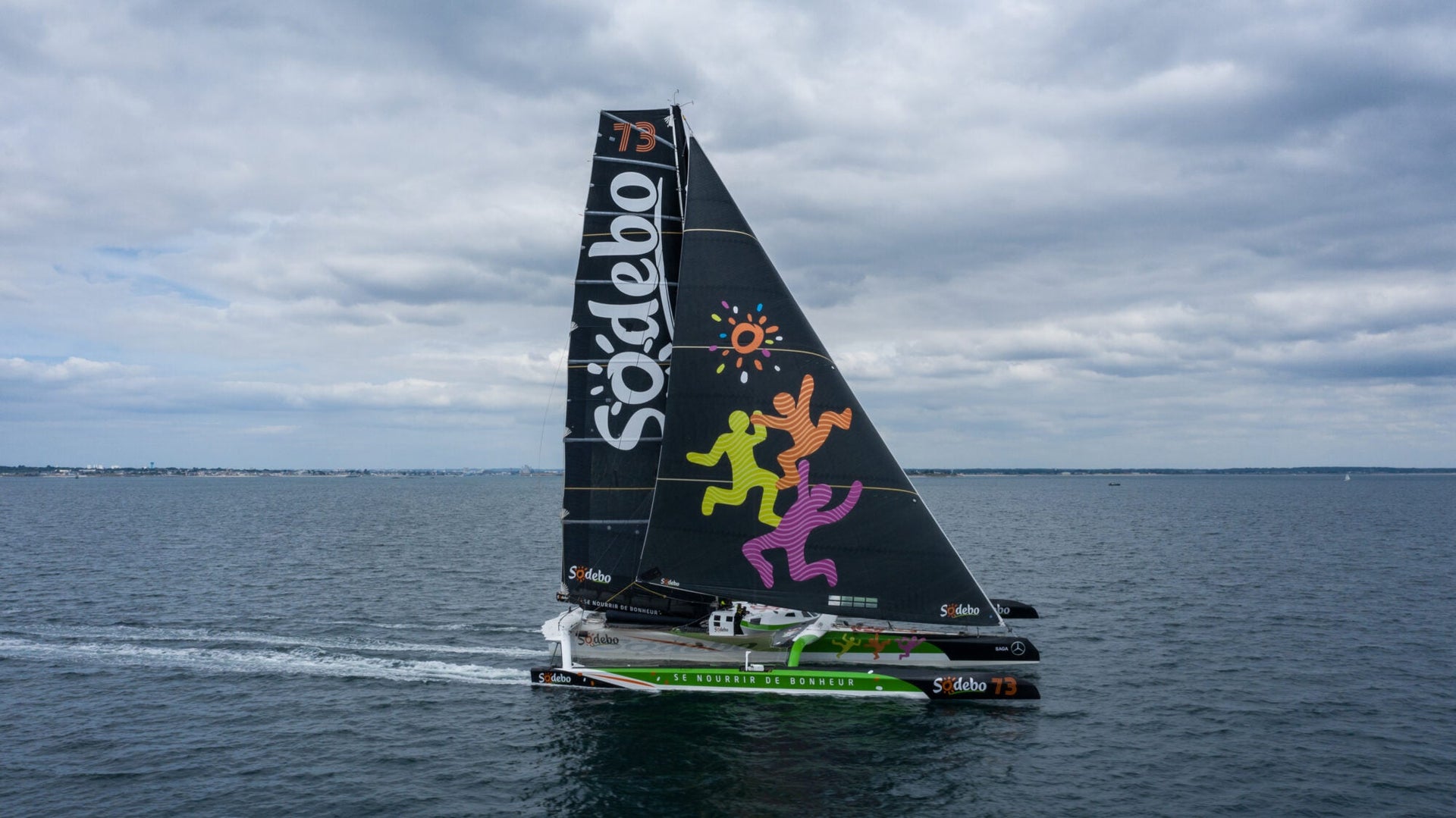
news
SODEBO ULTIME 3 IS ROLEX FASTNET RACE READY
THE ULTIMES AT THE 2021 ROLEX FASTNET RACE: TEAM SODEBO
Offshore Veteran Thomas Coville Expects Intense Competition
📸 Martin Keruzoré
Sodebo Ultim 3, a latest-generation boat skippered by Thomas Coville, will line up at the start of the Rolex Fastnet Race against the other Ultimes. The sailing team includes Thomas Rouxel, Corentin Horeau, François Duguet, Matthieu Vandame, Léonard Legrand and Thierry Douillard, and part of the crew was also involved in the team’s 2020 Jules Verne Trophy attempt.
“We are probably one of the boats that has sailed the most,” Colville says. “These 32-meter boats are technically complex and very demanding. It’s exciting, because the project management is constant.”
Despite ever-changing circumstances since the launch in 2019, Coville has a positive assessment of the last two years. “We have experienced a dynamic and creative period with a vast amount of internal collaborative work. We have set up a design office to coordinate our work with the best experts in each specialty, and a rotating leadership that adapts according to the skills of each person.”
Right from designer Renaud Banuls’ very first drafts, the team focused on aerodynamics and worked closely with North Sails.
“To design this boat, we started with the experience of the previous boat, and the old sail surfaces. We then redesigned the sail plan,” explains Coville. “We are very much linked to North’s studies and involvement on our internal platform. With Gautier Sergent, we started with the sail plan and aerodynamics to think about how we could integrate with different parameters linked to the boat’s behavior, such as the centering of the weight. Each element interacted with another element to make the whole reflection loop work. From the power of the boat generated by the sail plan, we created a hydrodynamic package to balance these forces. That was pretty innovative.”
This interactive approach continued right up until their 2020 Jules Vernes Trophy attempt, and the sailing team returned with a wealth of data combined with a rich experience to further evolve both the boat and the sail plan. “There were some sail shapes that we were happy with, and we made some nice changes to the mainsail and gennaker. For each sail, we are looking for an optimization between the structure and the shape. As far as Helix technology is concerned, we’ve seen clear improvements, especially on the second version of the new set with the data feedback.”
Coville is a Rolex Fastnet Race veteran and says each edition is different. “I love this race, because it was one of my first competitions as a young sailor, which introduced me to ocean racing and to the Anglo-Saxon sailing world. At the time, Cowes was the Mecca of ocean racing and all the nations came to compete. You could meet all types of sailors, from amateurs to professionals, in a festive atmosphere and with good chemistry.”
He doesn’t think the new course format will change the race very much. But he predicts this first match-up between the Ultimes will be quite intense; “We have been sailing a lot lately, but with a team led by Franck Cammas and Charles Caudrelier, two sharp sailors on a boat that has reached maturity, and another team skippered by Yves Le Blevec, who has a boat with a solid track record…” it will be a great battle for line honors into Cherbourg.
North Sails equips three Ultimes taking part in the 2021 Rolex Fastnet Race. We spoke to the crews about their project, the evolution of their boat and sails, as well as their Fastnet training program and their expectations for this edition. You can access our other stories via the links below.
Team Actual 3 Edmond de Rothschild Other Fastnet Stories
📸 Martin Keruzoé
READ MORE
READ MORE
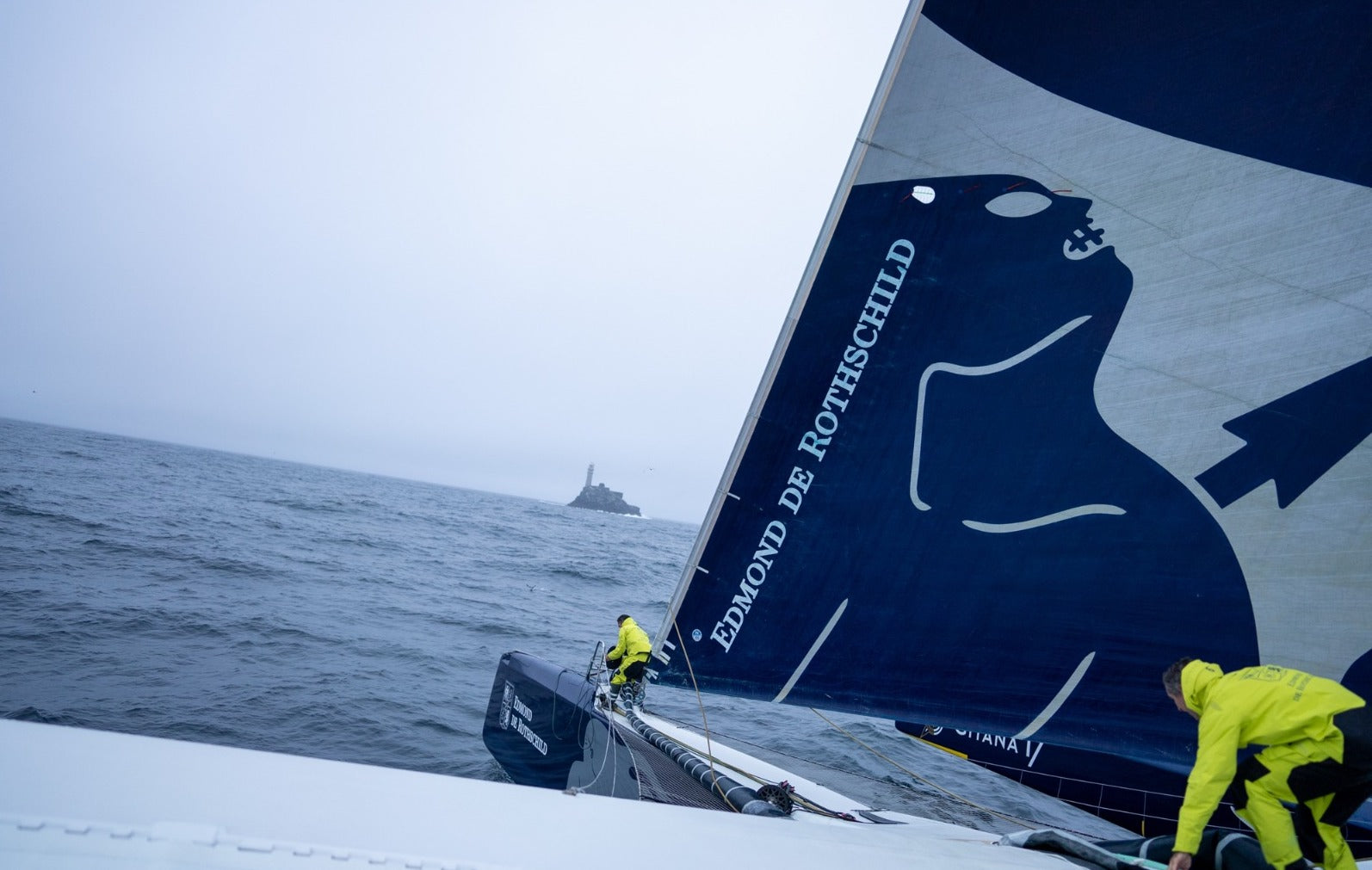
news
ULTIME EDMOND DE ROTHSCHILD BACK TO DEFEND FASTNET TITLE
THE ULTIMES AT THE 2021 ROLEX FASTNET RACE: GITANA TEAM
Edmond de Rothschild Back to Defend Their Title
📸 Yann Riou / polaRYSE / Gitana Team
The winner of the previous Rolex Fastnet Race, the Maxi Edmond de Rothchild is back to defend her title. In 2019, the trimaran led by Gitana Team beat François Gabart’s Macif by a mere 59 seconds. Since then, many improvements have been made to the boat’s appendages and systems; they’ve also added a brand new North Sails inventory. “The emphasis has been placed on aerodynamics,” says co-skipper Franck Cammas. “We’ve worked on many aspects in detail, but no revolutionary changes.”
The team has noticed real performance gains with their Helix structured luff sails. “We had problems with heavy loads deforming the forestay,” explains co-skipper Charles Caudrelier. “With Helix, the loads are redistributed, which allows us to have a straighter, stiffer luff. In particular, the Helix J0 is a small revolution. We are still in a discovery phase, but the gains are clear.”
Thanks to these upgrades, Edmond de Rothschild has been logging 30-40 knots depending on wind conditions. At those speeds, the team could cross the finish line in Cherbourg in less than 24 hours. Caudrelier points out that the new course allows for a more open game, as they have the whole English Channel to cross. “It will be interesting for the Ultimes. There will be close racing with a more technical course off Cherbourg. And of course this French city provides a nice setting for an arrival celebration.”
But first, the giant trimarans must maneuver their way through a start off Cowes, a tricky feat for the largest boats in the race.
“The English coastline is a great playground and one of the most complicated in terms of sailing,” Caudrelier says.
Cammas agrees. “Even if the course is short for Ultimes, this race remains a great pre-game for the Transat Jacques Vabre.”
In order to maximize options in all possible conditions, the team will also keep its standard set of sails onboard. “A gennaker covers a range of wind speeds from 10 to 40 knots,” Cammas explains. “This reduces the number of sail changes, very physical maneuvers that require the crew’s full attention.”
The entire team is fully committed to continued evolution, and the boat will be fitted with new foils after the Fastnet. Caudrelier says that they also want to keep refining the sail plan. “Do we want deeper sails, flatter or more twisted? We made some modifications in a direction that interested us. But it is difficult to evaluate the performance of a sail because the figures from one day to another are different. In the previous Fastnet, we were a bit faster downwind. But our preferred points of sail are upwind and reaching. That said, this edition is more competitive, and we expect to uncover feedback to help close these gaps.”
“We don’t have the human and technical resources to change sails or appendages every year,” Caudrelier explains. “But we change what we think is most relevant.”
It is also difficult to make comparisons across the fleet, because each Ultime features very different design concepts and structure, which demand different sail combinations.
“The two new boats Banque Populaire (Armel Le Cléac’h) and SVR-Lazartigue (François Gabart)> will be absent from this edition,” Caudrelier says. “Some teams have added larger foils and larger wings on the daggerboard to improve their hydro. Obviously, the tweaks are not revolutionary, but it is the sum of the small things that make the difference. In the end, we all have weak and strong points. The Fastnet will be an opportunity for us to both gauge our performance and test some sails to design the set for next year.”
📸 Yann Riou / polaRSYE / Gitana S.A.
Aside from the high-caliber competition, what the Edmond de Rothchild crew fears most is hitting UFOs; submerged objects plagued the team throughout training and during last year’s Jules Verne Trophy attempt. “There is always a risk and an apprehension of hitting something,” says Caudrelier. “The impacts are often violent, and the damage is significant.”
The crew includes Morgan Lagravière, David Boileau, Erwan Israel, and Yann Riou, and all are looking forward to their first competition since the Brest Atlantiques and to measuring themselves against their opponents. Will their continuous improvement be enough to defend their 2019 title against such tough competition? Stay tuned for an exciting finish in Cherbourg.
North Sails equips three Ultimes taking part in the 2021 Rolex Fastnet Race. We spoke to the crews about their project, the evolution of their boat and sails, as well as their Fastnet training program and their expectations for this edition. You can access our other stories via the links below.
Sodebo Team Actual Other Fastnet Stories
📸 Eloi Stichelbaut / polaRYSE / Gitana S.A.
READ MORE
READ MORE
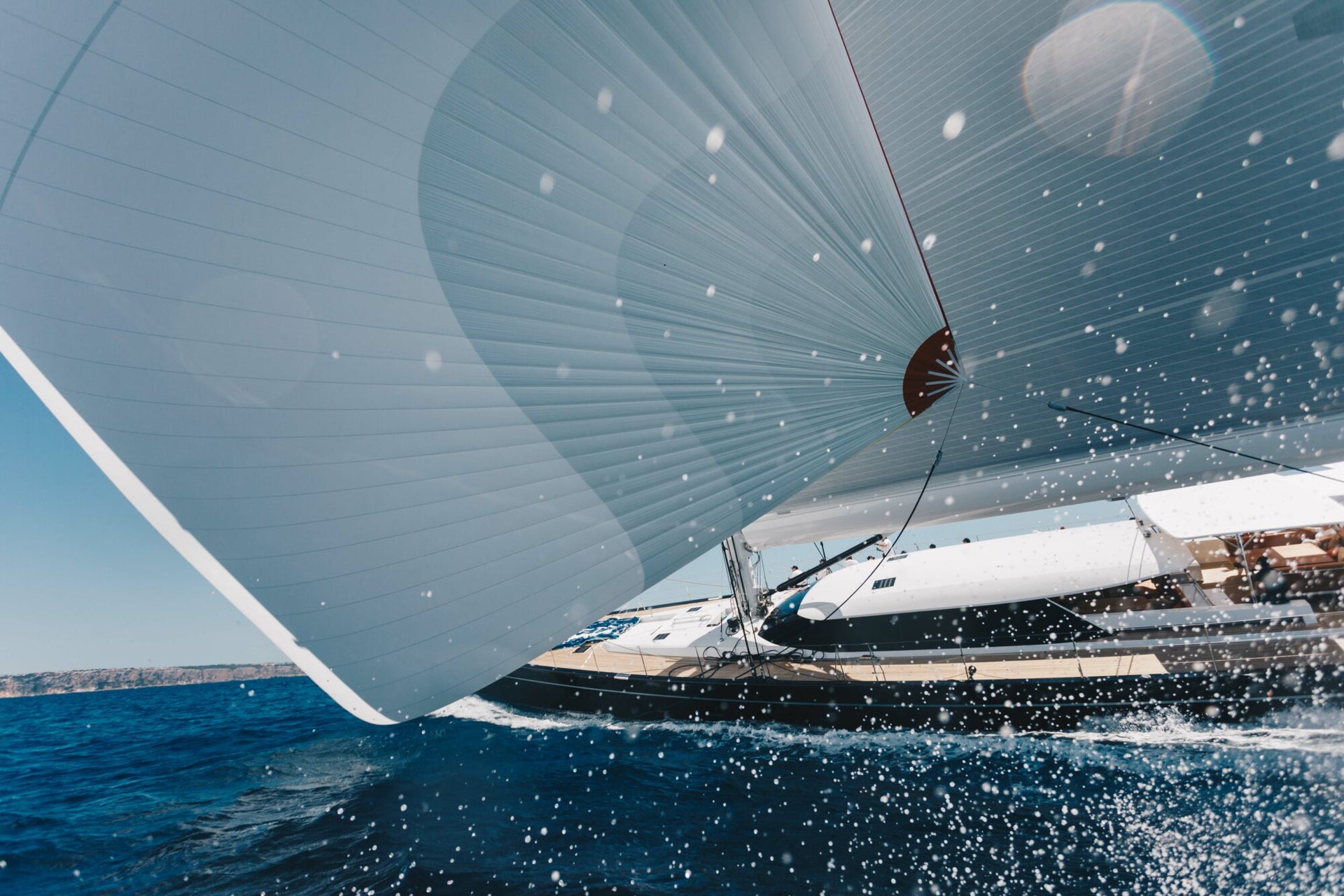
news
DELIVERING A WINNING COMBINATION FOR SUPERYACHTS
DELIVERING A WINNING COMBINATION FOR SUPERYACHTS
The right people, and product paired with a heavy dose of passion
📸 Atila Madrona
I think if you asked Lowell North, he’d be pleasantly surprised by the growth of superyacht sailing but not shocked that North Sails is the leader in this segment of the sport. That’s because his founding philosophy is particularly well suited to outfitting the biggest boats in the world; get the best people, commit yourself to make the best product, be clear, creative, methodical, and competitive, and surpass your wildest expectations.
There is no such thing as a production superyacht; each owner has their unique concept, which requires a unique solution. Reflecting on the past 15 years, the size and power of superyachts have slowly been creeping up, demanding our team to work hand in hand with owners, yacht designers, shipyards, captains, and project managers to find solutions to challenges that never existed before. You take these projects one-by-one but then quickly remember that the 3Di sail we molded last month broke a new manufacturing record, set by the previous 3Di superyacht inventory we delivered.
A handful of the North team recently participated in the Superyacht Cup Palma. This long-standing regatta is always a much-anticipated event on the superyacht racing calendar. Both in 2019 and then again this year, the fleet was entirely powered by North Sails. Hosted in the heart of activity, the Superyacht Cup is a whole team effort for North Sails. We have our sail experts and sail designers onboard many of the competing yachts. In addition, our Palma loft is onsite with sail service. We work closely with our sister company Southern Spars, to make sure all our clients have access to the necessary support.
During the event, our team sat to share their thoughts on how here at North Sails, we deliver a winning combination.
READ MORE
READ MORE
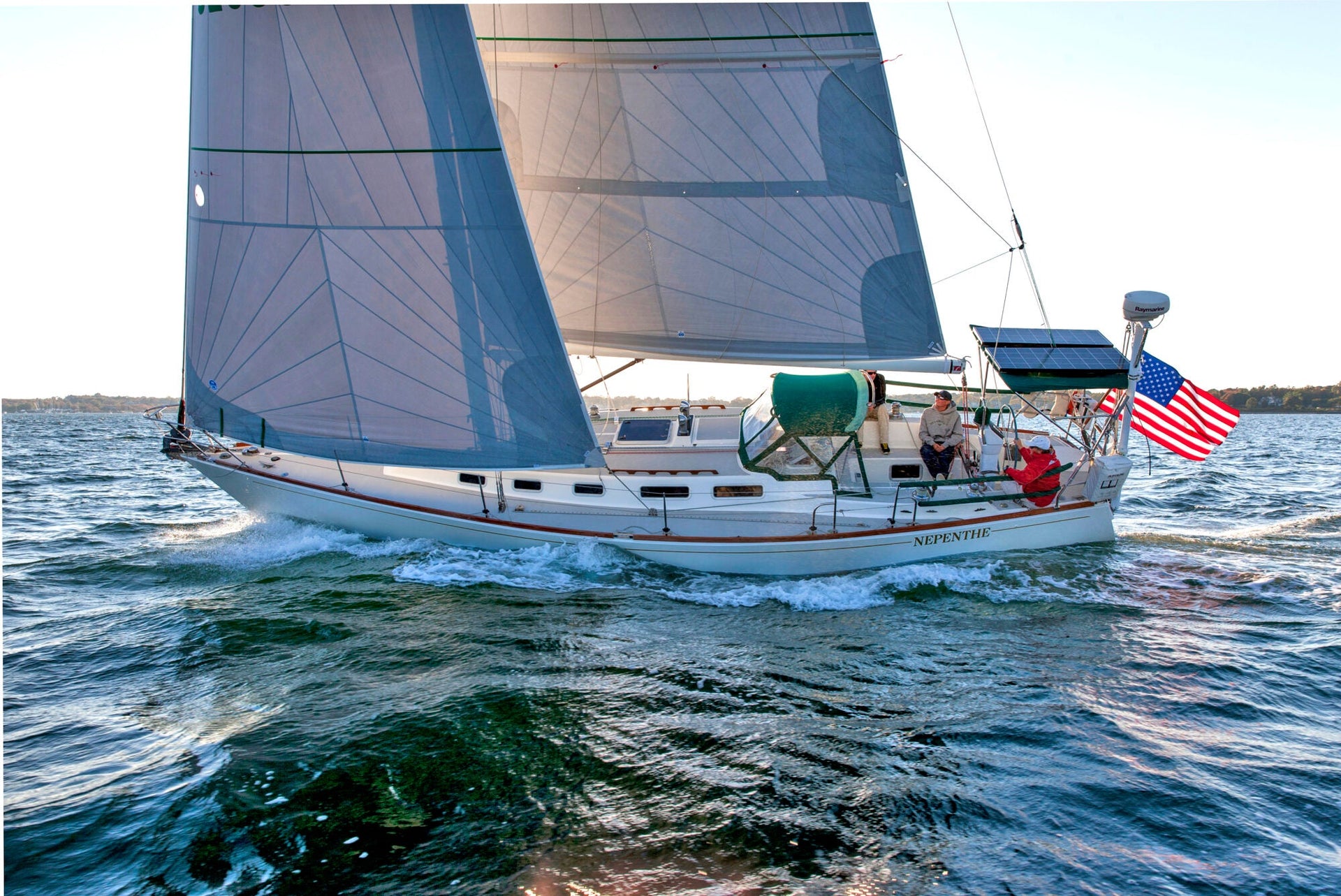
news
BEST SAIL INVENTORIES FOR CRUISING
NPL TOUR
Day Sailing vs. Coastal vs. Bluewater
One of the many great things about sailing is the ability to choose how long you want to be out on the boat. Day sailors prefer to sleep on dry land, while coastal cruisers might go off for a weekend or even longer. Bluewater sailors like to get away from land altogether, some for as long as they can. Free time and sailing experience do play a big role in determining the type of sailing you do; often, beginners start off as day sailors and increase their time on the boat as their skills improve.
Though a wide variety of sailboats could be adapted to fit any of these time-based sailing specialties, some will obviously be better qualified than others for each one—especially if you’re looking to head offshore. The same is true of your sail inventory. For maximum enjoyment, it’s important that both boat and sails match the time frame you choose, which is why the North Sails cruising experts put together the following summary of what you’ll need for each type of sailing adventure.
Best Equipment for Day Sailing
Cruising daysailers are typically 25-40 feet long, though there are some purpose-built models as big as 50 feet. Day sailing is a great starting point, because it prioritizes a relaxed time on the water without the added challenges of darkness or bad weather.
Most daysailers have a fairly simple sail plan that includes a mainsail and jib or genoa. These can be built of NPC Cross-Cut materials. (If your boat is one of the recent performance daysailer designs, you may want to step up to 3Di OCEAN.
Struggling with sail handling? Consider adding a furling system for jib, main, or both.
NPC CROSS-CUT
Best Equipment for Coastal Cruising
Coastal cruising boats need enough cabin space for the crew to sleep comfortably and have bad-weather shelter, so they are generally in the 30-55 foot range. Both boat and sailors need to be ready for a wider range of weather conditions, as well as the occasional after-dark arrival, and both increase the focus on efficient sail handling systems. You’ll also need a sail inventory that can handle winds over 25 knots.
We have several sail materials that match this type of sailing, including NPC CROSS-CUT or Radian, NPL TOUR, and 3Di OCEAN. The key is to match the sails to your boat and preferred type of sailing. If you’re heading south for the winter, Radian will provide the best combination of longevity, durability, and ability to handle high heat and UV. For performance cruisers, 3Di Ocean is a great fit. Your local North expert can help determine which materials would best match your boat and cruising plans.
3Di ENDURANCE, the racer/cruiser crossover.
Best Equipment for Bluewater Sailing
Bluewater boats and crews will sail away from the conveniences (and stresses) of shore life for many days at a time, so they need to be fully self-sufficient. Purpose-built bluewater cruisers are generally larger than 40 feet, with sail-handling systems designed to handle any kind of weather. For a bluewater sail inventory the priority is durability, because despite the worldwide coverage of North Sails lofts, there’s no off-season—repairs will always slow down the next voyage.
UV is also a big concern. Dyneema has very high strength and toughness, and our NPL TOUR ULTRA paneled sails have been setting the bluewater standard for many years. 3Di ENDURANCE is a great crossover option that provides both offshore durability for cruising and high-level racing performance. 3Di OCEAN will provide performance without sacrificing durability, which is the best option for cruising sailors. To figure out the best materials that will help you achieve your bluewater dreams, talk to your local North expert. Bottom line– no matter what upwind sails you choose, you will not be disappointed.
3Di OCEAN
Easier sailing
Whether you’re a first-time day sailor or a seasoned offshore cruiser, there are many innovations that will help make sail-handling easier. Mainsail luff track systems, inner forestays for heavy weather jibs, and small bowsprits for setting downwind sails are all increasingly common in harbors and marinas around the world, because they reduce the time and aggravation in changing sails.
For day sailing and coastal cruising, furling jibs are standard. More and more boats are adding furling or full-batten mainsails as well. Another innovation that can help ease mainsail stowage is the Quickcover. As the name suggests, it’s a cover that’s always right there when you need it—and that means a longer lasting sail, because you won’t forget or find it too much trouble to protect your investment from UV.
Another addition that will help your downwind enjoyment is a cruising gennaker, along with a snuffer to make it easier to set and douse.
Helix Furling Gennaker
Increasing your boat’s possibilities
If you are a day sailor who aspires to coastal cruising, another important upgrade would be to add an inner forestay for a second jib. Another great addition is the Helix Furling Gennaker. It combines the power of an asymmetric spinnaker with the convenience of a Code Zero. Hoist it once and you have an easy-to-fly sail that will take you to that next harbor fast, even when your apparent wind angle is too far aft for your Code Zero reacher. Plus, this new gennaker is top-down furling, giving you a tight, neat furl that protects the sail.This addition will add versatility to your sail plan and allow you to carry less sails onboard.
If you are a coastal sailor who aspires to head offshore, there are several sail upgrades we recommend. You’ll definitely need a heavy weather jib, a storm jib, 3 reefs in your mainsail, and at least one versatile downwind sail that can be furled. Reefing the main will be easier if you add mainsail luff tracks and cars. For longer-distance downwind cruising, we recommend either a Tradewind or a Helix code sail on a furler.
Sailing is a lifestyle, and many of our customers who started out as beginner day sailers are now off on life adventures, cruising the world. Whether you’re keen to do more day sailing, go off on a coastal cruise, or head offshore to bluewater, the most important key to an enjoyable cruise is to have the right boat—and the sail inventory of your dreams.
FIND A CRUISING EXPERT REQUEST A QUOTE
Tradewind
READ MORE
READ MORE
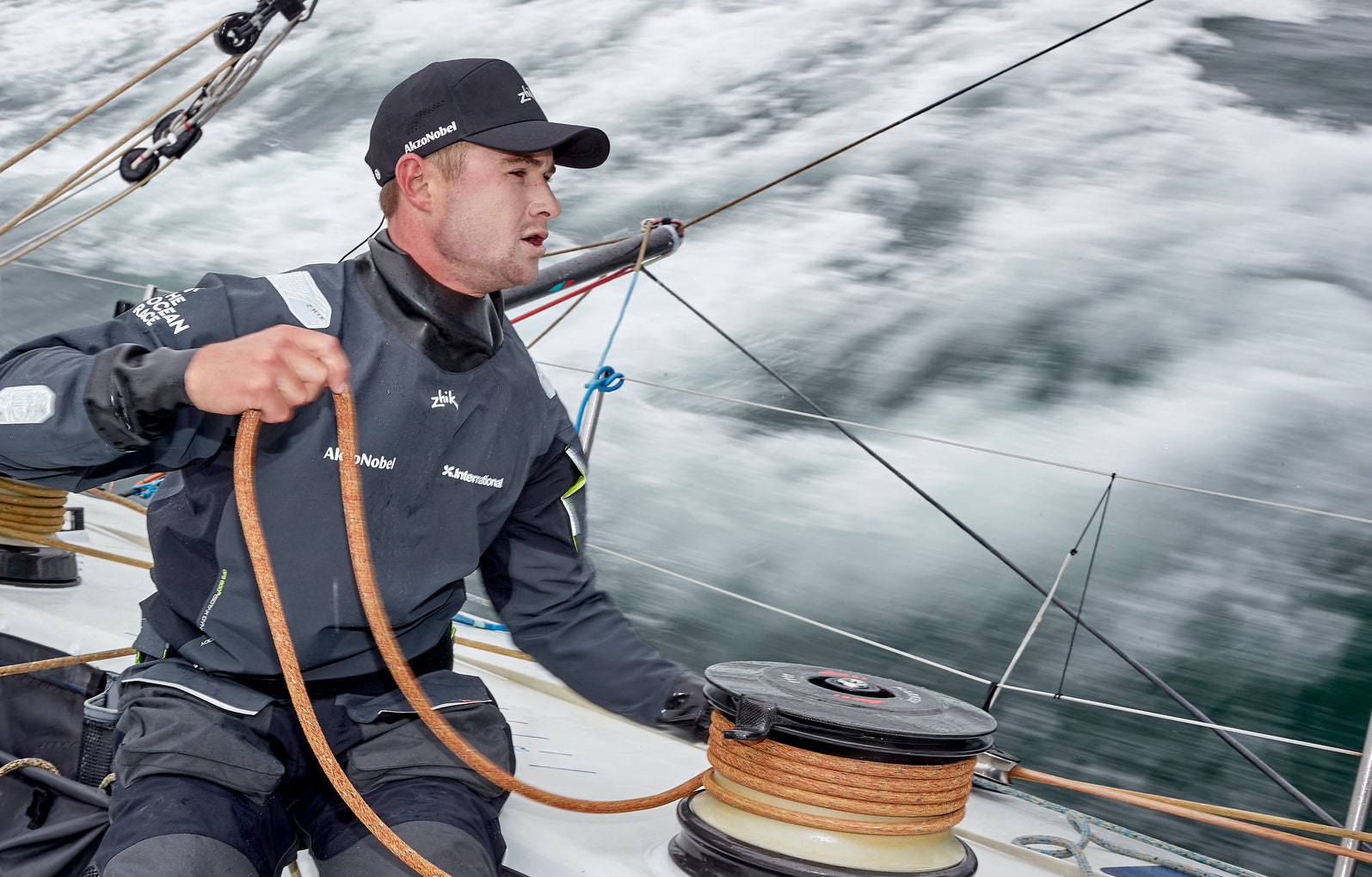
news
LETTER TO MY YOUNGER SELF: LUCAS CHAPMAN
LETTER TO MY YOUNGER SELF
Lucas Chapman, Watch Caption Onboard AkzoNoble Ocean Racing, Shares His Journey of Ocean Racing as a Dream Turned Reality
📸 Thierry Martinez / AkzoNobel Ocean Racing
The sailors and designers in the world of North Sails are some of the most inspiring people on the water, and we’re hoping to share more of their story with you. “Letter to my younger self” is a series told from our North Sails ambassadors. In each article, we bring to life their advice and personal journeys centered around the question: if your “now-self” could give your “younger self” advice, what would it be?
Dear 19 year old Lucas,
Right now you’re sitting in the university computer labs and you’re supposed to be working on the engineering dynamics assignment. Instead, you’re spending your time devouring every video you can from the 2011-12 Volvo Ocean Race yachts tearing their way through the Southern Ocean. They’re going at speeds you can’t even fathom, racing through massive weather systems and far off locations you are yet to know of. All of this seems a far cry off the 16ft skiff sailing you did over the weekend on the lake.
You see this year you will do something that will change the course of your life, you will do something that will, from that moment on, occupy your every thought, actions, and steps forward. You will go ocean racing. Don’t worry! At first it will be an easy introduction, a short coastal race from Sydney to the Gold Coast. But then later this year, you’ll do your first Sydney to Hobart yacht race. And boom– you’re hooked.
You’re probably wondering how two simple sailing races can make such a difference in your life, but, believe me, an addiction will be formed that even now, ten years later, I still struggle to explain. Standing behind the helmsman as he sends it down the coast on that first afternoon of the Hobart race you will begin to wonder what would it be like to race around the world, just like in those videos you watch from the yachts in the Southern Ocean. It’s this small insignificant thought that will someday allow you to make it to the top of the sport and race racing with and against the people in those videos. You will eventually sail on those boats and be one of the people in those videos. Almost seems impossible, right?
View this post on Instagram
A post shared by North Sails (@north_sails)
I guess it’s time for some advice– after all, how are you going to go from this computer lab to the Southern Ocean. Rule number one: Back yourself. You need to get your mind and thoughts aligned with what you want to achieve. If you want it and you begin to believe it, then all that’s left to do is to go and achieve it. Too often you will spend time doubting and wondering if it is really possible to get to that elite level, but thoughts become your actions so don’t waste time on those negative thoughts. Don’t be concerned if you haven’t won a World Title or Olympic medal– there is no right or wrong way to get to where you want to be.
Rule number two: stay in school. Before you get too carried away and jump on a plane to chase your dreams, it is important to finish your studies though. Although it may seem like a delay to your career as a professional sailor, these skills as a mechanical engineer will become invaluable in the future. Problem-solving and analytical thinking will become an integral part of what you do and make you a valuable member of many racing teams.
While you’re finishing your studies use the time in between to get as much experience sailing on good boats as you can. Chase down rides doing all deliveries and races you can, the experience and things you pick up along the way will all add to your resume, which in the end will make you a more well-rounded sailor. Make sure you are multiskilled, invest in doing some extra courses in basic navigation, learn skills in rigging and sail making, you want to make sure they have no excuses not to hire you.
Over the next five years you will achieve almost every goal you set your mind to. There will be sacrifices, hard times, long days on the road traveling around the world but believe me, it will be worth it.
Rule three: enjoy every step of the way, enjoy the small moments, the friendships, the incredible places and experiences you are so lucky to see along the way which most people are unable to do. Remain humble in every situation, become less impressed, and more involved. When you get to the top, learn to change your game in order to stay in front and always fuel that fire that keeps you motivated to achieve the impossible.
Enjoy every moment and stay safe,
📸 The Ocean Race
READ MORE
READ MORE

news
MIRPURI SAILING TROPHY PREVIEW
GETTING RACE-READY IN CASCAIS WITH THE MIRPURI FOUNDATION SAILING TROPHY
North Sails Named Official Sailmaker for the Second Edition
📸 Mirpuri Foundation Sailing Trophy
North Sails is proud to be named Official Sailmaker to the Mirpuri Foundation Sailing Trophy. First sailed in 2020, this plastic-free sustainable regatta combines competitive sailing with marine conservation, directly linking our sport to protecting the beautiful but fragile ocean.
Around 100 offshore boats, including both conventional and high-performance cruisers, are expected to participate in the second edition, June 3rd-6th, 2021 in Cascais, Portugal.
“The Mirpuri Foundation Sailing Trophy aims to be one of the main sailing events in the world,” says Paulo Mirpuri, President of the Mirpuri Foundation. “Marine conservation is a crucial cornerstone of our activities at the Foundation and inspires The Mirpuri Foundation Sailing Trophy. We believe in the power of sport to bring people together and raise awareness of our planet’s challenges.”
📸 Mirpuri Foundation Sailing Trophy
The regatta will overlap with The Ocean Race Europe. When the fleet of IMOCA 60s and VO65s arrives in Cascais for the first stop of their summer adventure. A coastal race will contribute to the fleets’ overall race scores. One of those VO65s is the Mirpuri Foundation Sailing Team. Another important vehicle for the Foundation’s central message of ocean health.
North Sails Cascais will provide overnight repair services, including pickup and delivery service for all sailors during the regatta.
Please contact the loft directly at +351 916 830 166, speak with our local service team phone loft manager Vincente Pinheiro at: +351 916 857 896.
READ MORE
READ MORE
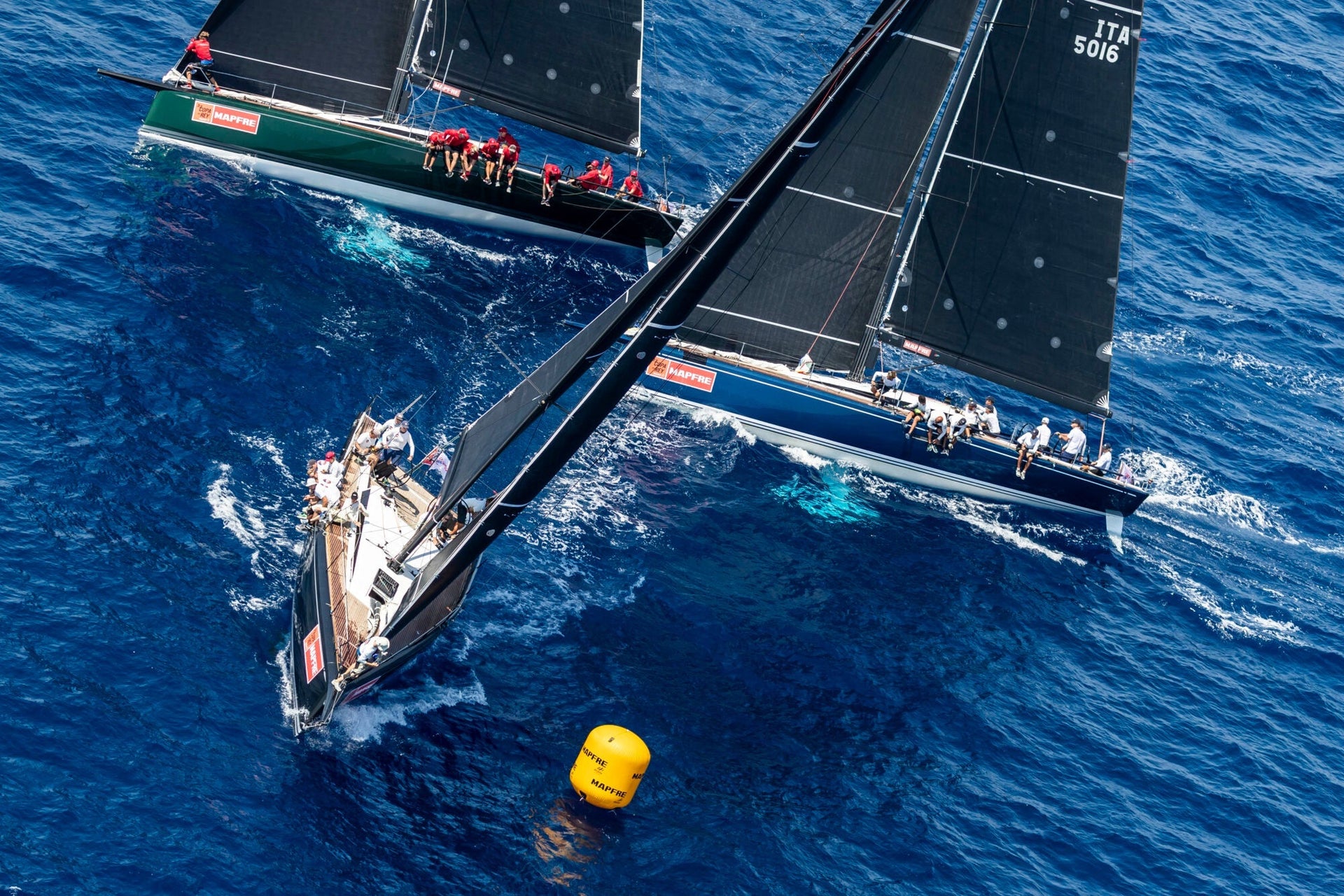
news
HOW NORTH SAILS BECAME THE GLOBAL LEADER IN SAILMAKING
THIS IS HOW NORTH SAILS BECAME THE GLOBAL LEADER IN SAILMAKING
By combining innovation and excellence with consistency and worldwide reach, North Sails is at the top of its industry.
📸 Carlo Borlenghi
When Lowell North left an aerospace engineering job in 1957 to establish North Sails, he didn’t realize he was starting a company that would soon become the global leader in sailmaking. But his unique style—science-based sailmaking, rather than the usual seat-of-the-pants approach—couldn’t have been better timed.
By 1960, polyester Dacron had begun to replace stretchy cotton as the sail material of choice. Suddenly it was possible to build repeatable, predictable sail shapes, kicking off a mid-century sailmaking revolution that affected every part of the industry—much the same way that 3Di is currently changing every aspect of sailmaking today.
Scientific firsts
Lowell’s first science experiment was to test different types of Dacron for durability. “We began by attaching to the antenna of my car,” Lowell said in a 2017 interview celebrating 60 years of North Sails. “We called it flutter testing, and later built an in-house machine, which spun the attached samples on a rotating wheel or arm.” The result? A new understanding of warp and weave that would inspire North Cloth, the company’s in-house producer of proprietary materials. Today, the North manufacturing team tests every lot of woven or laminated sailcloth used in a North sail, using proprietary processes and equipment, to evaluate performance and durability.
Other innovations followed that first flutter test. CEO Tom Whidden says Lowell North achieved a long list of firsts in the 27 years he was president. “He was the first to use patterns; he was the first to use computers; he was the first to use cutting machines. He made software that looked at sail design very logically, and software that measured stress and strain.”
As the company grew, North gained a reputation for fast, repeatable designs around the globe. Sails with the round blue and white logo logged wins at all the big events, from the Olympics and Star Worlds to the America’s Cup. North products also began to dominate long-distance racing fleets like the 1981-82 Whitbread Round the World Race (now The Ocean Race).
📸 Raphael Demaret
Sail Molding
In 1987, when Whidden took over as CEO (right after his successful recovery of the America’s Cup, as tactician for Team Dennis Conner), he embraced what had already become a North trademark: innovation. Hearing about a new approach to sail manufacturing, a patented sail molding process, Whidden was certain it was the right step forward. “We’ve been building sails the same way for so many years… Finally, there was a technological system; we could actually make sails and the sailcloth together.”
What would become 3DL, and has since evolved into today’s ground-breaking 3Di, required an enormous technological and financial investment. But it would cement the position of North Sails as sailmaking’s global leader.
Fastest Sails Around the World
On Christmas Day of 2016, Thomas Coville shattered the previous solo around the world record (57 days) with a final elapsed time around the planet of just over 49 days. He called North Sails a trusted partner—because the company believed in him before he succeeded, but also because his 3Di sails were completely trouble-free. “Before we succeed, we fail a lot. We make mistakes, but we never give up. And now North Sails is the fastest sailmaker around the world today. It’s a fantastic achievement!”
In December 2017, Colville’s impressive record was broken once again—this time by François Gabart, who finished his own circumnavigation in just under 42 days. “All our sails are North Sails 3Di,” he says. “I started working with North because they had made a big investment in R&D to get to a material that was strong, light, and solid. They also have a team that is super successful at working with people. It’s important to create a closeness between the sailing team, the design team, the architects, and the sailmaker. It’s a team effort to ensure that across the board, the boat goes fast. And this is what we’ve done with North for a long time now, and we are delighted. There are many good reasons to work with them.”
📸 Christophe Launay, Sodebo
Outside the box, but in-house
Today, North continues to deliver the top-quality products customers have come to expect, while also constantly moving forward with that important company culture—science-based innovation. One reason both are possible is North’s unique proprietary approach to all aspects of sail design and manufacturing. A worldwide network of expert designers and manufacturing teams work together on a wide spectrum of sailmaking projects: from testing materials, to molding a 3Di Grand Prix jib, to finishing a paneled cruising mainsail.
With so many different ground-breaking projects going on at once, cross-pollination happens quite naturally. Adventure sailing ideas help build more reliable cruising products while theories tested in AC75s will help win races at local races around the world. Meanwhile, consistency is maintained around the globe because everyone in the company—local loft experts, a roster of world-renowned sail designers, and the manufacturing teams at the dedicated facilities (Minden, Nevada and Sri Lanka)—is held to the very high standards laid out in the North Sails Blue Book.
📸 Ian Roman
Teamwork
Fast sails can’t stand up on their own, though, which is why the North Technology Group also includes two sister companies: Southern Spars and Future Fibres. North Sails also designs and manufactures its own sail hardware.
The only way to remain the global leader of sailmaking is to continue to deliver consistently excellent and innovative products to customers all around the world. Fortunately, North Sails has spent more than half a century doing just that: a natural expansion from the original vision and culture established by its founder. As CEO Tom Whidden points out, Lowell North’s “whole model of looking at things scientifically made it pretty easy for the people who followed behind him.”
For more North Sails history, read our 60 Years stories.
📸 Jesus Renado / SailingEnergy / North Sails
READ MORE
READ MORE
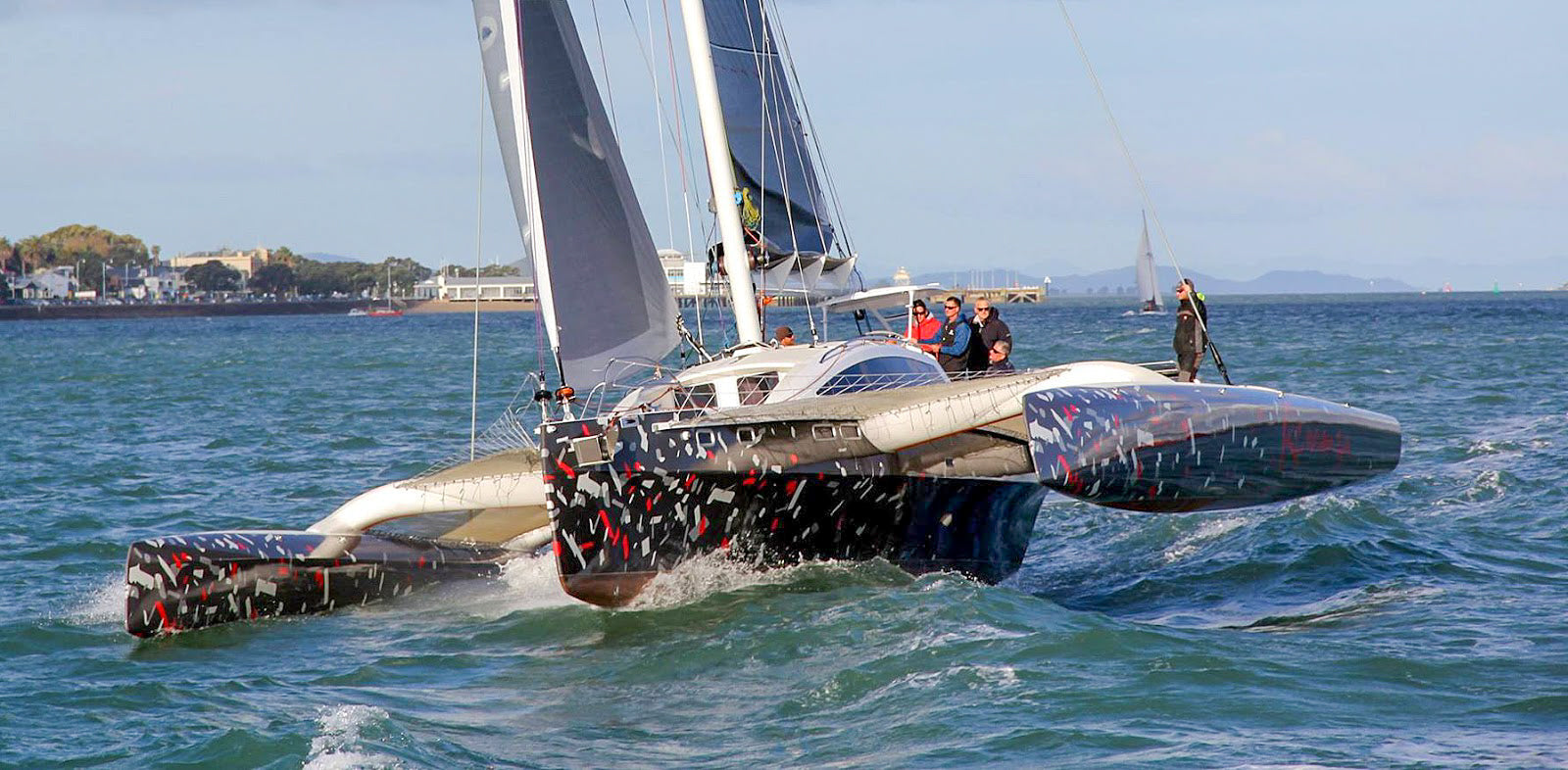
news
THE ULTIMATE RACER-CRUISER
THE ULTIMATE RACER-CRUISER
Clients on Romanza are turning heads on the racetrack when they’re not cruising at high speed.
📸 SSANZ / Deb Williams
Clients Dougall and Jaz Love are co-owners of the Rapido 60 Trimaran, Romanza, but their sailing backgrounds couldn’t be more different. While Dougall is more of a racer, Jaz is experienced in motor yachts and new to the sailing scene. Fortunately, Romanza provides both high-speed racing excitement and comfortable, easy cruising. And ever since their first trip around North Island in New Zealand, about 1,400nm, they are both completely hooked.
The Engine above Deck
Romanza is equipped with a full suite of North Sails 3Di upwind, two asymmetrical spinnakers, and a Code Zero. The entire downwind wardrobe runs on furlers for easy handling. Adding an A2 and recutting a smaller A2 into an A3 has significantly helped performance. Dougall explains that the upwind headsail is self-tacking, and maneuvers are more effortless with electric winches, halyard locks, and KZ furlers. “It’s a great setup—straightforward and also robust.”
Romanza has a Southern Spars rotating wing mast, ECsix carbon rigging, and a full suit of 3Di upwind. Dougall especially loves the shape of their 3Di ENDURANCE mainsail and jib. “You can ‘trim and forget’ compared to traditional sails, and the shape is consistent. Sail shape is something North Sails does well, and I am constantly amazed at the loads they can handle, particularly upwind. Our righting moment is around 60 tonnes/meter, and the sails can be fully loaded but do not stretch or strain.”
3Di’s longevity is also quite important to them, Dougall continues. “We’ve customized our sails by adding batten retainers and UV protection, and I am amazed we’ve had no issues, as we have put our upwind wardrobe to the test.”
Their ‘go to’ sail for both racing and cruising is the Code Zero. “Although it’s relatively large, it is also versatile. We can sheet it in like a genoa if we’re sailing upwind in the lighter conditions, we can sheet it halfway for closer reaching angles, and we can ease it out on a broad reach if we don’t feel like putting up an A-Sail.”
The Code Zero is also ideal for building apparent wind, which the Rapido Tri’s are designed for. “Some of our trans-Tasman crossings, we’ve had 24-hour averages approaching 300 miles – not bad for a cruising boat.”
Romanza has been using that speed on the local racecourse, too. “Andrew Wills and Ben Costello at North Sails Auckland have been accommodating and easy to work with,” says Dougall. “Having sails you can rely on, and expertise you can trust is a major ‘comfort zone’ factor for us.”
Over time, the couple has learned to push the boat to higher speeds without sacrificing safety. Even cruising, they have been surprised by the high daily averages they can maintain and pleased by their ability to dodge bad weather when needed. “The speed comes from a great design and simple but sophisticated setup,” says Dougall. “She doesn’t take much to go fast, although our concept of ‘fast’ has changed significantly since our pre-Rapido days!”
The Right Collaboration
Triac Composites have been building Rapido 60s since 2015. Co-founder Richard Eyre says they looked to the North Technology Group (NTG) to provide a premium package for each model; Phil Johns, the company’s General Manager, agrees. “We want the best, and we knew that NTG would be the best fit for Rapido clients worldwide.”
Richard explains why choosing North Sails as a partner was an easy decision: “You can guarantee nothing but the best. NTG supplies the very best racing and cruising sails with North Sails and a state-of-the-art rig with Southern Spars and Future Fibers rigging– it’s the obvious choice for our line of trimarans.”
Phil adds that North Sails would be the standard premium option for all their clients in an ideal world. “No other sailmaker out there is as advanced technologically. The analysis of North Design Suite (the most powerful and diverse sail designing tool in the industry) for sailmaking is far ahead of the competition. It’s a known fact.”
📸 Rapido Trimarans
Why choose a Rapido Trimaran?
First on the couple’s list was to cruise the world on a boat that wasn’t constantly ‘leaning.’ Second was to be competitive when they felt like racing. So the boat had to be stable, but also fast.
It also had enough space and amenities to live aboard comfortably, including adequate storage for both crew gear and boat equipment. “The space below the deck is perfect for us, plus two guests,” Jaz says. “Excellent for hosting, and all with a great view. We also love the galley.” She has already gained a lot of trust in their equipment—especially after living through gusts to 62 knots during their seven-week doublehanded Christmas cruise around North Island. “I feel our safety and comfort level has taken a stride since that experience. Nothing failed– and that included our confidence. The entire experience has been an eye-opener for me. With that, we are excited to reach into our well-stocked sail wardrobe closet and light Romanza up with the Code Zero.”
The Rapido 60 is designed for shorthanded sailing, which was also one of the reasons they chose it. The helm station is covered and offers protection from weather which is great for overnight passages or wet conditions. “Reefing the main is simple,” says Dougall, “and the boat will still make way with haste.” All adjustments can be made from the comfort of the cockpit. One thing Dougall appreciates is the autopilot. “You tell it where you want to steer to, and it takes care of the rest. The displays are easy to read, so anyone on watch can make coffee and not worry about managing changes. It can’t get easier than that.”
Racing Highlights
So how is the Rapido performance on the race track? Romanza recently claimed victory in New Zealand’s 230nm Yates Cup. Dougall commented, “We were 30 miles from the finish line, challenging the record set by the 60′ Orma, Vodafone in 2014. Unfortunately, the wind died, so no record, but we still finished in just over 24 hours and celebrated a well-deserved win with Kiwi lamb shanks prepared by Jaz in the galley during the race.”
Another major victory to highlight is when Romanza took line honours and overall corrected time in the 130nm Auckland Tauranga Centennial Race just last month, finishing in 10 hours, 42 minutes, and 46 seconds in PHRF. Their top competitor was a Volvo 65 (NZOR), which finished nearly six minutes behind them. “We put 15 minutes on the VO65 in 16-22 knots on the first 35-mile leg; it was amazing!”
This video below is from the 2020 PIC Coastal Classic, where Romanza won the multihull division on corrected time and finished 5th line honours.
Why the name Romanza?
Take the boat tour with Dougall and Jaz to find out.
Read more about Romanza’s racing successes here.
READ MORE
READ MORE

news
NORTH SAILS NAMED SAILMAKER FOR THE 49ER & 49ER FX CLASSES
NORTH SAILS NAMED SAILMAKER FOR THE 49er & 49erFX CLASSES
The highly competitive one design class chose to adopt 3Di, the most modern sailmaking technology available
North Sails, the world’s leading sailmaker, was recently named the supplier of choice for the 49er and 49erFX class mainsails and jibs in the lead-up to the 2024 Olympic Games.
After an intense, months-long bid process of rigorous sail testing, North 3Di Technology was the unanimous choice of a selection panel including Olympic medalists and coaches, the 49er and 49erFX Class measurers, a builder’s representative, and the copyright holders.
The class was motivated to evaluate their one design sails by the sailors, who requested improvements in sail consistency, longevity, and durability. After months of sail-testing comparing 3Di head to head with the most current products from other sailmakers, the class chose to adopt 3Di, the most modern sailmaking technology available.
“This is a very exciting development,” says 49er Champion and America’s Cup Defender, Blair Tuke, a two-time medalist on the selection committee. “It’s a first for an Olympic Class to be able to select equipment that optimizes performance, consistency, longevity, and has a positive environmental impact, all in one package.”
After an exciting 36th America’s Cup, Tuke has become quite familiar to the power of 3Di, especially after Emirates Team New Zealand’s successful defense of the Auld Mug. Three teams (Emirates Team New Zealand, Luna Rossa Prada Pirelli, and INEOS Team UK) trusted North Sails tools, design expertise, and technology to power their AC75s.
The decision is a testament to North 3Di’s versatility and adaptability across a wide range of boats and sail types. Specialty-sourced raw materials for 3Di tapes and perfectly consistent shaping on a full-sized 3D mold have moved 3Di a generation ahead of the traditional paneled construction used by other sailmakers; this includes both woven sailcloth and the Mylar-based string sails. The precision engineering of proprietary 3Di molded construction makes it possible for North Sails to produce repeatable one design sails in both shape and detailing. This is both a huge cost savings and a performance upgrade for 49er programs that previously had to purchase and test multiple suits to find sail they liked.
Beyond material choice, North Sails deployed its scientific approach to understanding the baseline and then engineering an optimized solution for the one design 49er class.
49er and 49erFX teams will use 3Di mains and jibs for both training and regattas in the lead-up to the 2024 Olympic Games. For much more detail about the intensive development path North Sails took to optimize sails for the 49er and 49erFX, read the case study.
READ CASE STUDY
READ MORE
READ MORE
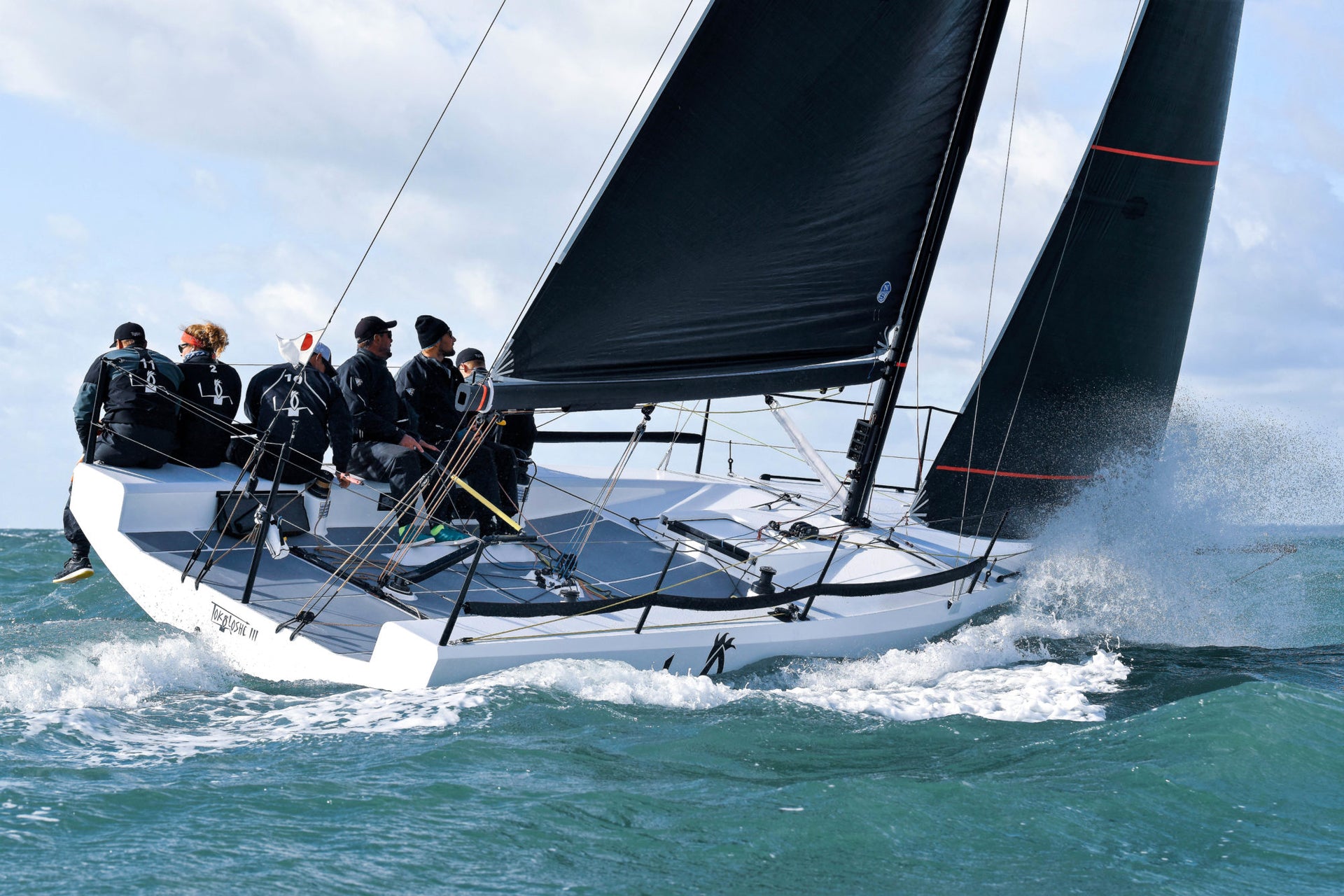
news
THE CAPE 31 IS CAPTIVATING SAILORS WORLDWIDE
THE CAPE 31 IS CAPTIVATING SAILORS WORLDWIDE
A Project Fueled by Passion
Tokoloshe III 📸 Rick Tomlinson
Named after its place of origin, Cape Town, South Africa, the worldwide growth of the Cape 31 fleet all started with one man’s vision; Highland Fling owner and avid racer Lord Laidlaw. Eager to stimulate the industry and create a class for young talent, Laidlaw commissioned Mark Mills to design the first five Cape 31 hulls, of which he soon found buyers. “The promotion of events in South Africa was integral to get the class on its feet and make it attractive for people to buy and sail these boats,” Mills remarks. “Now the fleet is self-propelling, and Laidlaw has taken a step back to leave it running as a commercial operation.”
Cape 31s are 31-foot high-performance keelboats targeted at the highest level of regional/club sailing. They represent the most advanced form of production keelboat without getting into high-cost, complete carbon construction. Designer and Irishman Mark Mills of Mills Design is one of the most successful yacht designers of recent years, and he has taken the Cape 31 hull design under his wing. To date, 19 boats have been built, with 10 actively racing in Cape Town, and a growing fleet of eight boats confirmed for the UK. “I think a vacuum has been created after the peak of the Melges 32,” Mills explains. “The Cape 31 is my favorite design because it is happy in all wind ranges – great in the breeze and sails both upwind and downwind incredibly, so it will naturally succeed wherever it goes. We are seeing the result of this now in the UK.”
After witnessing the fleet’s success in South Africa, father and son duo Mike and Dave Bartholomew brought the first Cape 31 over to the UK in a container, naming her Tokoloshe III. As she whizzed around the Solent, winning all but one event in IRC last season, it did not take long for people to catch on. Volvo Ocean Race, World Match Racing Champion, and IRC/ORC World Champion Dave Swete spotted the hype and jumped onboard in October 2020 when he ‘fell in love with the boat.’ “I think there was always a gap in the market for a smaller boat that ticks all the boxes; a fantastic One Design boat which wins under IRC with a supreme boat builder behind it,” he says. “Between myself, Dave Bartholomew, and Suzy Peters, we decided to launch the class in the UK. We are proud to have got the regattas and class rule right, and all of these ingredients seem to be combining well as we are already welcoming the eighth boat to the UK fleet!”
Tokoloshe III 📸 Rick Tomlinson
Ever since the fleet’s activation in South Africa four years ago, North Sails has proudly been the sailmaker of choice. Our sail designers invested a lot of time to develop the sails from how they started as paneled class sails. North Sails Cape 31 Class Expert Pete Redmond confirms that “3Di is the optimal product for boats racing in the UK and in an IRC arena. The lightweight and durable components of 3Di allow the 31-footers to compete against a quality fleet of 40-footers in an upwind beat and dominate them downwind. The sail plan needs the ability to change depth drastically to get the most speed from both light airs and big breeze, and 3Di mainsails and jibs allow this to happen.’’
Mills adds, “For a lightweight 31-footer to win in IRC is extraordinary—and to win in a class of boats up to 9 feet bigger is historically unprecedented.”
With inquiries about the boat throughout Europe, it is no surprise that the US market is also gaining momentum with the first boat already sailing in Louisiana. Swete’s vision is to get a core group of owners together, to grow the fleet in one hit. Discussions between the UK and US fleets involve ‘meet-up’ winter events in Florida and/or the Caribbean. “Dave has enough energy to take on the US, and that gives owners a single target person to deal with,” comments Mills.
“The sail plan needs the ability to change depth drastically to get the most speed from both light airs and big breeze, and 3Di mainsails and jibs allow this to happen.”
One of the Cape 31 fleet’s original concepts is that all the boats will be bright and colorful, which the South African fleet represents well. “I’m on a mission to get the new boats, firstly in the UK, but hopefully in America afterward, to hang on to that ethos,” Mills explains, adding that it would make a nice change from more white hulls on the start line.
The Cape 31 season on the Solent will be a busy one, with six class events and three IRC events. All will offer competitive Grand Prix racing with a focus on fun both on and off the water. First up on the 21st – 23rd May is the Vice Admirals Cup, where there are enough boats to make up a class. Next is the Royal Southern Yacht Club June Regatta, where the fleet will mix with the Performance 40s. Other highlight regattas include the inaugural Royal Thames Yacht Club Invitational Regatta, and Tattinger Royal Solent Yacht Club Regatta. The season will come to a close with the UK Nationals at the Royal Yacht Squadron, but 2022 events are already in the works.
To learn more about this up-and-coming class, get in touch with Cape 31 Class Captain Dave Swete. For information on sail inventory choices, contact North Sails Class Expert Pete Redmond.
The boats are set up to sail with a crew of seven or eight, with a limit of three professionals and a weight limit of 595kg. The option to sail with eight people encourages lighter sailors onboard, thus encouraging women and families to get involved.
Tokoloshe III 📸 Rick Tomlinson
Tokoloshe III 📸 Rick Tomlinson
READ MORE
READ MORE
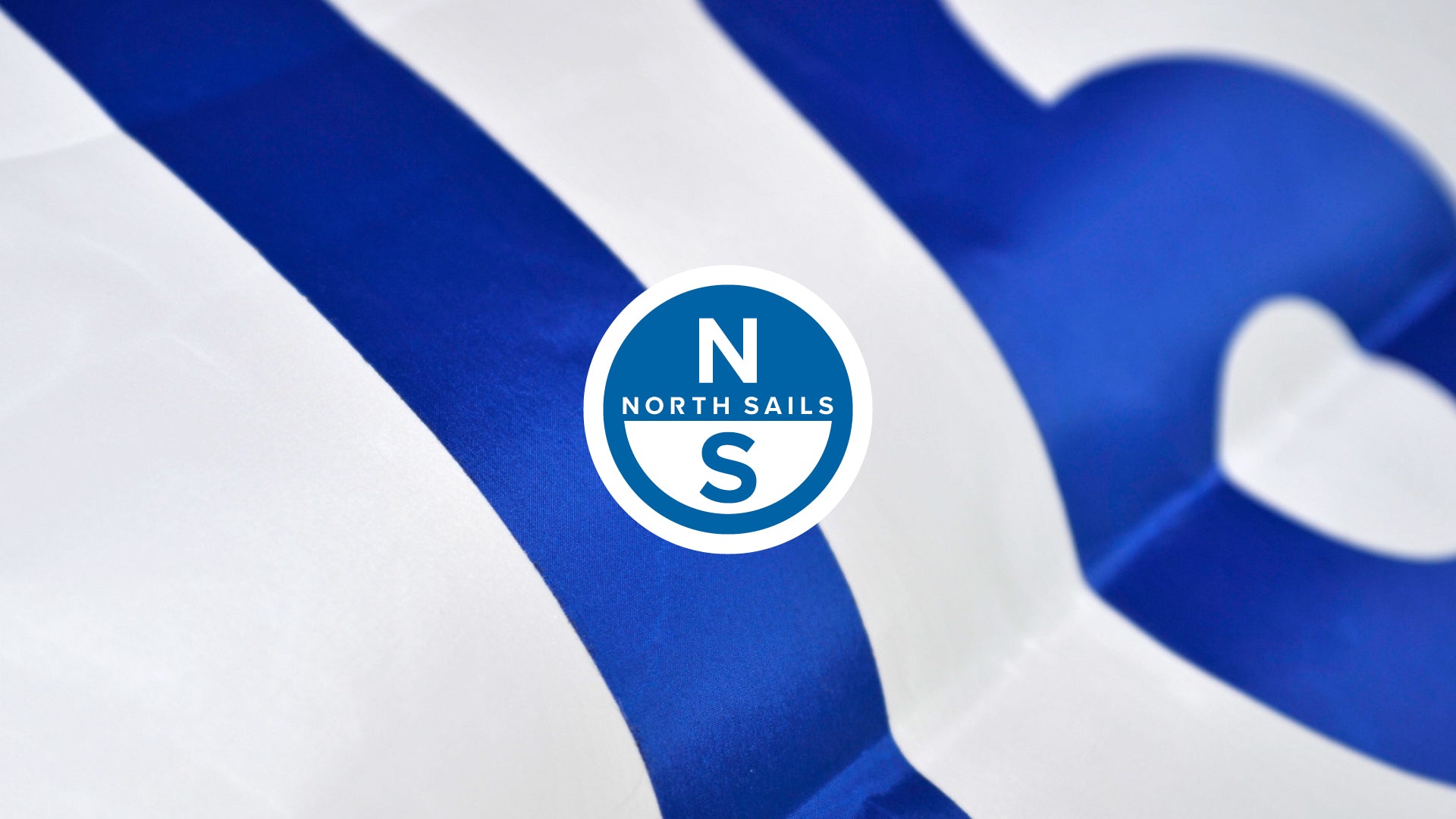
news
UPDATED MC SCOW TUNING GUIDE RELEASED
Shroud Tension & Board Angle: Crucial Setups to Go Fast
North Sails MC Scow experts Allan Terhune and Eric Doyle (AKA ‘the man who can always make fast sails faster’) have developed a new tuning guide for the MC Scow class. After spending days training and sail testing in Lake Eustis, North announced two new sails: the new MC Magnum and the MC Rocket. The lessons learned while optimizing the sails and boat setup are now shared in the new tuning guide.
“Among many updates, we have added information on shroud tension and board angle which are crucial setups to make the boat faster. Our goal is to make it easier for everyone to be up-to-speed as fast as possible. See you at the Midwinters!” — Allan Terhune.
North Sails is continually developing and improving our products and services. Helping you sail faster is not just our goal; it is our obsession.
OPEN TUNING GUIDE
READ MORE
READ MORE

news
NORTH SAILS RELEASES NEW J/70 TUNING GUIDE
NORTH SAILS RELEASES NEW J/70 TUNING GUIDE
New J/70 Designs, New Tuning Recommendations
After countless hours of sailing, testing, and competing in the J/70 fleet, our experts have updated the North Sails Tuning Guide. This guide is your go-to for recommendations and tips that will make it easy to get you up to race-winning speed with our World Championship winning sails. As we learn more about the J/70, we update information surrounding boat setup, tuning, and trimming techniques.
“With the introduction of the new sails to the J/70 inventory, the XCS-4 mainsail and J-2+ Jib, we revised the entire tuning guide making it easier to be followed. Two new Quick Tuning Charts were added; Rig Tension and Jib Trim, as well as new rake recommendations,” said Class Leader and current World Champion, Ruairidh Scott.
The Tuning Guide is a recommended starting point based on what we learned on the water. We encourage teams to explore and adjust the recommendations based on sailing style and preferences. And as always, contact your North Sails expert for all the most up-to-date information and for help tuning your boat.
OPEN TUNING GUIDE
READ MORE
READ MORE
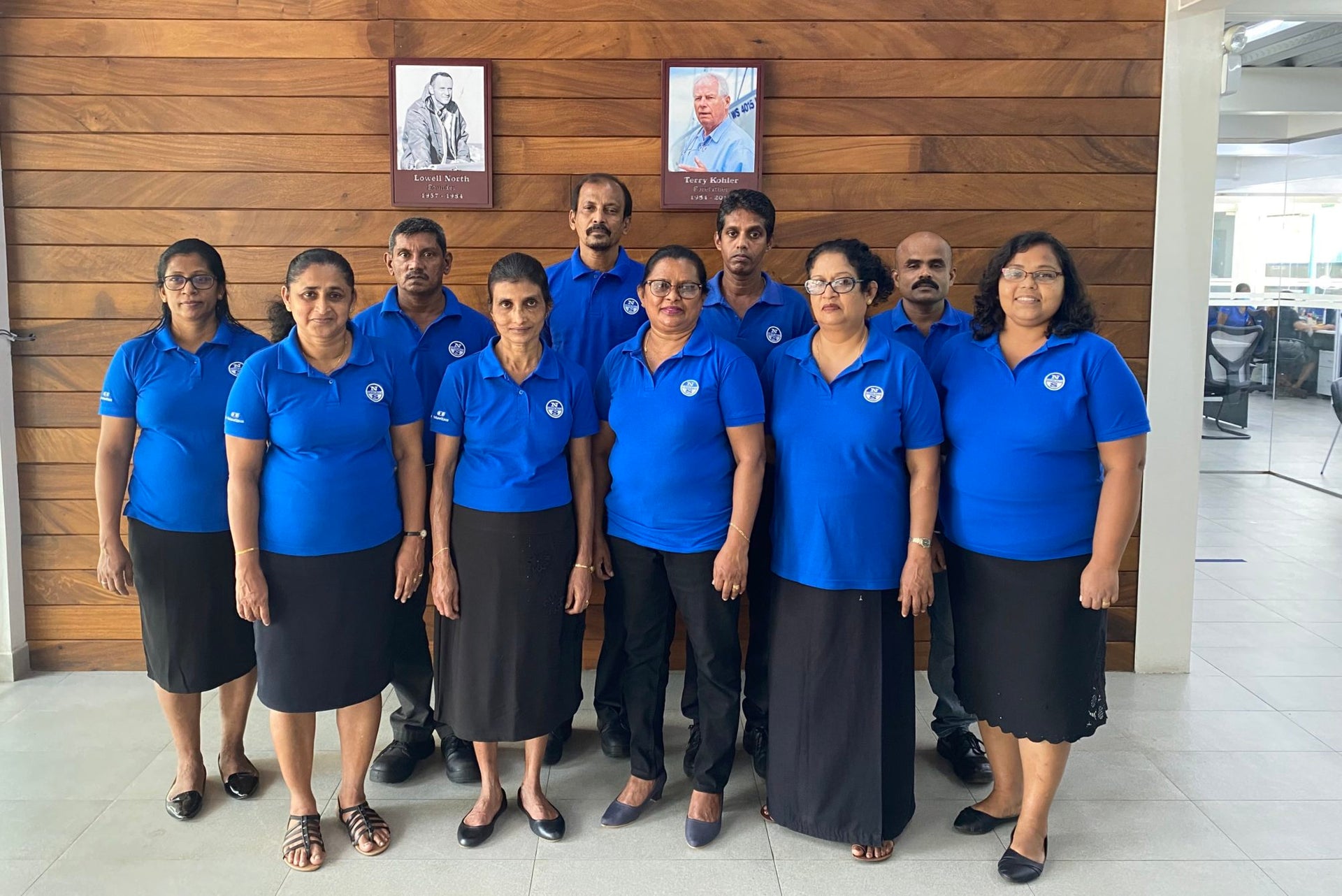
news
NORTH SAILS SRI LANKA CELEBRATES 25 YEARS
NORTH SAILS SRI LANKA CELEBRATES 25 YEARS
Evolving Together To Create The World’s Best Sail Technology
This month we give special recognition to ten employees who have been part of the North Sails team in Sri Lanka since 1996. Thank you for your hard work and dedication, which is a big part of why North Sails is the leader in sailmaking technology worldwide.
On February 1st, 1996, North Sails Sri Lanka facility opened with 12 employees, at one single loft location in the Biyagama Export Processing Zone. 700 employees now run the five buildings that make up the most advanced laminating line in the sail cloth industry—including 10 of our original employees. So together, we’re celebrating a silver anniversary!
How it began
When the facility first opened, capacity was just 25 one design sails per week. Today, a typical work week produces about 600 sails. The manufacturing compound consists of nine buildings, which house five 3D molds, Six 3Di tape heads, cloth lamination, and 11 flat-bed plotters with lasers. The total capacity is 20,000 sails per year, plus sail bags and accessories.
Creating a positive work environment
Over the course of their time at North Sails each employee has benefitted from their experiences in the workplace. It’s not just about building sails— it’s about building a framework and team structure that allows employees to succeed. With the many developmental programs, training sessions, and outbound programs to help align their cultures with the North Sails brand, the knowledge enhancement also offers staff a closer look into the inner workings of sailmaking.
📸 Lookatme.lk / Lasiru Lakruwan
“Outbound training has shown many benefits for employees,” says North Sails Sri Lanka Director Larry MacDonald, adding that the manufacturing team had the opportunity to build and sail remote control sailboats. “Many of the participants now are grasping the intricacies of the sport and the importance of sail design and workmanship. Employees were empowered with sailing know-how, improved problem solving, and communication skills. That has given them a better connection with our product, so they can make judgments and improvements to the sail assembling process naturally.”
During the pandemic the company has continued to provide a safe work environment, which allowed the facility to remain open.
Here’s some of what we heard when we reached out directly to our silver anniversary employees.
Employees Celebrating 25 Years
Indrani Wijebandara celebrates her 25th year anniversary with North Sails Sri Lanka. She believes that North Sails is the foundation stone of all her personal and social triumphs. She comments,
“This is my second home and I’m fortunate to be the first employee of North Sails Sri Lanka. I still remember my old days, 25 years ago, we worked with just a handful of people and with a very limited amount of resources. This company has evolved in so many ways, and in a very positive sustainable journey.”
Sumithra Gamage also celebrates her 25 year anniversary. She comments,
“The success of North Sails was not achieved overnight but with long term endeavors such as hard work, commitment and having the ability to overcome various challenges. I’ve enjoyed my 25 years here, which still feels like yesterday.”
Thank you to all of our employees who help contribute to our company success. A special thank you to the ten employees who’ve been part of our sailmaking revolution over the last 25 years.
1996
1998
READ MORE
READ MORE
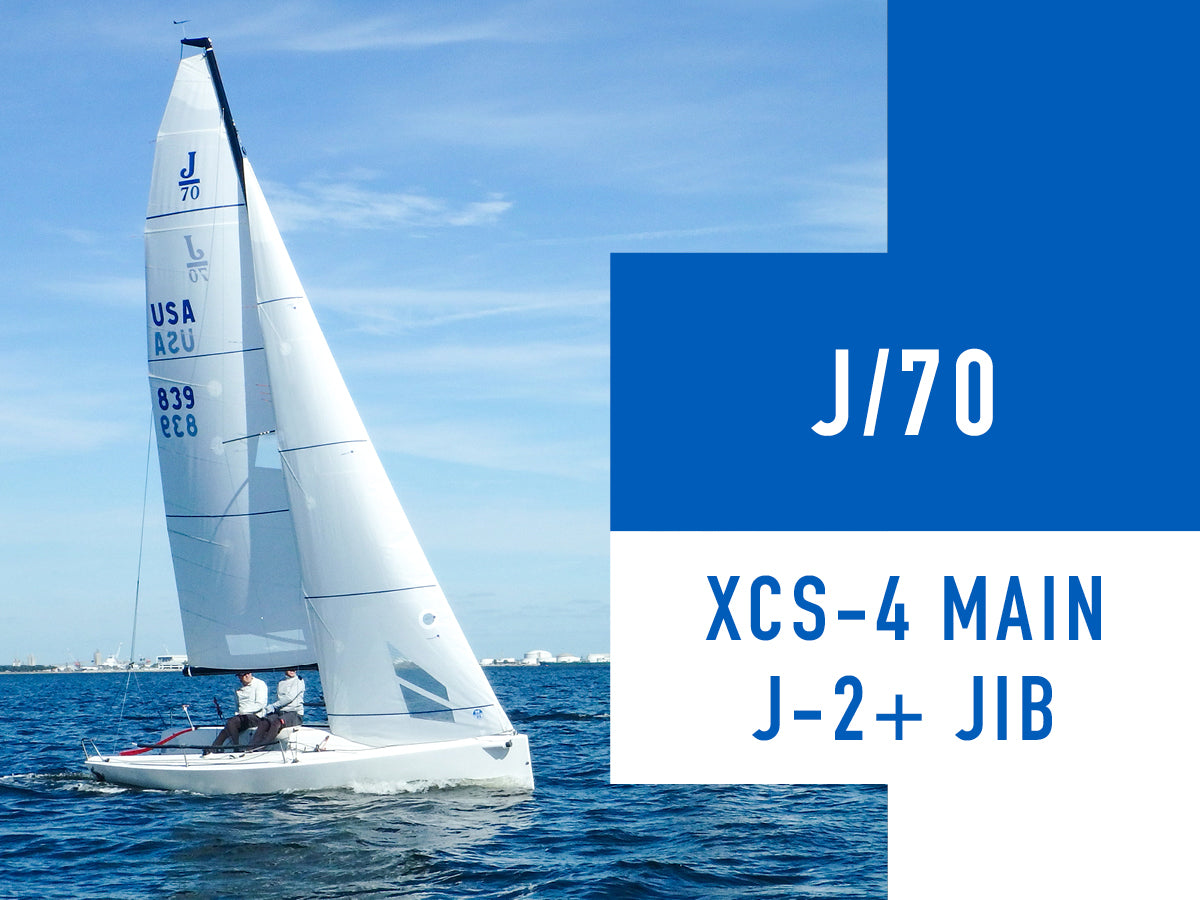
news
NORTH SAILS J/70 TEAM LAUNCH TWO NEW SAIL DESIGNS
UPGRADE YOUR J/70 INVENTORY FOR 2021
North Sails adds the XCS-4 Mainsail and the J-2+ Jib to the class line-up
The J/70 class attracts sailors who demand the best, and North Sails continues to upgrade and improve an already successful inventory. New for 2021 are two designs added to the North class line-up; the XCS-4 Main and J-2+ Jib. Here’s what you need to know.
XCS-4 Mainsail
The XCS-4 is a fine-tuned adjustment to the successful lineup of North Sails J/70 mainsails. “It is an all-purpose sail, designed to match the stiffer masts that have a hard time getting the proper prebend in light air,” North Sails expert Will Welles explains. “It would be a nice choice for teams that sail on the lighter side of crew weight.”
J70 Class leader and sail designer Ruairidh Scott calls the XCS-4 an evolution of the European championship-winning XCS-2 design. “We have worked hard to make the sail smoother and flattened it slightly. While the F-1 main remains the flattest in the North lineup, the XCS-4 delivers optimum performance in a variety of conditions. The sail is easy to trim and suited to both Selden and Southern Spars masts.”
“Our goal is to develop sails that help our customers be successful and confident. The work that we put into J/70 sail design let us help you sail at your best.”
J-2+ Jib
The 2021 J-2+ adds a little more depth to the already successful J-2. “We are trying to make this jib easier to use,” says North Sails J/70 expert Eric Doyle. “The J/70 has quite a stiff carbon mast, which makes it hard to sag the forestay in really light conditions. The J-2+ is slightly fuller down low and forward, for more power and a bit more entry angle. In-hauling precision is less critical with the J-2+, so this is the ideal sail for those of us that don’t get to race as often as we like. It’s really an upgrade when racing in bumpy conditions and driving the boat is challenging.”
For teams who prefer to set up with more rake, the J-2+ is also available with a 50mm shorter leech.
Sail design improvement is a long process. After collecting feedback from the fleet, several North Sails J/70 experts talked with the designers about how to make the J-2 jib more powerful and a little easier to trim. Starting from the existing base shape, the designers spent several months refining it into what became the J-2+. Once everyone was convinced the result was an improvement, customers were asked to evaluate it and again provide feedback. Its first regatta wins were the Annapolis Fall Regatta and the Annapolis Fall Brawl.
Giulio Desiderato used this new design to win the 2021 Bacardi Invitational Winter Series Event #1, and he is excited about making it easier for customers to get up to speed in difficult conditions. “We are lucky to have successful sailors that travel around the world sailing J/70’s and bring ideas back to our great designers,” he says. “Our goal is to develop sails that help our customers be successful and confident. The time and work that we put into J/70 sail design will save sailors time, so trust in our work and let us help you sail at your best.”
READ MORE
READ MORE
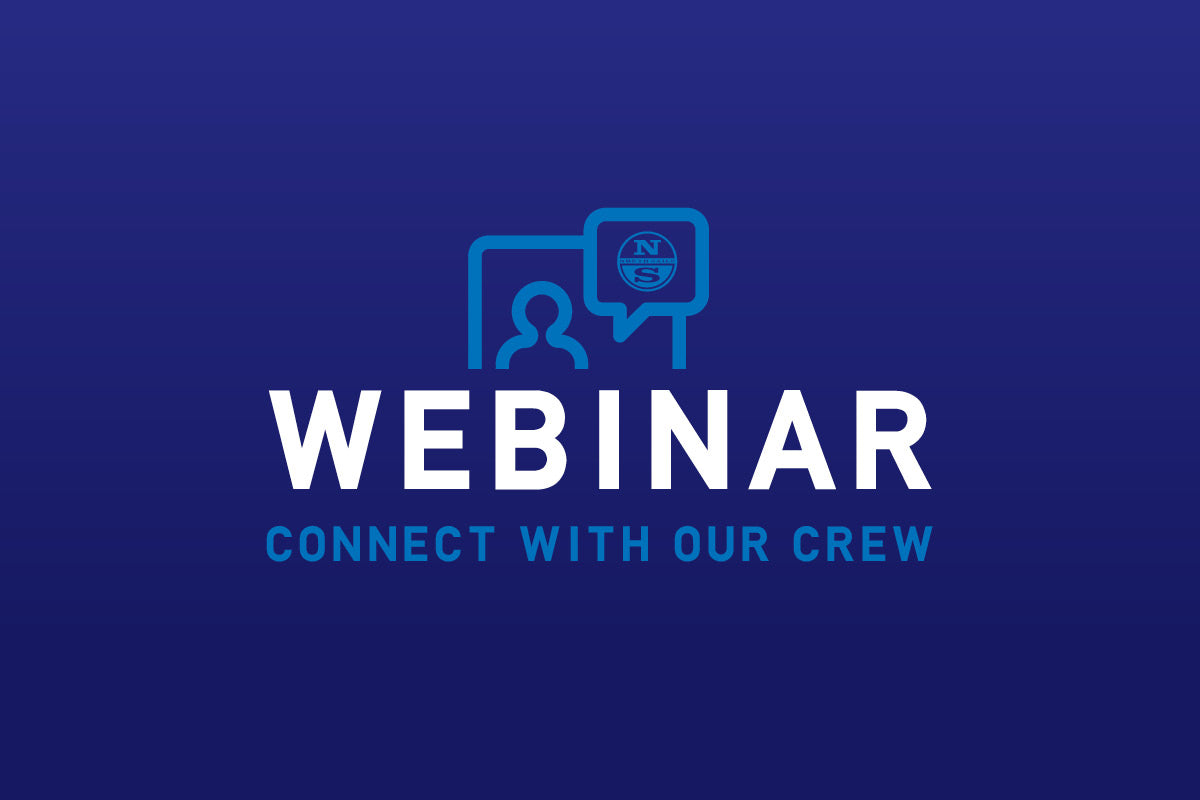
news
YOUR NORTH SAILS TEAM IS LIVE!
YOUR NORTH SAILS TEAM IS LIVE!
Upcoming Expert Webinar Schedule
Catch your local teams live with our upcoming interactive webinar schedule. North Sails Class Experts from around the world have joined forces to bring you the best tips and techniques that will help you get the results you are looking for. When you sign up for the webinar of interest, you will be sent the link to access the live presentation so you can view at any location you are in the world, from the comfort of your home. Grab a seat, a drink, and kick back with our full-on educational webinar schedule, open to all.
*All webinars are recorded and will be published on our YouTube channel. Did you miss one? View all of our webinars and rewatch or rewind at your own convenience.
Watch Past Webinars
Upcoming Webinar Schedule:
🌐 LET’S TALK J/70 MIDWINTERS
Get ready for the 2021 Midwinters in Tampa, hosted by Davis Island Yacht Club. Join North the Sails Experts Allan Terhune and Zeke Horowitz and Sail designer Mike Marshall for a full session of tips, tuning, and sail trim information.
Tuesday, November 16th at 8:00 pm EST
Register Here
🌐 LET’S TALK NEWPORT BERMUDA RACE – WEATHER & NAVIGATION
North Sails is back the Official Performance Partner to the 2022 Newport Bermuda Race. Three editions in the running, we’ll once again be running our enormously informative and popular Performance Seminars, focused on weather, navigation, sail selection, and performance optimization.
Raise your Newport-Bermuda weather IQ with Chris Bedford and Peter Isler, founders of Marine Weather University.
Thursday, November 18th at 7:30 pm EST
Register Here
🌐 LET’S TALK NEWPORT BERMUDA RACE – SAIL INVENTORY OPTIMIZATION
North Sails is back the Official Performance Partner to the 2022 Newport Bermuda Race. Three editions in the running, we’ll once again be running our enormously informative and popular Performance Seminars, focused on weather, navigation, sail selection, and performance optimization.
From race-record-breaking skippers to multi-edition veterans, the North Sails team’s collective experience and expertise are proven to deliver results.
Thursday, December 9th at 7:30 pm EST
Register Here
READ MORE
READ MORE
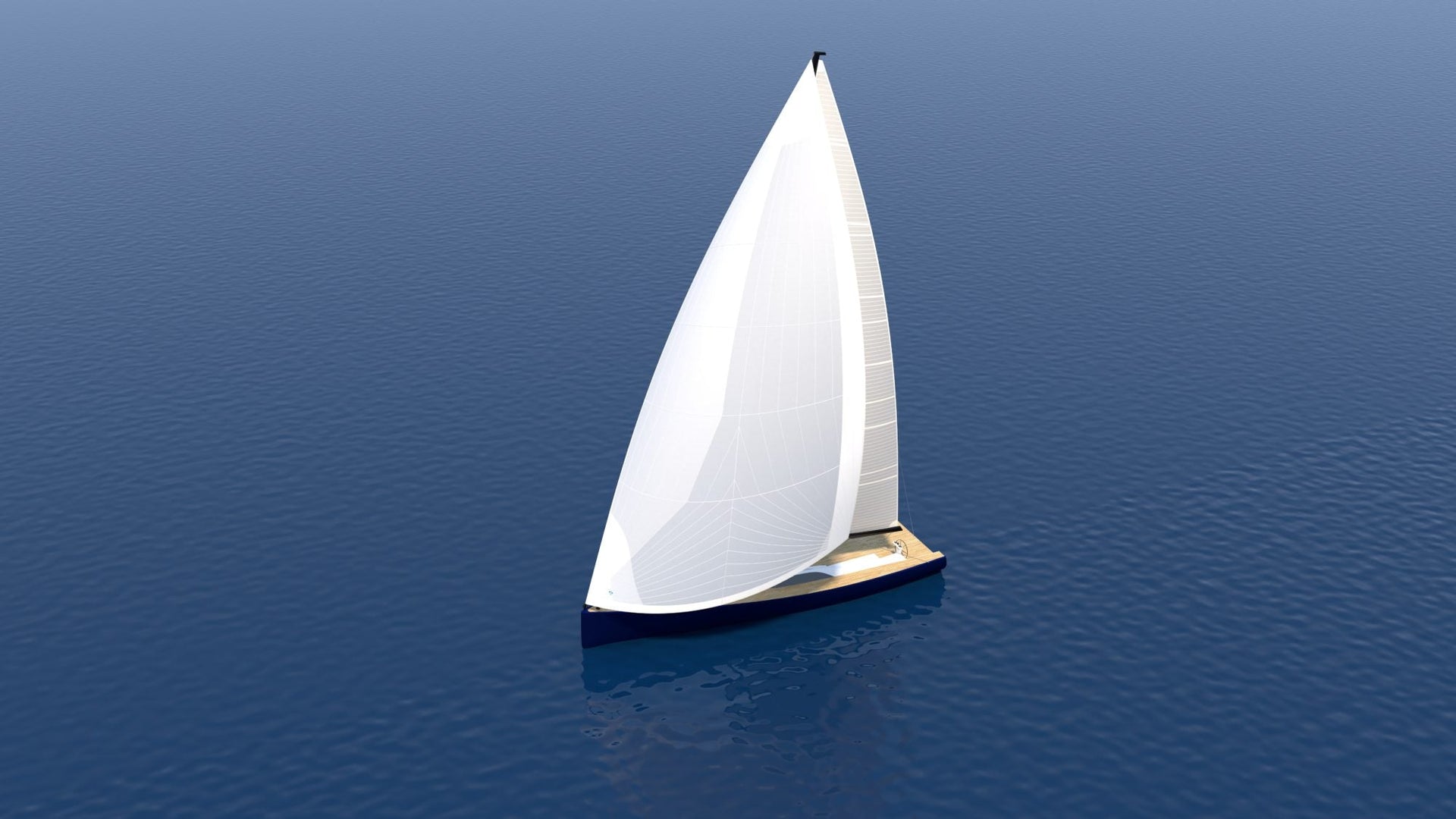
news
INTRODUCING THE HELIX FURLING GENNAKER
NORTH SAILS ADDS HELIX STRUCTURED LUFF TO CRUISING SAILS
Introducing Easy To Use, Accessible Performance
North Sails is excited to introduce the Helix Furling Gennaker, a new sail type for the cruising community. The structured luff Helix Furling Gennaker eliminates the heavy cable needed for traditional furling and is the most reliable and easy to use top-down furling cruising sail in the world.
Helix Structured Luff transforms how sails fly and is key to building a modern inventory. Our cruising sails with structured luff provide a more reliable furl than a sail weighed down with a heavy furling cable, are lighter and easier to handle, and have a wider range of wind angles. That cuts down down the number of sails you need onboard, as well as wear and tear, which make them the perfect downwind addition to your cruising wardrobe.
“By incorporating a Helix Structured Luff system into a G1-style sail, we have created an easy to fly, easy to furl, and easy to stow downwind sail uniquely engineered for cruising.”
The Helix Furling Gennaker concept developed out of a 2019 design meeting, explains JB Braun, North Director of Design and Engineering. “Helix sails were delivering fast, reliable furling for racers. But non-racers typically don’t sail at the same aggressive angles, so they needed a downwind sail for deep angles without the complexity of massive, heavy, sails. By incorporating a Helix Structured Luff system into a G1-style sail, we have created an easy to fly, easy to furl, and easy to stow downwind sail uniquely engineered for cruising.”
With a range of materials to choose from, a Helix Furling Gennaker is customized to boat size and use: from family cruiser to superyacht. Once reserved for 3Di sails, Helix Structured Luff is available in a range of materials from woven polyester to 3Di. Where requested, an optional LightWeight UV Cover can be added to the Helix Furling Gennaker.
In 2016, North Sails doubled -down on cruising product development, and the results have been astounding. The world’s leading sailmaker has released three cruising-dedicated product offerings since 2017; 3Di NORDAC, 3Di OCEAN 370, and then a full revamp of the 3Di OCEAN product line up in early Spring 2020. The Helix Furling Gennaker is our latest significant example of a fast-tracked, adapted technology. Helix Structured Luff is a design philosophy that transfers the best of Grand Prix sail handling into a lighter, reliable, user-friendly cruising gennaker.
The Helix Furling Gennaker is available for order now for spring delivery. To learn more, contact your local North Sails expert.
PRODUCT DETAILS REQUEST A QUOTE FIND AN EXPERT
READ MORE
READ MORE
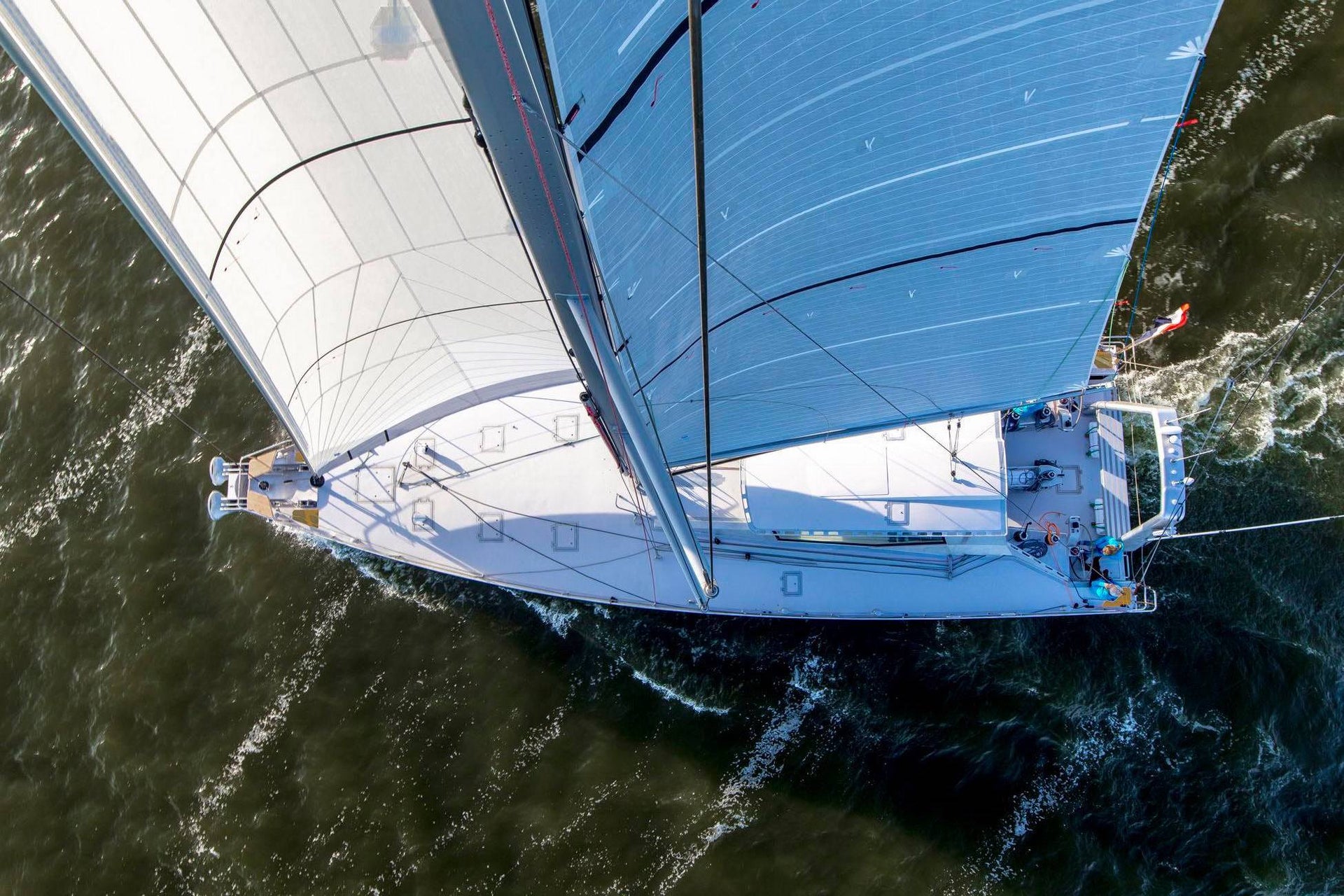
news
EXPLORING THE ARCTIC ONBOARD QILAK
ADVENTURE AWAITS ON QILAK
Arctic Expeditions with North Sails
📸 Florian Ledoux
Qilak owners, father and daughter Philippe and Marion Carlier, know they need dependable equipment to survive the Arctic ice onboard their purpose-built Owen Clarke 66. When we spoke to them, they were 69 degrees 29 minutes North, in Norway’s Lyngen Alps, well above the Arctic Circle. For Qilak, a combination of the right equipment and years of expertise make it possible to safely bring guests to explore high latitudes, sharing their passion for sailing and the sea.
The Right Connections
Why did the Carlier’s choose North Sails for arctic exploration?
“I had North Sails on my three-quarter tonner, and she was fast– World Champion fast– so I’ve had confidence with the product from the very beginning,” says Philippe. But it was the relationship they built with North sailing expert Frank Gerber that cemented their decision for this project. “We all had the same understanding of what we were looking to do with the project,” says Philippe. “Frank was the key piece that tied all the parts together.”
Marion says they first met Frank at The King and Queen Pub in Hamble, UK. “Frank’s mother owns it, and it quickly became our central meeting place, along with every other sailor in the area in England.” That’s also where they met Naval Architect Merfyn Owen. It was a combination of all the right people at the right time–and the right place.
Philippe Marion . 📸 Florian Ledoux
The Right Boat + Sails
Qilak was purpose-built, and her solid aluminum hull can break through the ice. She has a retractable keel to go where larger ships cannot, an open cockpit—with heated seats and a warm cabin to take cover when underweigh. “Even the view from down below is stunning,” Marion explains. “The combination of boat design, rig, and sail plan was exactly what we needed and is why we can explore the arctic waters safely, comfortably, and with ease.”
Philippe and Marion knew they needed a long-lasting sail product that was efficient through the wind ranges. It wasn’t just about getting new sails, though; it was about all the necessary systems easily working together. “The relationship we built with Frank has made this project successful,” Marion says. “He worked closely with my father–carefully listening to make sure he knew everything we were trying to accomplish with Qilak. He then bridged contact between my father and Naval Architect Merfyn Owen. North Sails made our project run smoothly, with the best sail options. They are true sail experts.”
Qilak has many options when it comes to inventory. : NPL TOUR Furling Solent headsail : G2 Gennaker with Snuffer : 3Di OCEAN furling headsail.
Qilak’s inventory consists of a full-batten 3Di OCEAN mainsail, NPL TOUR furling solent, 3Di OCEAN furling inner jib, NPL TOUR furling reacher, a storm jib, a storm trysail, and a G2 Gennaker with a Snuffer. They’ve got every wind range covered with their new setup.
“As a retired pilot, I like when I can see my sails acting like wings,” Philippe explains. “Our 3Di mainsail is so stable. It generates a great deal of power, and you can feel it.” Qilak’s furling headsails make it possible to adjust the amount of power as needed, without clients even noticing. “We can achieve zero percent or 100 percent, or anything in between,” he continues. “It’s all done so easily. The convenience of furling headsails allows us to do so much more.”
North expert Frank Gerber based in Gosport, UK commented, “I’m glad we were able to help them achieve their sailing goal and provide them with peace of mind along the way in their adventures.”
Though they use their engine to reposition or avoid ice, the feeling onboard under sail is a special one, says Marion. “This is a great opportunity to teach our guests and enjoy each moment.”
In the Arctic, the wind funnels through the mountains and down fjords and delivers varying conditions. “You can go from very light air to 40 knots just like that,” Marion says. “This is why we are always conservative when it comes to how many sails we have up at the same time. It’s for everyone’s safety.”
Catch the last light before dark, or the first sun as it comes up over the mountains. If you are lucky, you can even see the Aurora borealis from on deck. From what we’ve heard, it’s spectacular.
The Carlier’s have covered roughly 15,000 nm on Qilak, more than half the time under sail power alone. “We sail about 65% of the time, “We choose to motor sail when the high pressure is on us,” Marion explains. “We use our mainsail and our solent most because they are easy with guests and provide us stability.”
Their longest passage so far is 600 miles, which took three days. Their best 24 hour run so far was 220 miles. “Very impressive for us non-racing sailors,” Marion laughs. “We saw 12.5 mph, with the wind at 15 knots. We stayed tucked into our pilot house with our heated seats. It was just a beautiful ride.”
It’s All About the Adventure
“We insert ourselves into nature and share the beauty of sailing and the environment with our guests,” says Philippe.
Maneuvering under sail allows Qilak to get close to arctic wildlife. “We see so many amazing things,” says Marion. “Last year, we witnessed billions of herring moving back into the fjords, and behind them followed Orcas and humpback whales. Everywhere we went, whales surrounded us. We move slowly, with just our solent, and the whales and dolphins are curious. It is so quiet, we don’t have our motor on, and they come in very close to see what we are up to.”
“The walrus are fascinating”, says Philippe. “They look sleepy most of the time, then all of a sudden they move and they are faster than you think. They are true torpedos in the water– magnificent animals.”
Choose your adventure! Anything from sailing, trekking, climbing, kayaking, or relax down below in the onboard sauna… (yes, we said sauna!)
There are also millions of Arctic tern, puffins, reindeer, and fox. “The reindeer are a bit more curious, said Philippe. “They often get within 10m if you are standing still. If they take off, it’s generally because a polar bear is near.”
Greenland sharks are another common species they’ve seen while adventuring. “Have you ever seen one? This given species of shark could be over 400 years old– it’s just unbelievable, says Philippe. “I would not hesitate to swim with whales and orcas, but that shark, no way.”
“One time, we had a polar bear reeling us in,” said Philippe. ” It was less than 50 meters behind us. They are beautiful animals, but we keep our distance. When you hear someone yell ‘polar bear, polar bear!’ it is no joke up here.”
Charters on Qilak are scheduled around the best weather window. “Most of our guests like having a destination, but every now and then we get a group that is just there to go explore at our own pace,” says Philippe. “This allows for a sense of freedom. It’s a different experience to have no real limits. There is no race, nowhere you have to be, no other sailboats around, just you, the ice, and nature.”
Qilak is built to make safe ice passages in the arctic territories.
Why Qilak?
The Qilak logo stands for the sky’s dome, the protective layer with all the living things under it. “We wanted to pick something that would be fitting with our project. A celestial sky and, by extension, like heaven all encompassed inside Mother Earth. We wanted to choose a name that was relatable to this arctic area of the world.”
They wanted to name their boat something different, something unique. “We were speaking to an Inuit, and he asked us why we named our boat Qilak because his name was Qilak! It was funny. I guess we were not the only ones who thought it was a good name,” said Philippe.
With a new year ahead, the Carlier’s stay positive and are ready to get creative to continue to follow their plans for adventure. “There is uncertainty still with the pandemic, but we’re not giving up. No matter what, we will still take on the adventure, and with a little creativity, it will still be successful,” says Philippe.
Want to learn more about Qilak and how you can jump onboard? With tons of trip options, you can see parts of the world you would never have imagined. Visit Qilak’s website to learn more. Get the full tour and see her under sail here:
🎥 Courtesy of Expedition Sailing Virtual Boat Show, produced by Arctic Yachts. Thank you to 📸 Florian Ledoux for professional imagery.
All other images + video links provided by guests onboard Qilak. Thank you Manta Vizbaras, Julie la Québecquoise, and Secret Atlas. To see what Qilak is up to, follow Qilak on Facebook and on Instagram.
READ MORE
READ MORE
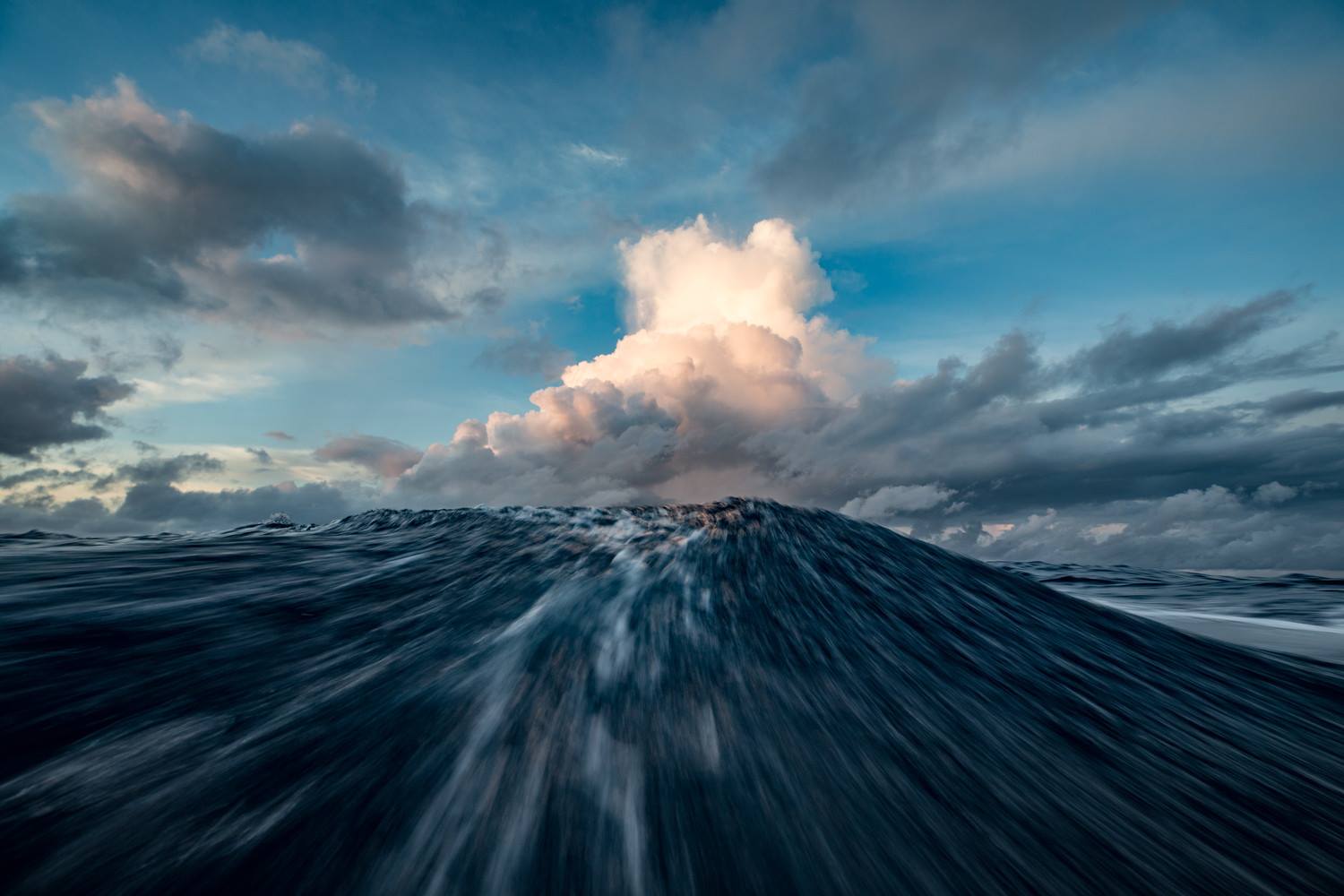
news
WE'RE LEAVING 2020 AT THE DOCK
WE’RE LEAVING 2020 AT THE DOCK
Cheers to the New Year and a Fresh Perspective
📸 The Ocean Race
We’re starting the new year cautiously optimistic for what lies ahead. A global pandemic is an event none of us expected or had prepared for, but there were bright spots that we hope to carry forward into 2021.
First of all, this is an exciting time in sailing. We have a trifecta of adrenaline-pumping events – the Vendee Globe, the 36th America’s Cup, and the Ultims back on weather-watch for their Jules Verne attempt. We rarely get to play witness to some of the most exciting sailing all at once, and watching the skippers and crews handle these high-powered boats is for sure a welcome treat to close out 2020.
While it’s disappointing to see many of our sailing events canceled, the effort to get on the water gave way to new opportunities. We saw a surge in interest in doublehanded racing and local sailing with friends and family. It’s all too easy to get caught up in the travel, the big-crew programs, and winning a regatta on the world stage. In a sense, 2020 brought us all back to grassroots sailing, and you know what, it was fantastic. It was simple, fun, and personally, it reminded me why I love our sport.
And finally, thank you to the North Sails team worldwide, both employees and our clients. This past year was an exercise in patience, hard work, and teamwork. We move into 2021, looking forward to the new year. See you on the water.
READ MORE
READ MORE
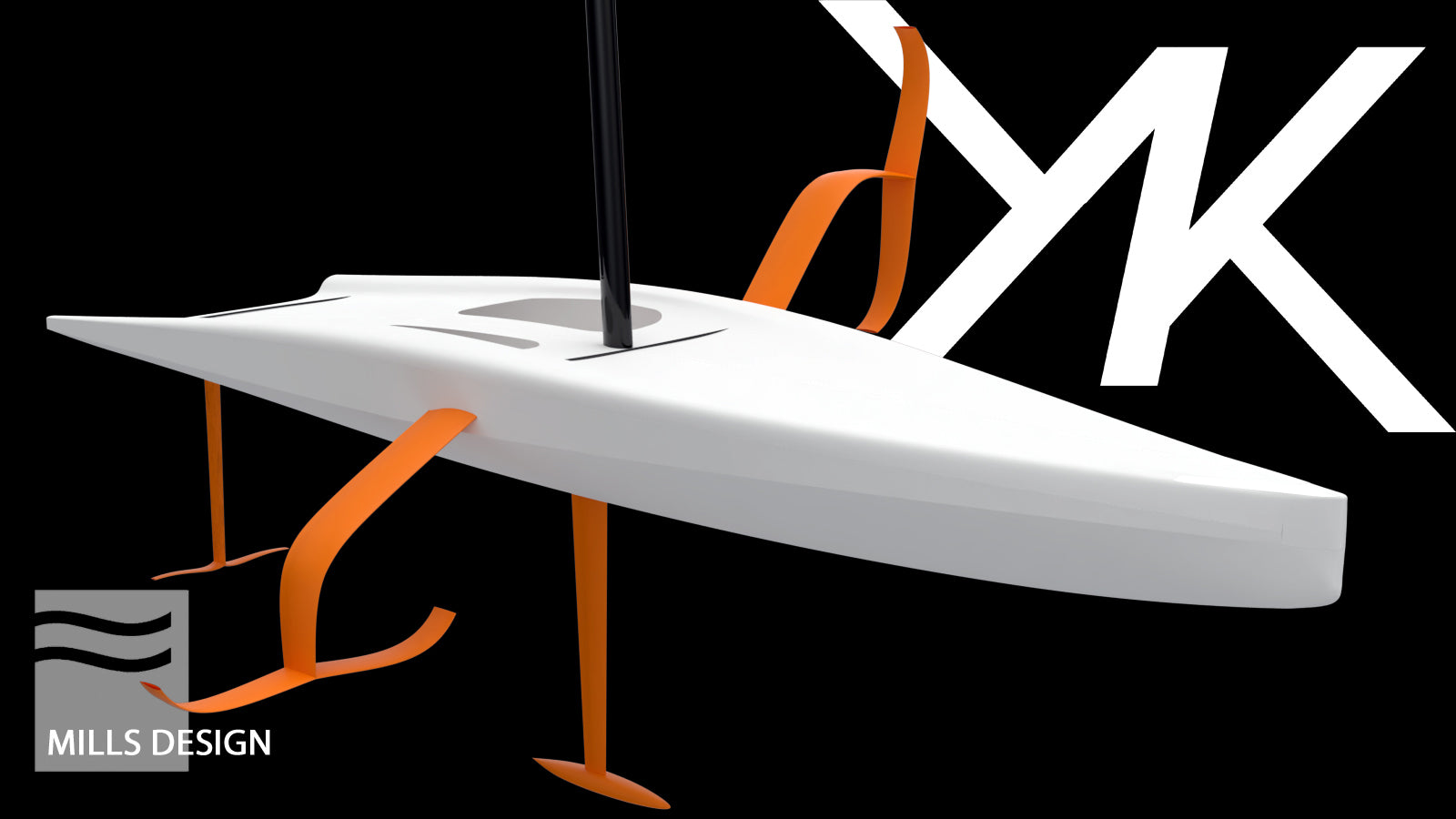
news
FLYINGNIKKA IS FUTURISTIC, UNIQUE, AND EXTRAORDINARY
ITALIAN OWNER ROBERTO LACORTE PRESENTS FLYINGNIKKA
The First New Generation Foil Mini Maxi Designed by a Team of Specialists Captained by Naval Architect Mark Mills
Republished with permission from the FlyingNikka Team
Futuristic, unique, extraordinary. A real “weapon”, ready to amaze from the first day it touches the water in middle of 2022.
FlyingNikka is the new highly anticipated boat by Roberto Lacorte, a successful entrepreneur with a passion for regattas – with the Mini Maxi SuperNikka he has won everything possible, including four Maxi titles in Porto Cervo and the FIV Owner-Helmsman of the Year, followed by victory in the first year of the new Persico 69F foiling monohull circuit.
FlyingNikka is something unique, unprecedented, a dive into the sailing of the third millennium which, as is clear from the main sailing events in progress – the Vendée Globe round the world and the America’s Cup regattas – no longer sails on water but flies above it.
19 meters long, equipped with latest generation appendages that allow foiling in excess of 40 knots, FlyingNikka is being designed by a team coordinated by Irish designer Mark Mills of Mills Design. She will be the first foiling Mini Maxi in the world, an evolution suitable for longer trips than the current AC75, with which to compete in coastal and offshore races in record time.
“It will be a different boat, the first of a new generation that will definitely set sail in the coming years. We are the first, with the pros and cons of the case, but my professional and sporting life has always been marked by innovation and the desire to explore, so I could only take this direction”, explains Roberto Lacorte, also involved in motorsport with the Cetilar Racing team driving his Dallara prototype, including four years at the 24 Hours of Le Mans.
“We have been working on the project for a long time, with Mark Mills and the professionals with whom I have shared many victories with SuperNikka and the Persico 69F circuit. Now we know which path to take precisely and we are ready. I can count on an exceptional group, which is making a fundamental contribution to the realization of FlyingNikka. And it is the most important aspect, when you embark on an undertaking like this, outside the comfort zone, which might even seem a bit crazy”.
Alessio Razeto, Team Manager and Head of the Sails Project, Lorenzo Bressani, Enrico Zennaro, Andrea Fornaro and Lorenzo de Felice are the five, experienced and titled sailors who together with Lacorte himself, the Commander of the boat Fabrizio Turini and the design team set up by Mark Mills and the Project Manager Micky Costa, will work closely on the development of the innovative FlyingNikka project until the day of launch, scheduled for the middle of 2022, with the colors of the Yacht Club Repubblica Marinara di Pisa.
Designer Mark Mills is very enthusiastic about this new direction: “Mills Design is proud to be developing the most exciting new design project outside of the America’s Cup. The vision of repeat client and Italian Owner of the Year Roberto Lacorte is to be the first to have a Mini-Maxi sized foiler capable of coastal racing and to bring true big boat foiling performance to a wider audience. This will take the lessons and some of the technology from the America’s Cup AC75 foiling monohull and put them together in a more user friendly and cost-effective package which can sail in a wider range of conditions.
Given the very challenging design brief we assembled a team of specialists to ensure we could deliver Roberto’s vision. Among the 10-man group are members with experience of 3 of the 4 AC teams currently competing in Auckland. Our R&D Partners KND provide the analytical tools to evaluate the novel design topography, with aero input from North Sails design specialists, while Pure Engineering provides their relentless drive and technical knowledge to produce the lightest and most reliable platform. The initial six months of preliminary design work has been focused on validating the concept, using the TNZ-developed Gomboc dynamic simulator and the North Sails VPP to evaluate various configurations and foil geometries both when flying and in displacement mode. Led by founder Gio Belgrano, Pure have developed an entirely new wing articulation solution to reduce foil cost and improve reliability appropriate to a project operating outside the rarefied conditions of the America’s Cup.
Our vision for the design is a robust simple platform able to foil in winds below 10 knots true, and capable of passing the various requirements for entry into mainstream race events, such as WS Offshore Special Regs categorisation including stability. The need for limited Archimedean sailing in sub-optimal wind speeds and increased contact with the sea surface in a wave pattern leads to a hull shape differentiated from its AC75 siblings by greater concern for wetted surface. Powered controls and winches assisted by a flight augmentation system reduce the burdens on the 5 man crew, allowing the helm to focus on steering without also having to directly control ride height.
Now that the project is moving at full speed, the design team is focusing on development and optimisation of the design geometry and systems. Over the next three months the hull, deck, and crew configuration will be finalised prior to the commencement of construction. Builder selection is at an advanced stage, guided by experienced Project Manager Micky Costa who fills a crucial role linking the designers, builder, and sailing team to produce a reliable, simple and effective sailing machine”.
A boat ready to amaze – which will be able to race with an ORC certificate thanks to the close collaboration with the Offshore Racing Congress for the definition of the VPP relating to full foil boats – of which the first technical details will be revealed in the coming months, in addition to name of the construction site and of the members of the design team.
In the meantime, the crew will be engaged again in the Persico 69F circuit with the two “small” FlyingNikka 47 and 74, as confirmed by Team Manager Alessio Razeto. “We will have to defend the first and second places won this year. And continue to accumulate specific experience on foils, a constantly evolving world that must be followed daily and on which there is still so much to learn. Our experience on the Persico 69F ”, continues Razeto,“ was very important in this first phase of conception of the new project, because the contribution of those who go by boat is crucial. And ours is a very high level sailing team ”.
READ MORE
READ MORE
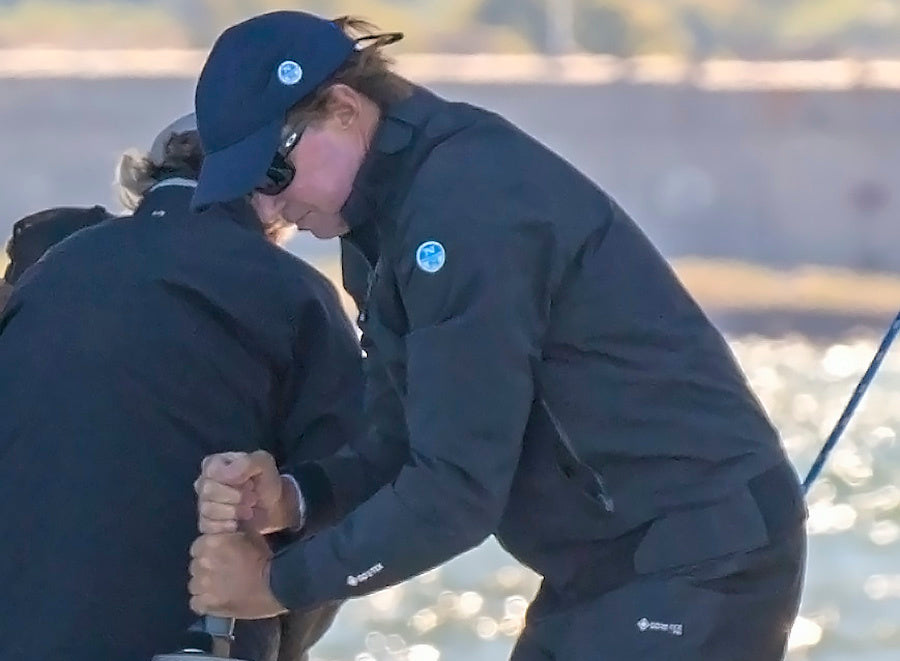
news
BUILD, TEST, RINSE, AND REPEAT
OFFSHORE + INSHORE GEAR DISPATCHED TO THE RACETRACKS
The Launch of North Sails Performance Collection
Last week we announced the launch of our new Performance range of foul weather gear that will be available in Spring 2021. Each week, until launch, we’ll unpack how our team conceived the range, the new “must-haves” for your kit bag, and how we’ve made sure our foulies uphold the expectations you’d have for gear from the world’s leading sailmaker.
Our gear development team was diligent in ensuring our gear adheres to Lowell North’s scientific method; the design, build, and testing process used for all North Sail products.
Our design work doesn’t end when the first prototypes ship out of the factory. This is just the beginning. Every piece of North Sails kit is the result of the same extensive process; research, innovate, design, build, test… rinse, and repeat. Over, and over, and over again. Our foul weather gear has already been tested in the most extreme conditions.
The Offshore and Inshore gear has been dispatched to the racetracks of the world in the hands of North’s experts and sail designers – a team of the most experienced sailors in the world, who cover hundreds of sea miles aboard many different types of vessels…you couldn’t dream up a better kit testing team.
PRB skipper and Vendée Globe 2020 competitor Kévin Escoffier, also joined our testing team. One of the most experienced and successful ocean racing sailors of his generation, Escoffier has emerged from a backroom role running Team Banque Populaire’s design office to win a Jules Verne Trophy and the last Volvo Ocean Race.
Escoffier did a lot of sea miles before he crossed the Vendée Globe 2020 start line as skipper of November 8 2020 – and he did them all in North kit. He achieved a second-place finish in the IMOCA class of the Rolex Fastnet Race and the Transat Jacques Vabre. It’s been the perfect testing environment for the Ocean range and Escoffier’s thoughtful, analytical feedback was essential to the refinement of the final designs. Escoffier decided that the kit was so good that he took it to race in and, whilst his Vendée 2020 journey hasn’t ended as any of us would have wished, we’re still looking forward to a valuable debrief when he returns to shore – design, build, test…..rinse and repeat.
The Offshore prototypes also went south to Sydney for the start of one of the world’s classic bluewater races, Rolex Sydney Hobart Yacht Race. In 2019 North Sails designer and trimmer Dick Parker was wearing our kit when he secured his first Hobart win. He had plenty of praise for the kit and lots more ideas – as did everyone else. Research, innovate, design, build, test… rinse, and repeat.
LEARN MORE JOIN THE WAITLIST
Catch up with the latest from a key member of the North Sails Performance Testing Team, Kévin Escoffier, aboard Yes We Cam!
READ MORE
READ MORE
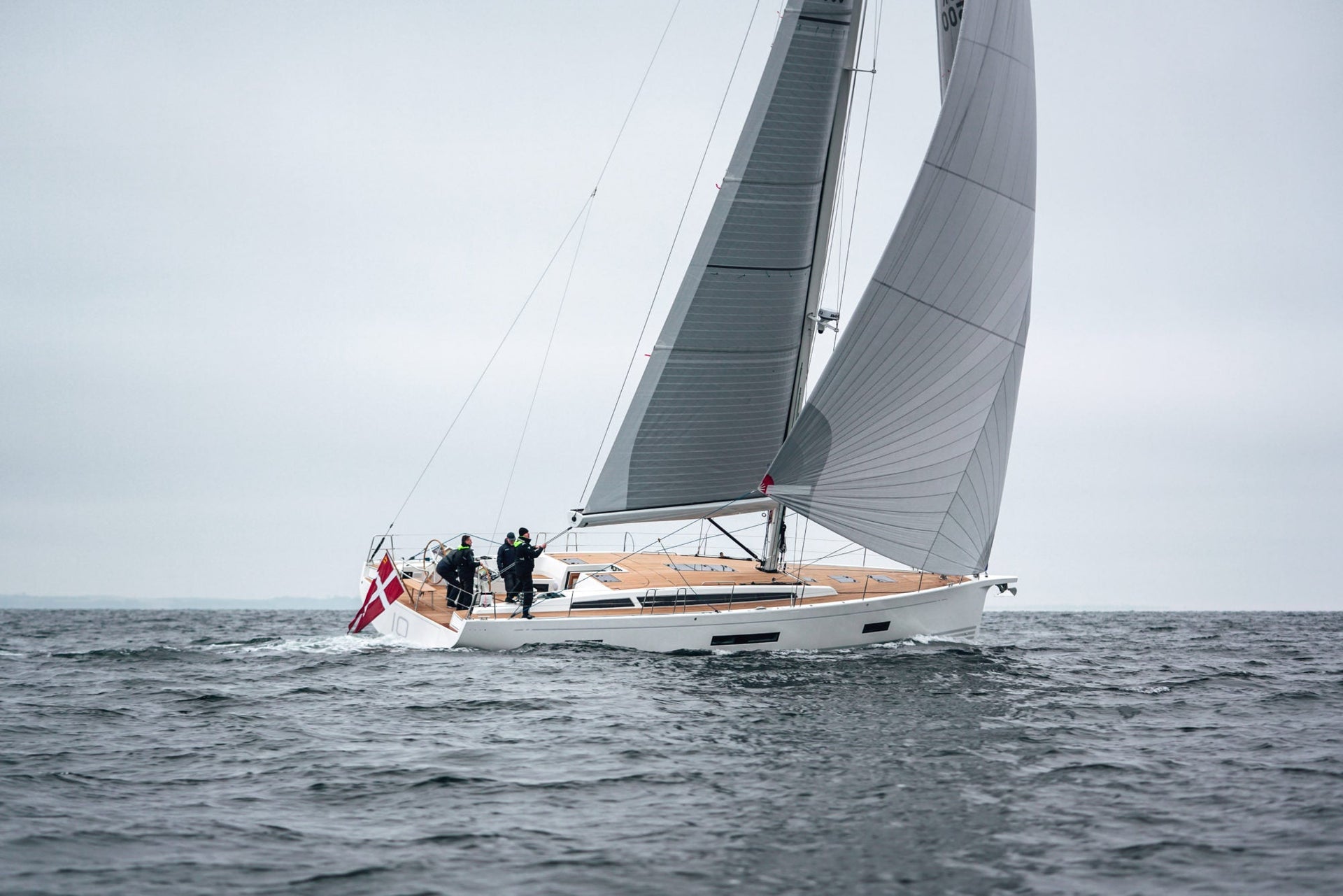
news
X-YACHTS LAUNCHES NEW PERFORMANCE CRUISER
X-YACHTS LAUNCHES NEW PERFORMANCE CRUISER
North Sails Proud to be Sailmaker of Choice
📸 X-Yachts
X-Yachts are excited to introduce their new model of cruising yacht, encompassing 56 feet of luxury and performance with an emphasis on comfort.
The X5⁶ is one of the biggest X-Yachts models ever to be produced in Denmark, and North Sails is incredibly proud to be the sailmaker of choice. We talked to the Manager of North Sails Denmark, Jesper Feldt, about this new addition to the cruising world: “Together with North Helix Structured Luff and Future Fibre’s Helix bluewater luff cord for the Code sail, the X5⁶ is a perfect match for our 3Di OCEAN product line.’’
Launching for the first time in Haderslev, Denmark, the X5⁶’s full 3Di OCEAN inventory was fitted by the North Sails team for sea trials in light to medium conditions. The perfect fit for a performance cruiser like the X5⁶, 3Di OCEAN evolved from the original 3Di and strikes a balance between performance and reliability. The material is continually refined and the most rugged version of our composite molded sail technology.
“Together with North Helix Structured Luff and Future Fibre’s Helix bluewater luff cord for the Code sail, the X5⁶ is a perfect match for our 3Di OCEAN.’’
Though there is some ‘homework’ still to do, X-Yachts is very proud that, after extensive organization and development, they have accomplished their aim to create a magnificent performance cruiser that will give future owners superior sailing pleasure.
“The first hull has already provided a distinct big-boat feeling of safety and comfort, where almost everything can be operated by the touch of a button if you so want,’’ explains Thomas Mielec, Director of Design & Engineering at X-Yachts. “This also means that vast amounts of technical equipment must be tested, adjusted, calibrated, etc. to ensure they work as designed and engineered.’’
The first set of sea trials focused on sail handling, sail balance, rig trim, alignment, and tuning the twin rudder system. The North Sails team are looking forward to launching the boat again this weekend for a heavier-air test of the remaining sail inventory, which includes a Helix Structured Luff Code sail and Jib Staysail. This will allow them to get an even better feel for the capabilities of the yacht before she goes back to the assembly hall for the final fit-out of the interior. The world premiere will take place in the X-Yachts showrooms (Haderslev, Denmark) on 16th January 2021.
Please get in touch with Jesper Feldt to discuss sail inventory options or X-Yachts CEO Kræn Nielsen.
📸 X-Yachts
READ MORE
READ MORE
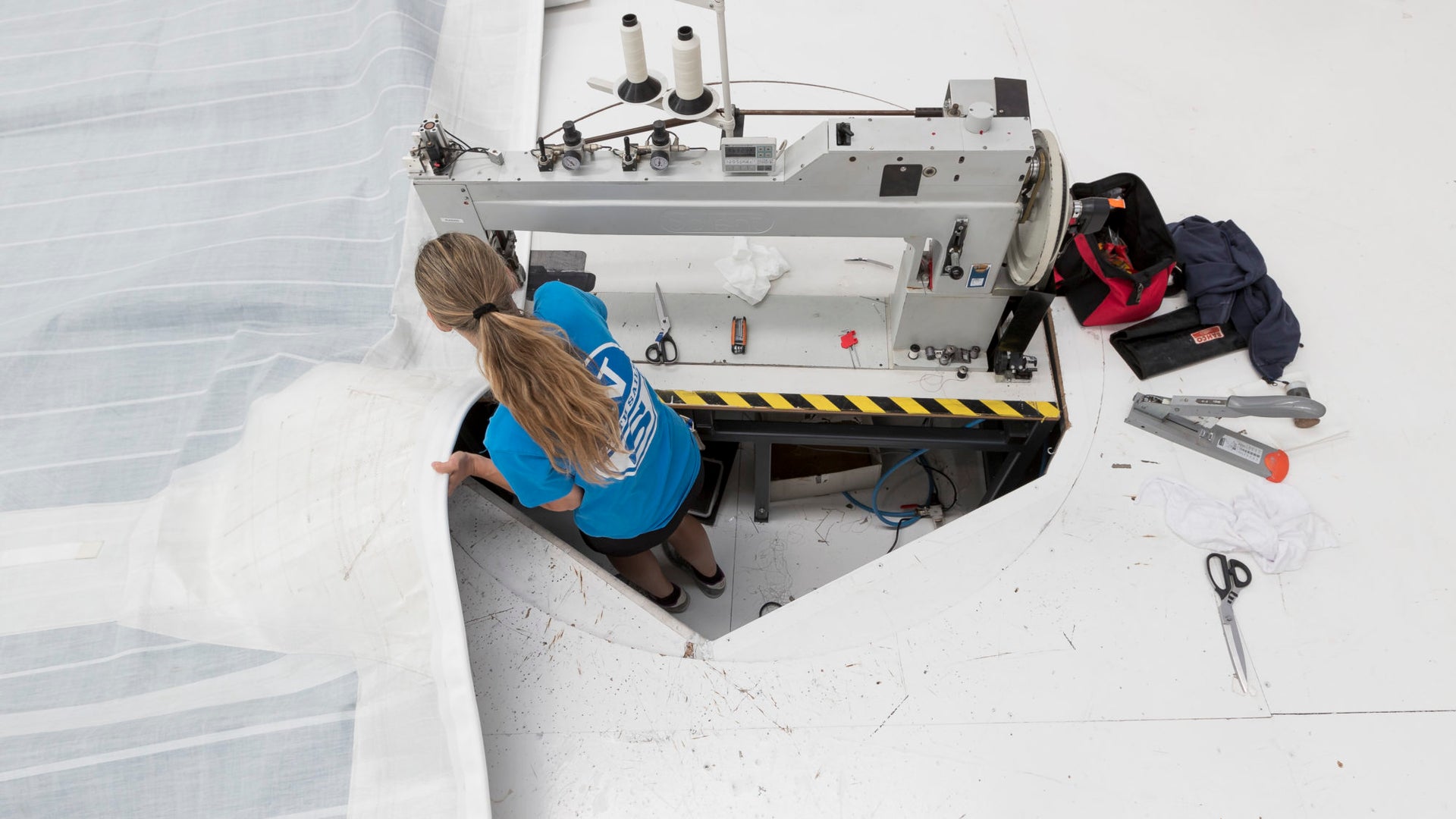
news
NORTH SAILS EXPANDS NETWORK IN GERMANY
NORTH SAILS EXPANDS SERVICE NETWORK IN GERMANY
Fehmarn & Wilhelmshaven Added to the Roster of Certified Service Lofts
North Sails is committed to providing its customers with high-quality service, professional repairs, and maintenance on-site at any time or place. Through two new locations in Fehmarn and Wilhelmshaven, we have gained further experienced partners.
“We are looking forward to the cooperation and are sure that we have found an optimal extension of our distribution network in Germany with both locations,” comments Stefan Matschuck, Sales Manager of North Sails Germany.
NORTH SAILS FEHMARN
Coast Sails is partnering with North Sails to provide a Certified Service presence in the north-east of Germany. Since 2015, the team of sailmakers at Coast Sails provide expertise in sail and tarpaulin repairs, rigging, and yacht services.
“With North Sails on Fehmarn, we are creating more proximity to our customers in the north-east by offering them an even more comprehensive sailing service directly on-site”, reports Stefan.
Managing Director of Coast Sails, Martin Jannsen, holds the 2011 X-99 World Championship title and sailed as part of the Heizkörper Match Race Team; currently the best German team in the world ranking.
“The incentive of first-class customer service connects Coast Sails with North Sails,” Jannsen explains. “North Sails is a market leader in technology, logistics, and quality. In the first years of my self-employment, I learned how important it is to have strong and reliable partners who share the same goals. In North Sails, I have found this partner”.
NORTH SAILS WILHELMSHAVEN
Jade Yachting and North Sails have partnered to provide another experienced and professional service location in Wilhelmshaven.
“At North Sails, the international network of experts and the broad range of knowledge is a huge advantage. Together with the innovative ideas for the cruising sector, we are able to offer our customers tailor-made products,”, comments Jade Yachting Managing Directors, Tobias Schadewaldt and Hendrik Kohrs.
READ MORE
READ MORE
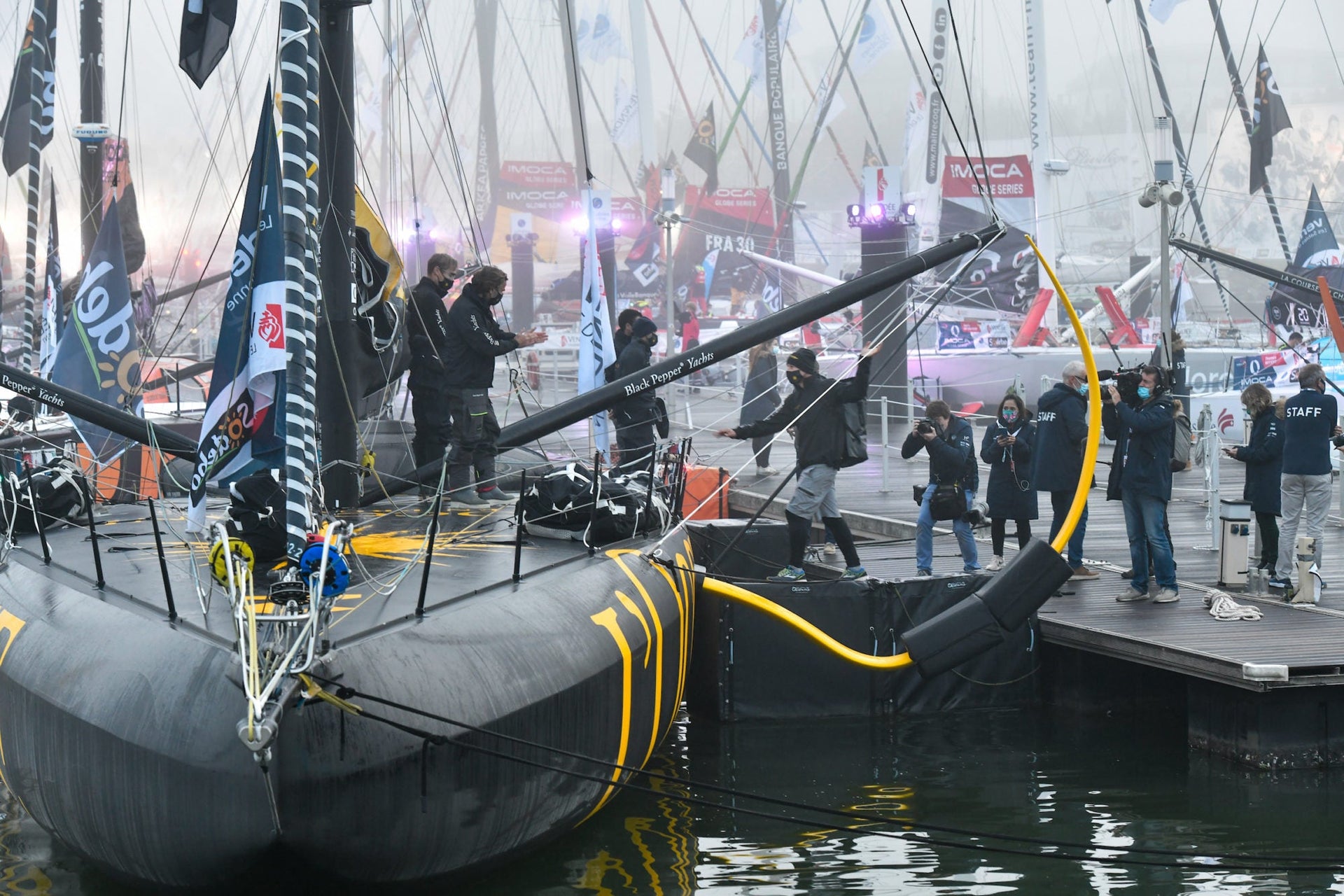
news
THE FUN STARTS NOW
THE FUN STARTS NOW
Today We Switch from Race Prep to Tracking the Vendée Globe 2020. Who’s With Us? 🙋🏼♀️
📸 Olivier Blanchet/Alea
Thirty-three skippers have set off on their around-the-world, non-stop, solo, and without assistance adventure. Departing from Les Sables-d’Olonne, the Vendée Globe 2020 fleet will travel 40,075 km over three months. The competition will be intense. The favorites will be vying to be the first to finish and attempting to beat a record of 74 days, 3 hours, 35 minutes, 46 seconds set by Banque Populaire VIII’s Armel Le Cléac’h, winner of the 2016 Vendée Globe.
While winning the Vendée is the ultimate honor, the race is a relentless experience, and completing the course is considered an extraordinary accomplishment. North Sails powers 22 IMOCAs competing in the 9th edition of the race. The Vendée requires skippers to push themselves and their gear to the most extreme limits. We’re proud these 22 programs have chosen North 3Di to deliver the reliability this race demands.
If you’re anything like the North Sails team, you’ll be joining us following the race (and obsessively checking the online race tracker!). Below is a cheat sheet of links we’ll be bookmarking.
VENDÉE GLOBE RACE TRACKER
OFFICIAL RACE CHANNELS:
Leaderboard / Facebook / Twitter / Instagram / YouTube
PRESS PLAY
North Sails teamed up with Loïck Peyron and polaRYSE to create a seven-part video series to celebrate the Vendée Globe 2020. Peyron joins North Sails to lend his voice as our narrator and offers his perspective on this legendary race by telling the story of the exceptional skippers who dare take on the challenge, the passion that drives them, and the quest for open-ocean adventure. Beyond, the modern Vendée features the emergence of women and international sailors, the ever-evolving technology of the IMOCA, not to mention the growing enthusiasm amongst spectators and all those who are passionate about this unrivaled competition.
The first six episodes are on YouTube now. Episode 7 will feature footage for the start and drops later this week.
READ MORE
READ MORE
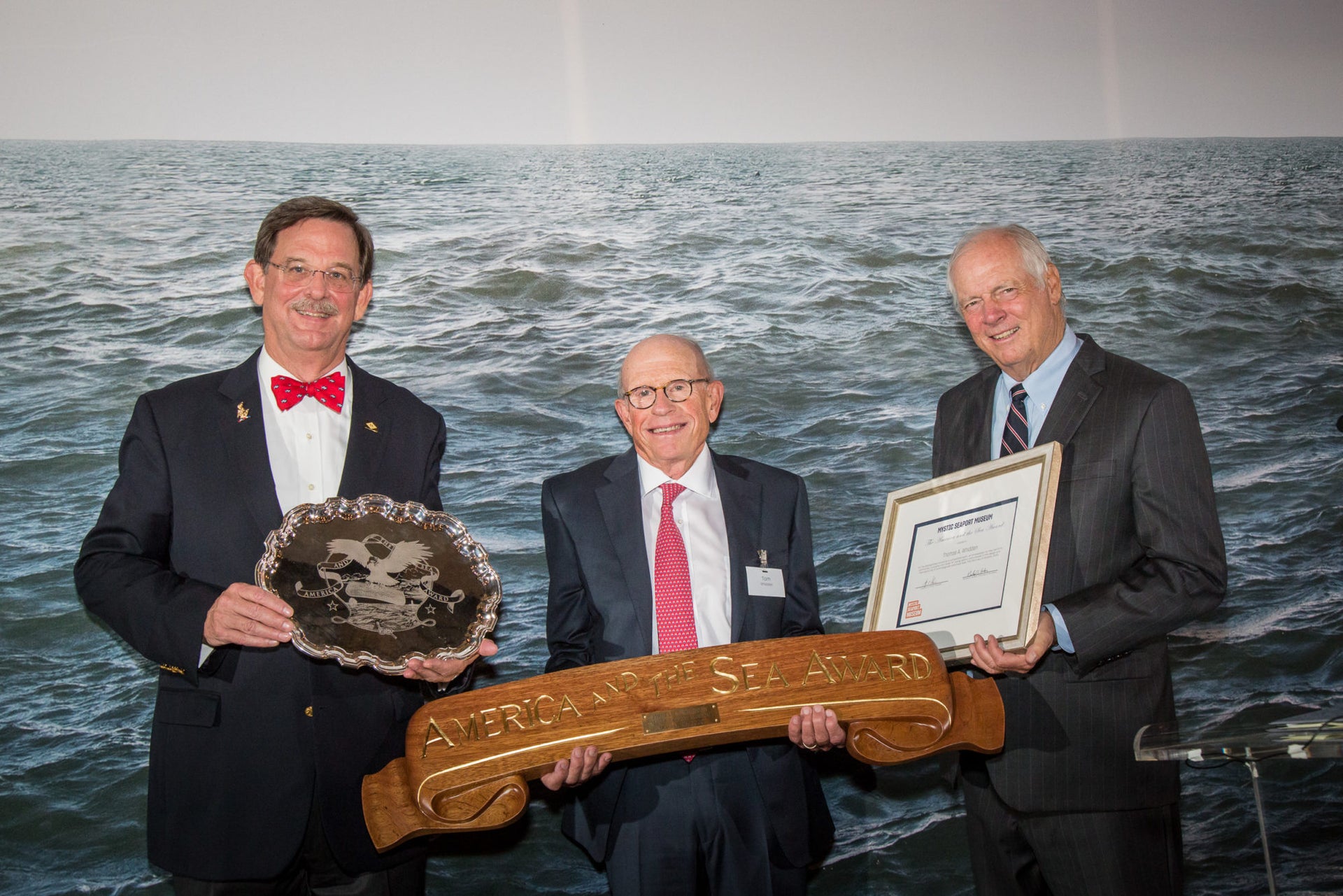
news
MYSTIC SEAPORT MUSEUM HONORS TOM WHIDDEN
TOM WHIDDEN RECEIVES AMERICA AND THE SEA AWARD
An Industry Leader, Tom has logged Extraordinary Achievements in Maritime Exploration, Competition, Scholarship, and Design which Best Exemplify the American character.
Mystic Seaport Museum honored Thomas A. Whidden, President and CEO of North Technology Group, 2004 inductee into America’s Cup Hall of Fame and 2017 inductee into the National Sailing Hall of Fame, with the 2020 America and the Sea Award. The prestigious award recognizes those individuals and organizations whose extraordinary achievements in maritime exploration, competition, scholarship, and design best exemplify the American character. The award was presented at a virtual gala fundraiser on Friday, October 23, 2020. Fellow Hall of Fame Sailor and 8th America and the Sea Award Recipient Gary Jobson presented the award to Whidden at a small socially-distanced gathering of Whidden’s family and friends in the River Room of Latitude 41° Restaurant in Mystic, Connecticut, from where the event was live-streamed. Jobson shared a brief history of the America’s Cup, followed by the award presentation, commenting that Whidden has contributed two essential things to the sport of sailing:” As an industry leader, he has made sailing more efficient, with better sails that last longer and go faster…and he’s been outstanding on the racecourse.”
Tom Whidden, who grew up in Connecticut and learned to sail on Long Island Sound, has had an extraordinary career both on and off the water as an accomplished tactician for Dennis Conner in eight America’s Cup campaigns, winning three, and as a revolutionary sailmaker, bringing sailmaking from the manufacturing of paneled sails in a vast network of sail lofts to the current centrally managed, technologically driven, manufacturing system. Thanks to Whidden’s remarkable vision, North Sails has become a leader in the industry, with every America’s Cup winner and every Volvo Ocean Race winner choosing to race with North Sails since 1992 and 1993, respectively. Mystic Seaport Museum President Steve White said, “Tom is a perfect fit for this award. Not only does he have a distinguished record as a competitive sailor, but he has also served as an important ambassador for the sport and the maritime community. For young sailors across the country and beyond, he has been a positive role model and mentor.”
In his wonderfully modest, graceful demeanor, Whidden remarked on receiving the award, “What a wonderful honor it is to be this year’s Mystic Seaport Museum America and the Sea Award recipient. I join an amazing group of previous recipients who have made incredible contributions in so many different aspects of maritime, sailing, and ocean life. I have spent my life racing sailboats and making products that make those boats perform their best. For me to be recognized alongside other abundantly accomplished previous honorees, for doing what I most love, by the most prominent maritime Museum in the United States, is a dream come true.”
The virtual event was joined by friends and supporters from Nantucket to New York to Florida to Los Angeles, and Whidden was congratulated from around the world with remarks from Jimmy Buffett; NYYC’s American Magic Skipper Terry Hutchinson in New Zealand; Sir Lindsay Owens-Jones, L’Oréal Honorary Chairman and owner of Magic Carpet 3; Peter Dubens, Managing Partner of Oakley Capital and Chairman of North Sails Technology; Christopher J. Culver, Vice Commodore, NYYC; and Jes Staley, CEO, Barclays. The virtual event generated $520,284 through sponsorships, single tickets, live and silent auctions, and a virtual paddle raise appeal. The Museum would like to express a sincere thank you to the gala committee, Board of Trustees, and the myriad supporters who gave in honor of Tom Whidden and to further the mission of Mystic Seaport Museum.
Past recipients of the America and the Sea Award include American businesswoman and philanthropist Wendy Schmidt; groundbreaking America’s Cup sailor Dawn Riley, philanthropist, and environmentalist David Rockefeller, Jr.; boat designers Rod and Bob Johnstone and their company J/Boats; author and historian Nathaniel Philbrick; maritime industrialist Charles A. Robertson; Hall of Fame sailor and author Gary Jobson; WoodenBoat Publications founder Jon Wilson; former Secretary of the Navy John Lehman; oceanographer and explorer Sylvia Earle; America’s Cup sailor William Koch; President and CEO of Crowley Maritime Corporation, Thomas Crowley; historian David McCullough; and legendary yacht designer Olin J. Stephens, II.
READ MORE
READ MORE
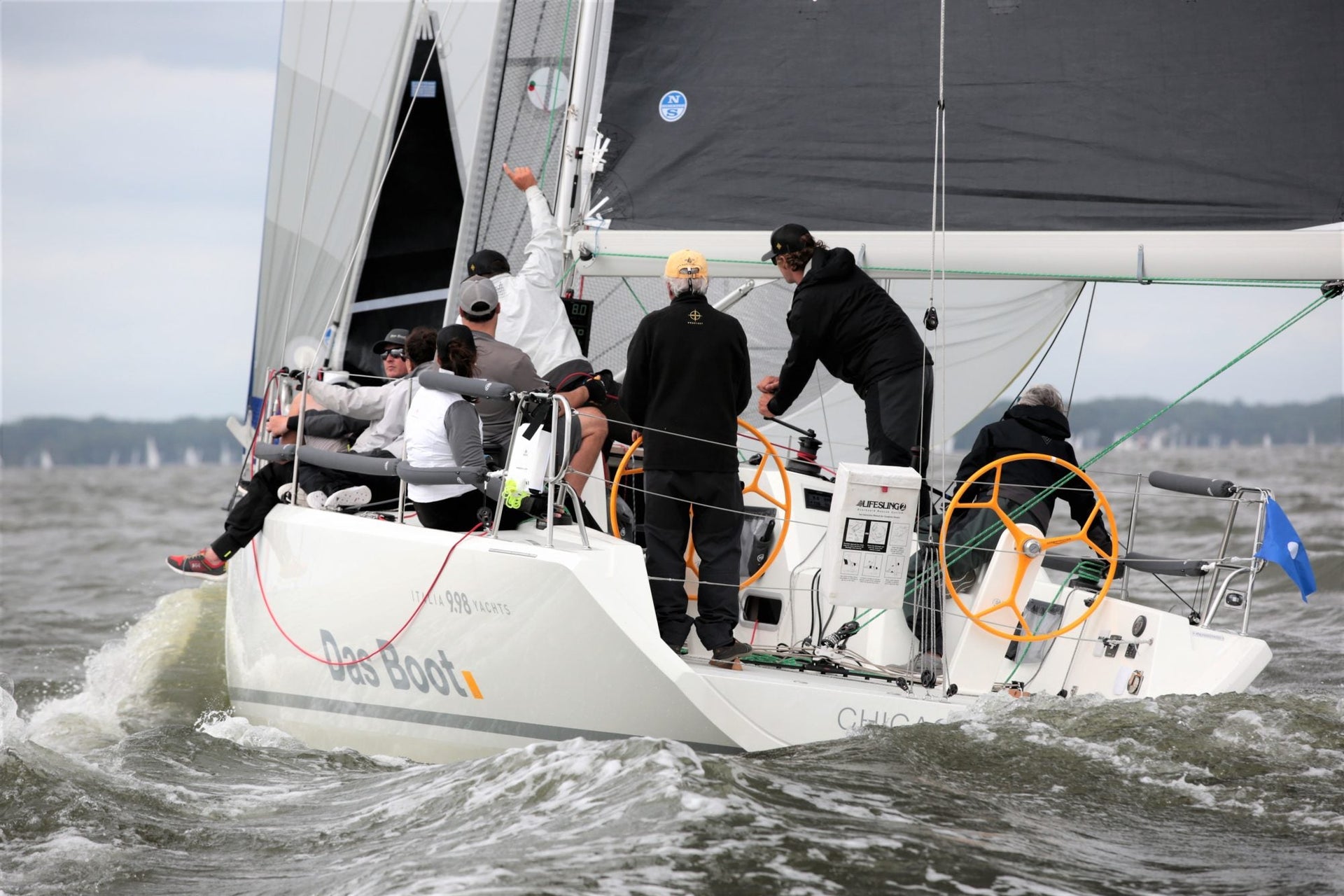
news
NORTH SAILS GLOBAL NETWORK POWERS FAMILY TEAM
NORTH SAILS GLOBAL NETWORK POWERS FAMILY TEAM
Class Experts + Designers From All over the World Aid Success of Annapolis Local Racing Team
North Sails expert Allan Terhune has loads of experience tuning up one design keelboats, but he didn’t have any idea what would make an Italia 9.98 go fast when his in-laws first bought one of the 34-foot racer-cruisers. So he reached out to the incredible global network of North knowledge and asked his colleagues across the pond for help. The result was three wins at the first four regattas Das Boot sailed, in the very competitive Annapolis ORC fleet.
“North sail designer Henrik Søderlund in Denmark had already designed a bunch of sails for these boats,” Terhune explains, adding that the five year old design has won the ORC Worlds a few times. “Rich Bowen and I were able to get a lot of good stuff right away, like the sails chart and polar numbers and tuning. If we’d started from scratch, it would’ve been six months of development.”
Getting a less well-known boat up to speed was a fresh challenge. “There’s only two or three Italia 9.98s in the US right now, but we got sails that fit right from the get-go—because we have this global network, and the Europeans have done a lot more learning than we have. ”
Das Boot’s very first regatta was the Leukemia Cup, a pursuit race—which they won with a family-based crew of seven. They also won an around-the-buoys regatta, and even after breaking a halyard in regatta #3, they came back to finish fifth overall. In early October, the boat won Annapolis Yacht Club’s 24-Hour Doublehanded Race, which Terhune sailed with his wife Cate.
The boat’s versatile inventory starts with a 3Di ENDURANCE 760 mainsail that handles both racing and cruising. Racing headsails include a medium-light and medium-heavy jib (both 3Di RAW 780), a paneled storm jib, and a Helix Code Zero—which Terhune says is the most important sail of all. “They really nailed the sizing. Other Code Zeros are just too big, but we have sailed tighter angles with this one, which is really nice.”
Downwind, there’s a choice of three spinnakers—symmetrical, A1.5, and A3—and Terhune and Cate used all of them to win the light-air 24 Hour Doublehanded. “We did so many sail changes, it was ridiculous. And a lot of fun too.”
Another place Terhune says the North Sails global network really helped was suggestions for modifying the deck layout—an important piece of winning (and enjoying) shorthanded races. “Obviously the guys in Europe combined their experience with the US design in making sure everything was right; the right sails, the right tuning, and all the stuff we needed to win. We couldn’t have done it without all the advice we got from class experts within the North network.”
READ MORE
READ MORE
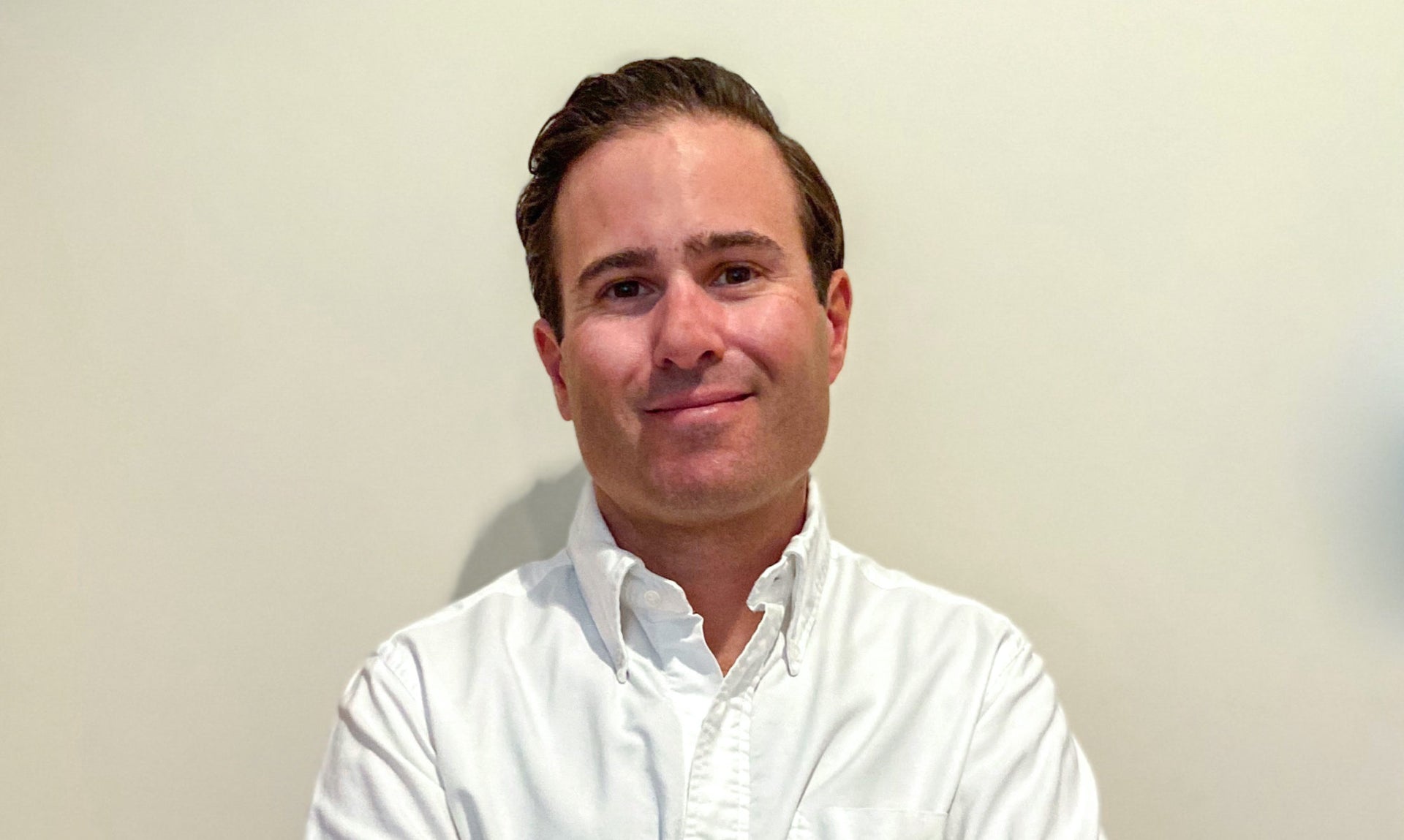
news
JEFFREY BONANNI JOINS THE NORTH SAILS TEAM
JEFFREY BONANNI JOINS NORTH SAILS
Bringing Extensive Experience to the Class as an E Scow One Design Sales Representative
Bonanni is a five-time National and North American Champion, including the 2015 E Scow Nationals, and brings extensive experience in the E Scow class as the North Sails one design representative. An active racer in the New Jersey area, Bonanni also serves on the National Class E Scow Associations Board of Directors and as the Commodore of the Eastern Class E Scow Association. He is one of a small handful of helmsmen to have won all six National Championship trophy races.
Bonanni has been an integral part of the leadership team propelling the E Scow class forward and now brings that passion to the North Sails class support.
“I’m thrilled to be joining North Sails and excited to help the E scow fleet raise the bar competitively.” Says Bonanni, “I look forward to engaging sailors both new and old to the class, and hope to be viewed as a resource to all.”
Bonanni is most proud of leading two yacht clubs to win the Torch Lake Team Trophy for best-combined scores for a club at the National Championship, fostering an atmosphere of information sharing, inclusion, and fleet building. In his new role at North Sails, Bonanni will facilitate communication and innovation within the E Scow Class, forging stronger partnerships and support for E Scow sailors.
“Jeff fits in well at North Sails; his dedication to one-design sailing is evident through his continued work fleet building and sharing information.” Says Tim Healy, President of North Sails One Design, “He is always helping someone, trying something new to make the fleet faster, and sharing his expert knowledge of the boat. Jeff realizes that this sport is more fun when information is shared, and the overall level of competition is raised.”
Bonanni is a resident of Little Silver, New Jersey, and a graduate of Boston College, where he was an ICSA All American Skipper.
North is the only sailmaker for winning Scow sails that have dominated the circuit for decades. Designs like the MC Scow Z-MAX, the E Scow AP Main and LM/MH Jibs, the C Scow I-1 Gold, the A Scow designs that command the circuit scoreboards, the XBoat Powerzone main and RAD Blue jib, among other designs for the M-16 Scow, M-20 Scow, Inland-20 Scow and more.
Contact Jeff E Scow Sails E Scow Tuning Guide Find Your Scow
READ MORE
READ MORE
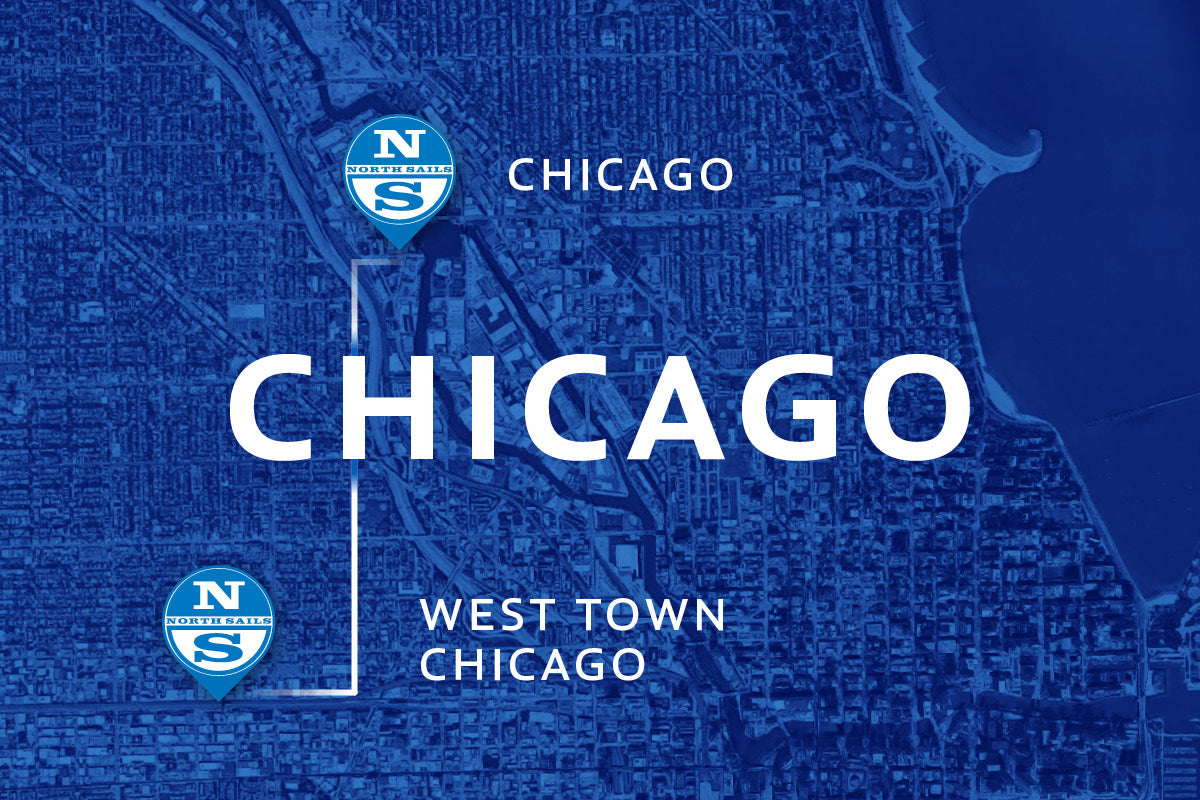
news
NORTH SAILS STRENGTHENS GREAT LAKES PRESENCE
NORTH SAILS STRENGTHENS GREAT LAKES PRESENCE
John Baxter + Christina Donnermeyer the Join North Sails Team in Chicago
North Sails is pleased to announce that John Baxter and Christina Donnermeyer have joined the Chicago loft team. Baxter, the former owner of Doyle Midwest, brings over three decades of sailmaking industry experience and consolidates a wealth of expertise and personnel under the North Sails banner. He will work closely with North veterans Perry Lewis, Keith Church, and Tom Pease to deliver world-class customer support and products to sailors in the Midwest region and beyond.
Bringing Baxter in the North Sails family is a strategic move for North Sails to expand their presence in the Great Lakes. A quintessential sales expert, Baxter prides himself on combining an in-depth understanding of the latest technology with a deep appreciation for individualized customer service. With North Sails, he now has the ability to tap into the brand’s patented in-house software programs and the full spectrum of world-leading products to ensure local customers get the most out of their sailing experience.
Commenting on the merger, longtime North expert Perry Lewis said: “Well-known and respected amongst clients and competitors, Baxter is a true industry professional. He is a valuable addition to our Midwest team. We’re all looking forward to having his local knowledge and experience to offer our clients, as well as his industry insights to help us strengthen our local support.”
Baxter has sailed in some of the world’s most prestigious races including the Montego Bay Race, two Rolex Sydney Hobart Races, multiple SORCs, Key West Race Week, RORCs Admiral Cup, St Barths Bucket, and much more. He has 35 Chicago Mac and 20 Port Huron Race races under his belt. His wide knowledge of multiple classes, make him a valuable addition to the North Sails Chicago team.
Baxter is now integrated into and supported by the global network of 110 North Sails sales and service lofts. Commenting on joining the team: “Perry Lewis and Tom Pease have been with North Sails forever and I’m privileged to be affiliated with the North Sails family. Technology and sailing are moving forward at a very rapid pace and North Sails will allow me to provide all of my customers with a level up in service and sails.”
Commenting on this next chapter, Baxter shared: “I come from a sailing family and I am proud to now be a part of North Sails! I am most excited about working with a great group of people. It’s a lot more impressive than I ever imagined.”
Baxter will continue to be supported by his long-time office manager Christina Donnermeyer who will also be joining North Sails. Her experience in customer service, running a sail loft, and regatta services will be invaluable to the local team.
North Sails will have two locations operational in Chicago through the end of 2020. Customers can drop sails off at Baxter’s current location or the current North Sails Chicago location at 1665 N. Elston Ave.
The expanded North Sails team in Chicago is ready to assist you with all your sail care needs. To learn more about the North Sails Chicago team and loft, please contact us at 773-489-1308.
READ MORE
READ MORE
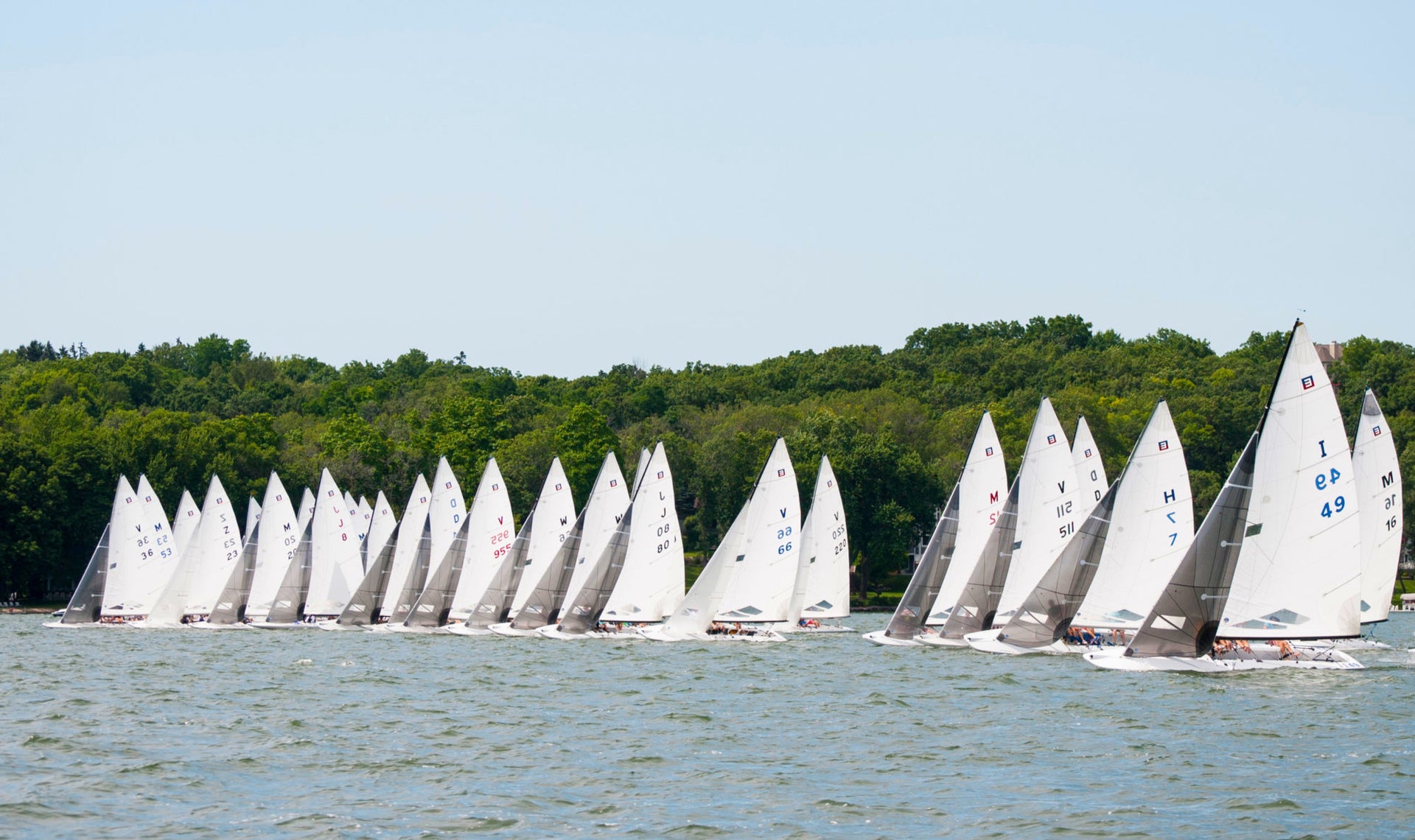
news
NORTH SAILS CONTINUES THEIR SUPPORT OF SCOW ONE DESIGN CLASSES
NORTH SAILS CONTINUES THEIR SUPPORT OF SCOW ONE DESIGN CLASSES
Providing Users with Championship-Winning Sails that have Dominated Scow Classes for Decades
📸 Hannah Lee Noll
As you may know, North Sails and Melges Boatworks (North Sails Zenda) have worked in conjunction in the past to provide sails and service to the Scow fleets across the U.S. We are writing to let you know that while Melges Boatworks has decided to change tacks and represent a different sail brand, we remain committed to providing top level performance to our Scow customers. North Sails views this as an opportunity to raise the bar in terms of our service, accessibility, and commitment to the Scow Fleets. North Sails owns all of the current winning designs you have become accustomed to.
We have been manufacturing and designing championship winning scow sails for over forty years and look forward to doing so for forty more. The North Sails One Design team has a long tradition of serving one design fleets all over the country and we look forward to working with you! Our network of local one design experts and dealers are available to help you get the most out of your sails so you can reach your goals whether it is an informal evening race, or the Class Championship.
We will continue to develop and sell the North Scow sail models that you have been using to win all the major Scow Championships, the same sails that you have learned to trim and tune. The sails with the quality and consistency that you expect from a North Sails product. As always, North Sails stands behind our products and we take pride in developing and delivering the fastest sails available.
Please feel free to reach out to us or anyone on the North team if you have any questions. We are excited to open up the entire North Sails team to work with you directly on your scow program.
Our team is looking forward to seeing you on the water soon.
A Scow C Scow E Scow MC Scow X Boat
READ MORE
READ MORE

news
TRUSTING IN NORTH
TRUSTING IN NORTH
3Di Powered Vento Solare is Making the Most of Their Summer Sailing
Bill Kneller is passionate about getting on the water. For the past 17 years, he has been working hard to optimize his sailing programs and working closely with his sail experts and designers at North Sails in Portsmouth, RI to make sure he’s got the right sails for the job and the right set up to help him achieve his sailing goals. 3Di has played a role in his local sailing success onboard his J/109, providing him with a competitive sail plan, which has helped his team of sailing friends perform at their full potential. From weeknight PHRF racing on Narragansett Bay to weekend regattas in the New England area, Vento Solare is a familiar face on the race course, battling in the top of the fleet in all conditions she’s up against.
We caught up with Bill and the team at the dock just after they finished the (Jamestown) Around the Island Race, hosted by Conanicut Yacht Club, to find out what this program is all about. Vento Solare took 17th out of 78 in one of the largest and competitive PHRF events in Newport, RI. He introduced us to his team, explained what positions they fill on the boat, and how they’ve built a great relationship with their skipper and friend –which is what this program is all about. Hear more about Bill’s corinthian team, Vento Solare, why he loves sailing, and how his local North Sails network has been supporting his programs over the years, helping him reach his goals and be successful on the water doing what he loves most.
From us at North Sails, we want to wish Bill and the team the best of luck in the remainder of the 2020 season!
READ MORE
READ MORE
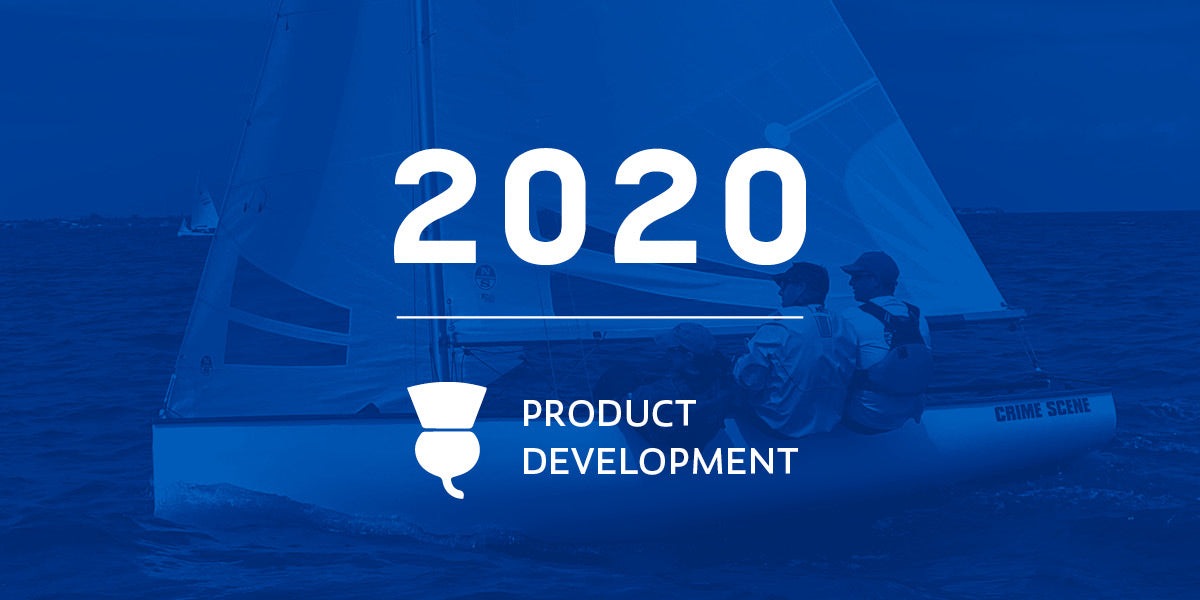
news
INTRODUCING THE NEW THISTLE DSD+ MAINSAIL
INTRODUCING THE NEW THISTLE DSD+ MAINSAIL
Smoother Sail Plan & More Power Across The Conditions
As the leading sailmaker in the Thistle class, we are proud to introduce a new mainsail to the North Sails Thistle inventory. Class leaders Paul Abdullah, Mike Ingham, and North Sail Designer Mike Marshall have been working hard to make your Thistle sailing even better than before.
The DSD+ mainsail is built out of Dimension/Polyant 165SQ that proves to be very durable, while the finish keeps the leech nice and straight through all conditions. With a radial lower section, the lower leech stays static as the mast bend is adjusted to match the conditions, providing the user with a smoother, flatter sail plan, with less overbend wrinkles. Incorporating a slight luff curve the sail shape is induced, transferring the power down low, opening the leech.
The new DSD+ Mainsail is another step forward in North Sails goal to make the fastest sails possible. This new mainsail is very popular with inland lake sailors who see more flatter water conditions, though it has seen great success and proven its reliability in open water conditions as well. Standard features include battens, sail numbers, class royalties, insignia, vision window, sail bag, and an optional set of battens.
Have questions? We are here to help. Customer service and education on our products is even more important than ever before. Learn more about North Sails new Thistle mainsail and how to achieve maximum power throughout a range of conditions. Watch our webinar, featuring Class experts Paul Abdullah, Mike Ingham, and North Sail Designer Mike Marshall to get the full download on our newest addition to the North Sails Thistle inventory, the DSD+ Mainsail.
Shop Sails Contact Your Expert
READ MORE
READ MORE
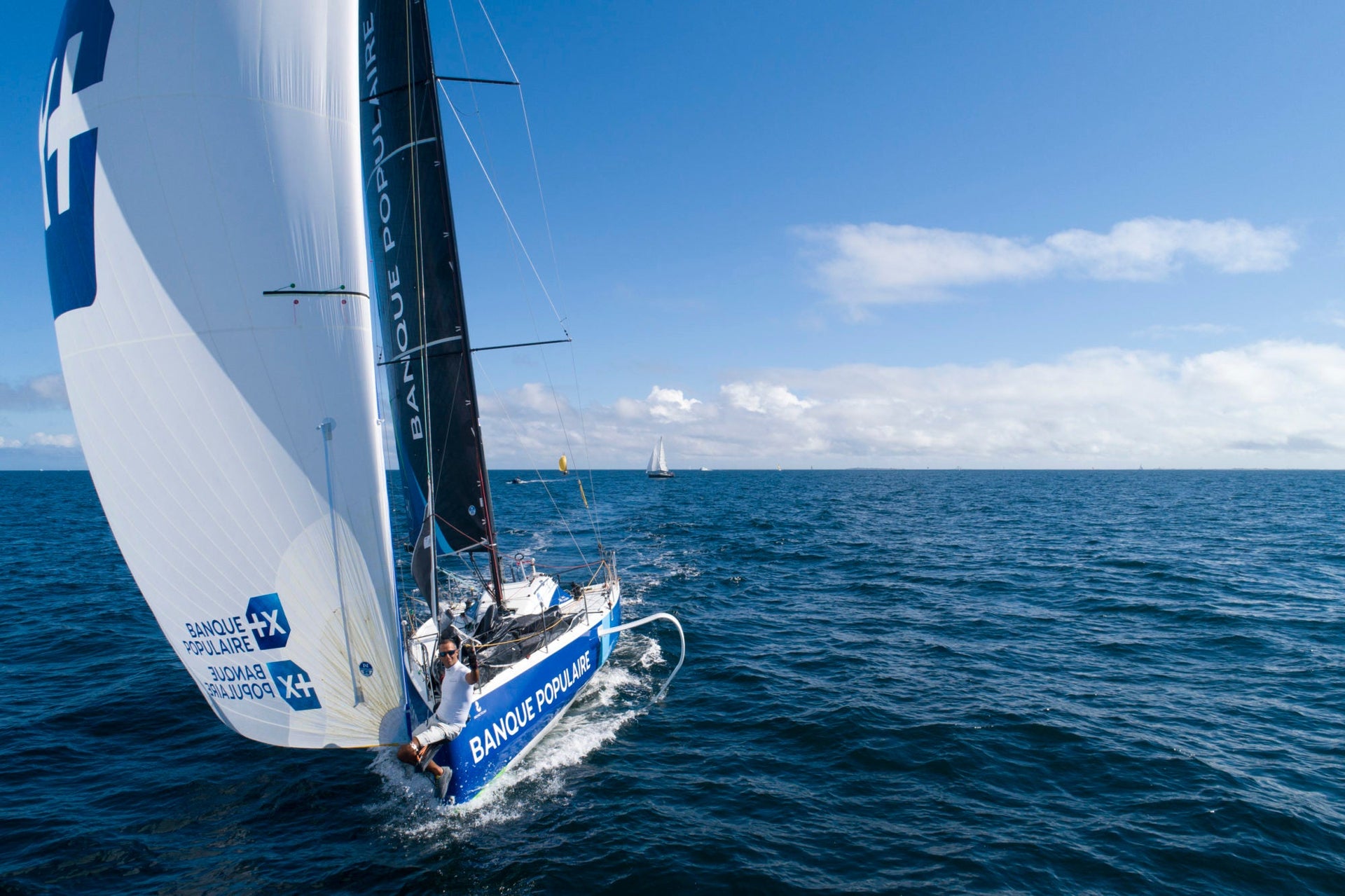
news
THE STORY BEHIND THE SAILS
THE STORY BEHIND THE SAILS
The Solitaire du Figaro is an unrivaled ocean race and demanding on the sailors who participate. It requires grit and teamwork to make it to the start line.
📸 Alexis Courcoux
The Solitaire du Figaro is an unrivaled challenge in ocean racing. Whether it is the craft on which the sailors’ race – the Figaro Beneteau 3 hydrofoil -, the format of the race over four short legs, the frantic pace where the management of sleep and mind is required, the demanding course with complicated conditions or the heterogeneous profile of Figaro sailors who compete on an equal footing. This unique competition is the meeting ground for renowned sailors who come to test their abilities with young, sometimes up and coming sailors who aspire to enter the big league, in search of a springboard to a career in ocean racing.
At North Sails, Quentin Ponroy, sail designer, and Gaétan Aunette, technical salesman, are responsible for Figaro projects. They take stock of the race and work with the skippers to bring their project to fruition.
Why is the Figaro Class Championship attracting so much interest? And why is the Solitaire du Figaro an unrivaled ocean race?
The Figaro Class is the only one-design single-handed ocean racing yacht with an accessible format and affordable budgets for racers and partners. The championship includes a renowned flagship race, the Solitaire du Figaro, and brings together both young and experienced sailors who regularly compete against each other. It’s a great mix of talent at a high level.
The Figaro Class is a competitive platform where sportsmen and women want to assess their level in ocean racing, and sometimes the reality can be severe or not. If we can compare it with another sport, soccer, it would be a bit like the Champions League of ocean racing where the best, as well as the enlightened amateurs, have gone through it. For us, it’s great work in terms of project development with our customers.
What is the profile of a Figaro sailor in the way he or she sails and trims?
There are as many profiles as there are Figaro sailors. Each one has their own history with divergent backgrounds (Olympic, FFV, cruising…), their style of tuning, and driving their boat. They are also part of different training centers. And so we need to have a strong capacity to listen and then to meet the needs of each one, to design the best sails, to adapt to both their unique style and the one-design support. Some racers want sails that are identical to the others and will try to stand out in other aspects such as strategy. Others are looking for the best possible sail to make the difference in speed and are willing to spend time with us to develop their sail set and achieve the desired result. In general, they are very receptive to our advice. In any case, it’s all about the details, because the level is very high.
How do you design a set of sails in the Figaro Class?
In 2019, the first year of the Figaro 3, most of our work was based on studies carried out from and around the boat’s build plans (design process identical to IMOCA boats, etc.). This year and for the years to come, we are modifying and optimizing this base thanks to prototypes (1 to 2 per year and per sail) designed based on feedback from the skippers and all the tests we do with them (design process identical to the one-design series). The precision and the level of requirement of the skippers in this class are unique for an offshore series. The set of sails being almost the only non-one-design parameter in this series, the racers necessarily devote a lot of time and attention to it. Together, we manage to get detailed work. In IMOCA and Class40, for example, the skippers have to take into account several non-one design parameters (boat design, foil, electronics…) and therefore have proportionally less time for the sails.
The three main stages of Figaro design include the drawing of the 3D mold of the sail, the adapted design of the structure (3Di being a real strength because of its dynamic shape retention, reliability, and longevity; our competitors use for the most part more classical membranes), and meticulous manufacturing in the detail of the sail (the stiffness of the battens, the halyard ring offset, the reefing system… are studied with precision).
What changes have been made to the sail plan in the Figaro class since the previous edition?
We are only in the second year of the evolution of the Figaro 3, but almost all aspects have been reworked. The main trends on the flat sails are the weight saving in the structure, the volumes that have advanced in the Genoas, and the introduction of load-sharing Helix structured luff technology in the Gennaker among others. The rest is confidential.
What learning comes from the sails of Figaro?
The boat performs well upwind. Moreover, with the arrival of the Gennaker, the main and J2 sails are real sails specifically designed for VMG upwind sailing.
Can the work done on the Figaro be applied and highlighted for other classes, particularly in IRC and club regattas?
Absolutely, because the latest IRC boats such as JPK or SunFast have similarities with the Figaro 3. Moreover, the use of reduced crew in IRC is more and more present and is getting closer to that of the Figaro. For these two reasons, the work done in Figaro 3 is largely transposed to IRC.
What is your relationship with the skippers?
Sometimes we exchange via SMS late at night… We obviously have a relationship of trust, listening, and exchange. It’s important to understand their needs. They are the ones who, through their feedback, make the sails evolve. Our job is to transcribe their feedback on our North Design Suite software.
How do you arrive at the ideal inventory for a skipper?
We exchange a lot beforehand through different modes of communication and gather all the information concerning the type of materials, the shape of the sails, the gauge, the tests, the service on the regattas, the training sessions for test sails, the estimate, the delivery, etc.
As far as the choice of sails is concerned, the skippers base their choice on several parameters such as the feeling with the sail (feeling and performance), the risk-taking (who among the other competitors uses this same sail? Am I the only one or do several racers have the same one?). Finally, there are the effects trends in this race. Each racer is free to ask us to customize his inventory around a standard model per sail.
Can you name the sails and their function in the Figaro class?
Mainsail | J3 front breeze sail | J2 light and medium close-hauled sail | Helix GK multi-purpose reaching sail | A5 spinnaker for strong wind | A2 spinnaker max for VMG down | TMT safety sails
How do you assist the sailors to make the most of their sails specially designed for this race?
We spend time explaining how the sail is designed, its shape, and potential. And we follow up on the training sessions, we ask them for their technical feedback on each sail according to the sensations, speed, ease, versatility, trimming, the stability of the sails under pilot, etc. Then, we proceed with the development of the sail to improve all the points mentioned above.
What evolutions can still be made on the Figaro class sails?
The shapes and structures will always evolve, to a lesser extent, sometimes with some backtracking, but the evolution will be continuous. We will still be able to save weight, improve the shapes… We already have a lot of ideas for this winter. We also need to have the right timing in our evolutions and our tests on the sails in order to anticipate and be reactive.
READ MORE
READ MORE
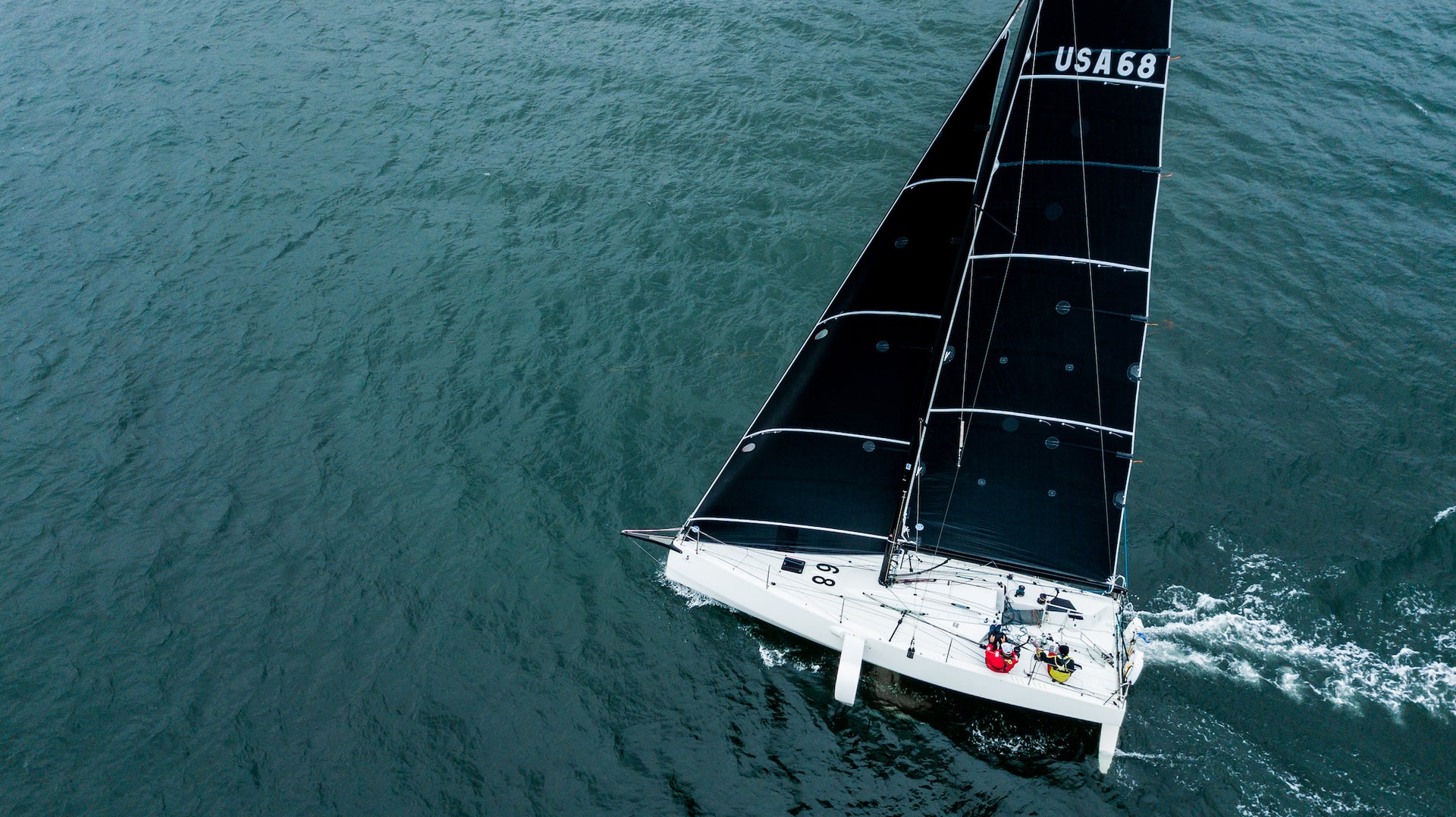
news
BECOMING A DOUBLEHANDED TEAM
STATE STREET MARATHON SAILING IS BECOMING A TEAM
Gearing Up and Building their Doublehanded Campaign for Paris 2024
By the time most people are making their morning coffee, Jesse Fielding and Francesca Clapcich have logged a 20-mile bike ride with their team. Getting to their goals includes a training regimen on par with any other athlete training for the 2024 Paris games. If they aren’t on their bikes in the morning, they are in the gym where, in addition to workouts, they practice mobility to keep them limber on deck during sail changes and maneuvers.
After they’ve logged their workout, rehydrated, and caffeinated, the pair head to their newly set-up training complex. A space on the Newport, Rhode Island waterfront where a trailer and large industrial building houses various equipment and parts, and a commercial tent is the base for the athletes.
On this particular morning, Clapcich is dealing with an unresponsive wifi router while Fielding runs errands in preparation for the weekend’s Ida Lewis Distance Race. Before lunch, the pair will take a look at weather routing and work with their training partners to devise the best course for the weekend’s racing.
Being an offshore sailor, especially one with Olympic aspirations, means being a multi-faceted competitor. If the team isn’t working out or sailing, they are making sure their sails and equipment are in top shape, studying the conditions, and working on their team dynamic.
“It takes a complete sailor to exist in the doublehanded discipline, right?” Says Fielding, “ And so it’s a big bucket to fill, and you are filling it with all the different little cups of knowledge you can from all the different sectors of the sport as a whole, whether it’s fitness or mechanics of the boat or sailing speed and smarts, et cetera, performance, et cetera. That being said, you can never fill that bucket alone. I really want to highlight the fact that this discipline, specifically in offshore sailing, requires a co-skipper. And that is co and equal in the complete sense of the word. And I think that is an incredible opportunity to showcase the better part of society, which would be a truly equal world, not only between genders but people as a whole.”
There is a certain buzz around the base, the Ida Lewis Distance Race boasts steep competition for the team, high winds, and challenging weather. It will give the team a chance to test their grit and their trust in each other as teammates when no one else is around.
Each session on the water is a chance for Fielding and Clapcich to prepare for whatever Paris 2024 could throw at them. Variety in training is important for the group, to the point where the program invites any seasoned sailors to come down to their base and train against them. It’s an open invitation to grow the discipline and get the best training possible against those who think they have what it takes.
By mid-afternoon, the two Beneteau Figaro 3s are pushing off the dock. There’s a light breeze on Narragansett Bay, nothing compared to what is expected for the weekend’s competition. Instead of an afternoon of sparring with their training counterparts, the goal for this afternoon is to hoist each sail in the team’s inventory and check all of the lines and reef points.
The Figaros are outfitted with North Sails 3Di RAW, sails specifically built for this kind of racing. The durability of 3Di is peace of mind for the team. The sails have been tested for days of racing in the toughest conditions and can withstand heavy loads for extended periods of time.
“It takes a complete sailor to exist in the doublehanded discipline, right? It’s a big bucket to fill, and you are filling it with all the different little cups of knowledge you can from all the different sectors of the sport as a whole”
As Clapcich and Fielding work through their pre-racing checklist, the teammates chatter idly about anything, including what they have been watching on Netflix this week. Their ease with each other is evidence of their commitment to the program’s success.
“We’re a great check and balance on each other.” Says Fielding. “We’re doing this together. We are leaning on each other’s skillsets, and I just think that that’s been a really pleasant part of the experience.”
The idea for the State Street Marathon Sailing platform came from Malcolm Gefter, the team manager.
“It’s always bothered me that in spite of how big the country is and how many sailors there are, the US performance in the games has been less than proportional to its ability based on size and talent. Creativity and innovation is integral. So faced with a new problem, the US should be pretty damn good at getting the answer. Since this is a double hand offshore program that’s new, right?”
He continues with how he recruited Fielding and Clapcich.
“In any other class, when you’re doing any other sailing, you say, ‘Well, who are the best Opti sailors? Who are the best 420 sailors? Who are the best college sailors?’ And it becomes obvious who the best sailors are. We were forced by virtue of the circumstances to say, ‘pick some team or a small number of people that you already know by their reputation are good sailors at the level that is necessary to even think about competitive level.’ Make them the reference standard, and then have everybody come and compare themselves to the reference standard that you use one by one by one rather than supporting a large base.”
When Fielding received the call, he was all in.
“To hear of an opportunity with such foresight and strength behind it and a plan and a place for me in that program, it was a great moment in my sailing timeline and personal timeline. And to have that program be here in Newport, in a startup phase, and get to join that program from early stages. It’s just an amazing opportunity.”
Fielding, who has career ties to North Sails, found offshore sailing through showing up on the dock, and got his break after his application was accepted to sail with the Morning Light program.
“I was passionate about offshore sailing. And I was lucky to have a resume that allowed me to join larger boat teams and go and learn from older sailors that have so much to give. So I still think there’s a huge knowledge transfer dynamic that happens from older sailors that pass down offshore sailing knowledge and experience, and you sort of get that in the situation. You have to be out there with those people to hear the story, see the example in action, and then learn.”
For Clapcich, the opportunity is equally as huge. As a two-time Olympian for Italy (she has since immigrated to the U.S.) and Volvo Ocean Race veteran, she is taking her leadership position at State Street in stride.
“Especially for women in the sport, it’s really hard to get opportunities. I feel more confident. The more you get older and the more you get to experience, it’s good to take on some leadership. And I feel that I’m in that stage of life, personally.” Clapcich continues, “The responsibility is high. You’re in charge of so many things. I want to be a good example where a woman in this sport can actually be in the leadership role.”
The program has a long way to go before 2024, but Fielding and Clapcich are ready to face the competition, they aren’t intimidated.
Francesca speaks up, “everyone is using the French teams as a benchmark, but of course. They sail a lot. They sail a lot offshore, and they sail solo, and they sail doublehanded. They are not unbeatable, the level is very close all around the world. And one little mistake can take you out of the running for the medal.”
After the Ida Lewis Distance Race, Fielding and Clapcich are 180 miles closer to Olympic competition.
READ MORE
READ MORE
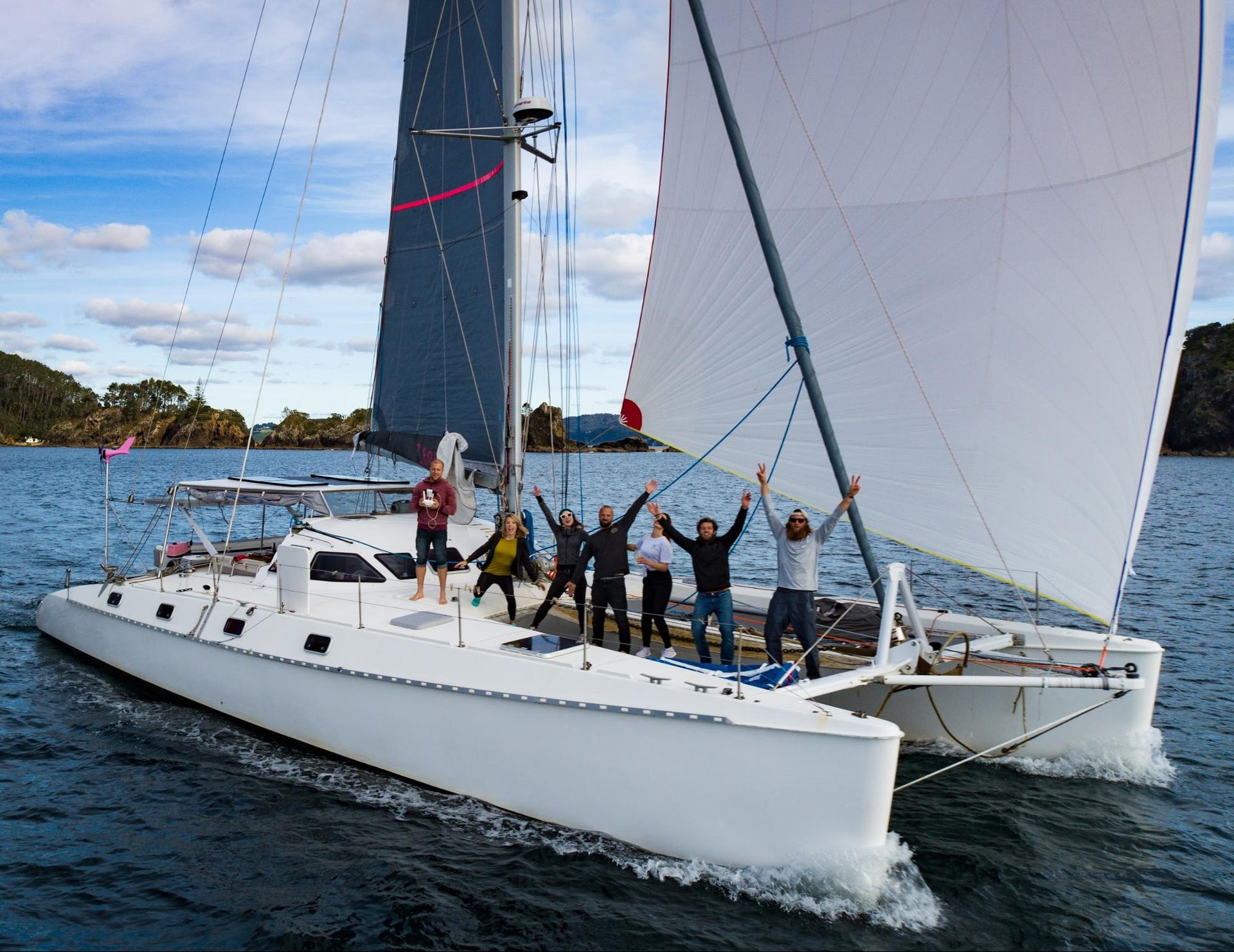
news
FIRST HOIST ON ZEPHYR
FIRST HOIST ON ZEPHYR
A New Kite Makes All The Difference
Zephyr is an Outremer 55, equipped with a 3Di ENDURANCE square top mainsail, which currently has 7,000 miles on it. She also sports a 3Di OCEAN genoa, and has recently acquired a brand new NPC Downwind masthead asymmetric. Boat owner and captain, Eric Laakman, has worked closely with sail expert Matt Steven in Auckland, New Zealand and San Francisco sail expert Seadon Wijsen to optimize Zephry’s sail plan. He credits both for top notch service and expertise to get him ready to take on offshore distance sailing.
After three months of lying in wait in the sail locker, Zephyr hoisted their brand new, massive 211 sq meter North asymmetric spinnaker for the first time, and were in awe from the moment the kite was made. Eric was eager to see the new kite in action and was beyond satisfied with what he saw after their first hoist.
Winter sailing in New Zealand is on the windy side, which means there’s no real need for light air sails. Every now and then, you’ll get an odd light air day, but even so, conditions rapidly change which in most cases means hoisting your kite is not necessarily the most prudent decision, especially when you’re on the water shorthanded. “For me,” says Eric, “Patience is key, as quick maneuvers while shorthanded are not always easy to pull off.”
“The day of Zephyr’s first hoist, we had the perfect conditions on the Bay of Islands, especially for winter. With 10-12 knots, the breeze was strong enough to keep blowing us back to where we started. Never mind that most on board were a few cocktails deep into the afternoon!”
Since Eric has owned the boat, he’s seen his fair share of spinnakers on the foredeck. “Typically they’d fall into two categories,” he said. “Either they were too small and had a narrow range or they were useful verses simply using the working sails. We’ve also tried used sails before, but they were never quite the right fit for the boat.” Multihulls are made for fast off-wind sailing and Eric appreciates the importance of having the right sails to get the job done. “If you really want to go fast downwind in light conditions on a catamaran that can pull the wind forward, you want your spinnaker to fit just right.”
“Before the sail was cut,” Eric said,” I had a chance to sit down with North sail designers and experts in Auckland, New Zealand. It was great to know exactly what I would be getting, as well as discuss my options for the design. While 1.5 oz nylon was used in the panels that would typically see higher loads, we decided to go with a lighter material, 0.75 oz, for the remaining panels. The goal of this sail was to get Zephyr moving in the lightest of downwind conditions, and the weight savings on the sail would give it a few knots of extra range at the low end. I chose the color white, not just for the classy aesthetics, but also for the best durability given that some of the panels were lighter cloth weight.”
Low and behold, the first launch out of the sock went surprisingly smooth. Without really doing much adjusting or trimming, we immediately hit 8 knots. I set the autopilot to hold a constant angle to the wind at 110 AWA. In 12 knots of true wind, our true sailing angle was 150 degrees –meaning we were pulling the wind forward by a full 40 degrees. I’m used to this on a beam reach with a code zero, but not while using an asymmetric spinnaker. Our VMG downwind was nearly 60% of the TWS. It was unreal! I’m looking forward to experimenting by floating the tack line to get a little more fullness from the luff and more rotation. By doing this, we’ll get even more power out of the sail in the lighter conditions.
“As we awed in the size of the new kite, we mixed up another batch of Dark and Stormy’s, kicked back, and took in the view as we flew past other sailboats that were motoring back into the harbor.”
READ MORE
READ MORE
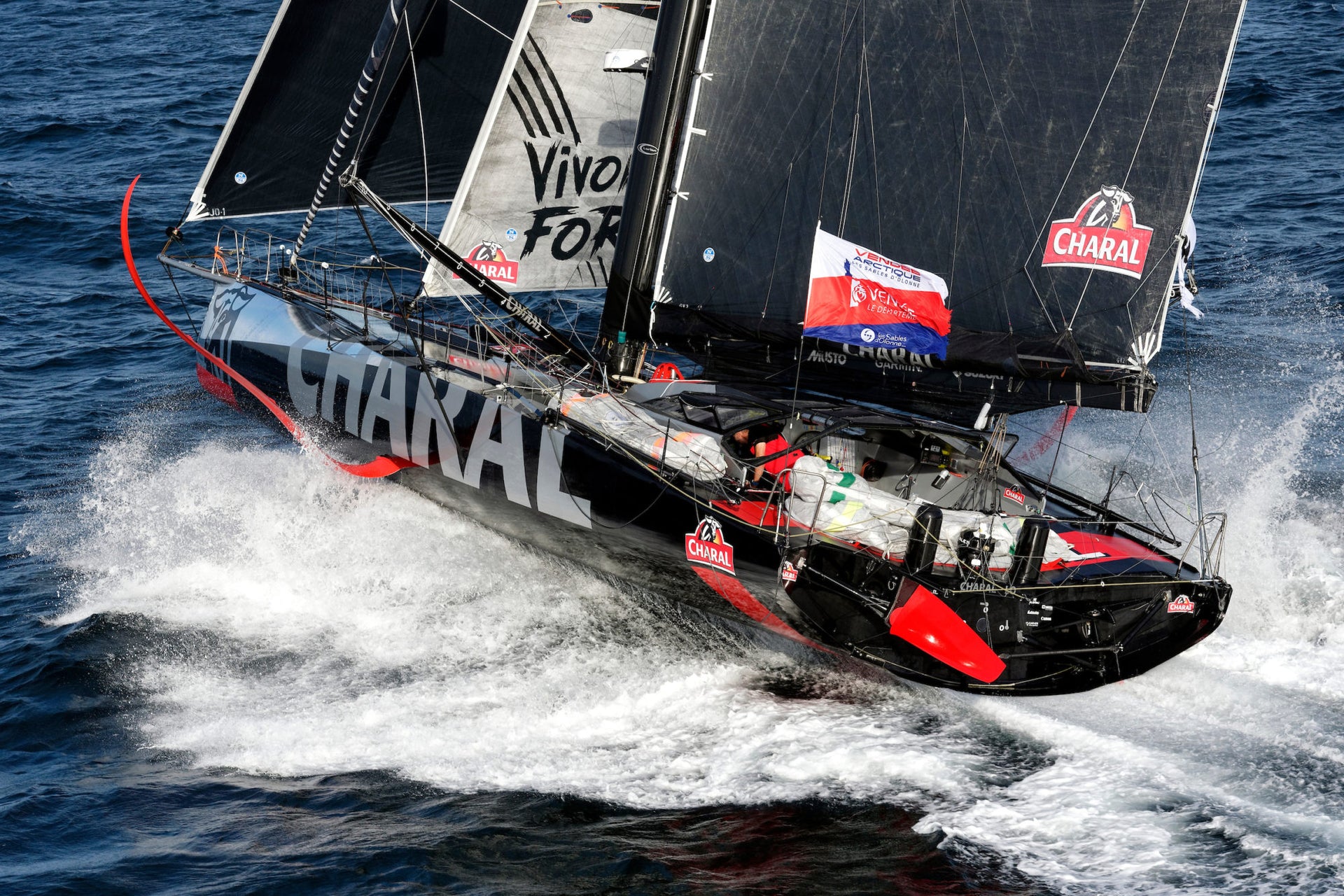
news
BUILDING SAILS FOR THE IMOCA
BUILDING SAILS FOR THE IMOCA
From Drawing Board to Physical Sail Plan on an IMOCA
📸 Jeremie leCaudey
November 8th, the next edition of the Vendée Globe race is set to start from Les Sables d’Olonne, North Sails has designed the sails for the ¾ of the IMOCA fleet, 17 of which have a full set and 7 with a partial set.
The sails on a boat are essential: they ensure the propulsion of the boat. But this “engine” must adapt to the boat as well as the pilot. Each boat has a distinctive set of sails depending on several parameters such as the shape of the hull, the deck plan, the rigging, or even a new element today: the foils whose air behavior plays a critical role in the stability of the boat. This wardrobe must also cover all the wind conditions encountered during competition.
It is up to the designers to design a set of sails that are reliable, efficient, versatile, and tailor-made to each skipper and that does not involve overly physical maneuvers. These sails need also to have both torque, strong acceleration at low revs, (bottom of the sail range), and power when, once launched, the boat accelerates quickly. Defining the right sail inventory can be complex. Yann Regniau, Yann Andrillon, and Quentin Ponroy, designers at North Sails France, enlighten us on the design of the sails of a singular boat, the IMOCA for an equally singular race: the Vendée Globe.
Designing Sails for The Vendée Globe Weather Conditions and Sail Optimization
IMOCA Sail Design Support and Tools Skipper and Team Sail Inventory
Trends and Next Steps
How do you design a set of sails for a Vendée Globe?
There are no absolute rules. It depends on the team, whether they are building a new boat or not, and on the expertise they have in-house. For most new boats, we are involved right from the design stage, working alongside the architects to define the sail plan. In all cases, we have contact and information meetings to precisely target the skipper’s needs and what we can bring him in terms of experience and tools. Then, we draw up the first drafts from the architect’s plans where we can directly simulate our sails in 3D, which allows us to refine the triangulation.
In summary, the sail design is fed by three means: theoretical studies from North Sails (aero and structure), a rich database of sails designed for IMOCA boats combined with our expertise and boat-skipper input. The main stages include the definition of the specifications of the sail with the team; the design (theoretical studies, 3D drawing, and structure); the manufacturing sheet; the manufacturing of the 3Di structure in Minden (Nevada, USA) and finally the finishes at North Sails France (Vannes, Brittany.)
📸 Raphael Demaret
What are the particularities of the Vendée Globe in terms of weather conditions and sail optimization?
One of the peculiarities is the length and duration of the Vendée Globe, the race takes the fastest boats 2 ½ months to complete, but most racers finish in three months. The sails become extremely stressed throughout the race, so the structure must be adapted to account for all possible wear and tear. Reliability is the keyword. The three aspects that characterize this race – around the world, single-handed and non-stop – also apply to the sails.
Today and for several editions, IMOCA boats have at their disposal an arsenal of precise meteorological tools with a southern limit that must not be exceeded to avoid the ice zone and hit drifting icebergs. This was not the case during the very first Vendée Globe, where computer tools were limited. The boats crossed the zone of icebergs and sailed very far south in the Pacific and Indian Oceans to reduce the distance to be covered. During the 1997 edition, after their boat capsized, the sailors Tony Bullimore and Thierry Dubois had to be rescued by helicopter. This edition was particularly marked by the tragic disappearance of the Canadian Gerry Roufs, who in the last SOS announced: “The waves are no longer waves, they are as high as the Alps.” Modern IMOCA boats avoid sailing in winds more than 40 knots, at the risk of suffering major damage without going any faster. They opt for a routing where they can exploit the boat’s speed potential. This largely defines the specifications of the sails. And of course, downwind points of sail – the majority in the Vendée – are favored, even if versatility remains important.
What are the particularities of an IMOCA in terms of sail design?
The new foil boats have both a displacement mode and a flying mode that we must reconcile in terms of sail configuration. They can indeed have violent acceleration and deceleration. As the number of sails on board is limited to just eight, the sails must be reliable. If one or two sails are torn, victory could be compromised. They must also be durable with increased shape retention throughout the race and as light as possible, one, to facilitate maneuvers, as these boats are very physical, and, two, to increase performance, particularly by reducing the weight and the center of gravity of the boat, which increases the power of the boat.
Are sails designed for an IMOCA in the same way as for any other support and for any other race?
Yes and no. Yes, because the design process is similar, i.e. we define the sail plan as precisely as possible with the skipper and the boat’s architect, we work on the specifications of the sail, then we work on the surface, the shape, and the structure so that they respond as well as possible.
No, because the result of the design is different. The difficulty is that due to a limited number of sails, you have to be consistent with all the sails and, above all, this race has become a sprint around the world. The aim is therefore to create a sail that performs well in terms of shape, that is strongly reliable when aging and that, of course, is not too heavy.
📸 Jeremie leCaudey
What supports and tools do you use?
Within North, we have a software solution for designing, studying, and dimensioning the structure of 3Di sails, the North Design Suite, which includes among others Spiral for the sail design, Desman to model the rigging in 3D and Membrain to generate deformed sails. We also use Rhinoceros for the architect’s plans.
Once the design is validated, what are the stages in the manufacture of a sail?
We determine the finishing details of the sail (size, length, and number of webbing straps or rope at each corner…) and prepare the layup plan which will allow the production of the 3Di membrane on a deformable mold (no stitching at this stage). On receipt of the sail at the Vannes workshop, we carry out sail layout and the fitting of all additional reinforcements, straps and finishing details
What is your relationship with the skipper and the team?
We have a relationship based on trust and mutual listening. They are all directly involved in the process. We try to listen to them as much as possible to understand their expectations and needs, how they work, their vision of the project, and the boat. Then we try to transcribe this vision in our drawings as best as possible.
📸 Pierre Bouras / TR Racing
Who defines the sail inventory?
The IMOCA class rules limit the number of sails to eight. The choice of these sails is a long discussion and testing over the years to try to have a game optimized for the Vendée Globe. This debate is essentially about downwind sails, as downwind points of sail are dominant in the Vendée and boat performance has evolved. We assist the team in defining this set of sails.
Can you name the sails for this Vendée and what they are used for?
– A Mainsail
– An obligatory storm Jib 20 m2 minimum
– J3: Heavy air upwind sail/gennaker staysail off the wind
– J2: Upwind and close-reaching sail used from 12 knots upwards
– FRO: upwind sailing in light airs and reaching all the way to downwind in heavy air
– J0: Masthead Gennaker (190 m2 flat sail) for light airs and reaching
– A7: Fractional reaching and downwind reaching Gennaker in strong winds
– A3: large Gennaker of around 300 m2 for downwind sailing up to 25 knots
What are the main trends in terms of sails since the last Vendée Globe?
The sails have less volume on the upper part and the volumes are further forward. The most visible point is the reduction in head width and the roach of the leech of our mainsails are “S” shaped. Without forgetting that most of the headsails are load sharing, using the North Sails Helix structure luff.
After the sails are set, what is the next step in the program?
We carry out test sailings to check and validate that the sails meet the specifications defined with the skipper. Sometimes, a sail can be a laboratory sail, it is tried/tested, then it comes back to the sailmaker’s to be modified and tested again. And each outing is important for continuous improvement. We systematically record the data to work on the evolution of the next sails.
How do you help the sailors to get the most out of their sails specially designed for this race?
We help them on the outings to optimize the way the sails are trimmed so that they can find the right setting for each angle of a given sail very quickly.
What changes can be made to the sails for the next Vendée Globe 2024?
Everything will depend on the evolution of the IMOCA class. Will it continue to evolve with increasingly large budgets given the current pandemic crisis? That said, as soon as a new set of sails is designed, there will always be room for improvement. Our sails for 2024 will, therefore, reflect the evolution of the IMOCA class, whether they are 100% foiler or not…
READ MORE
READ MORE
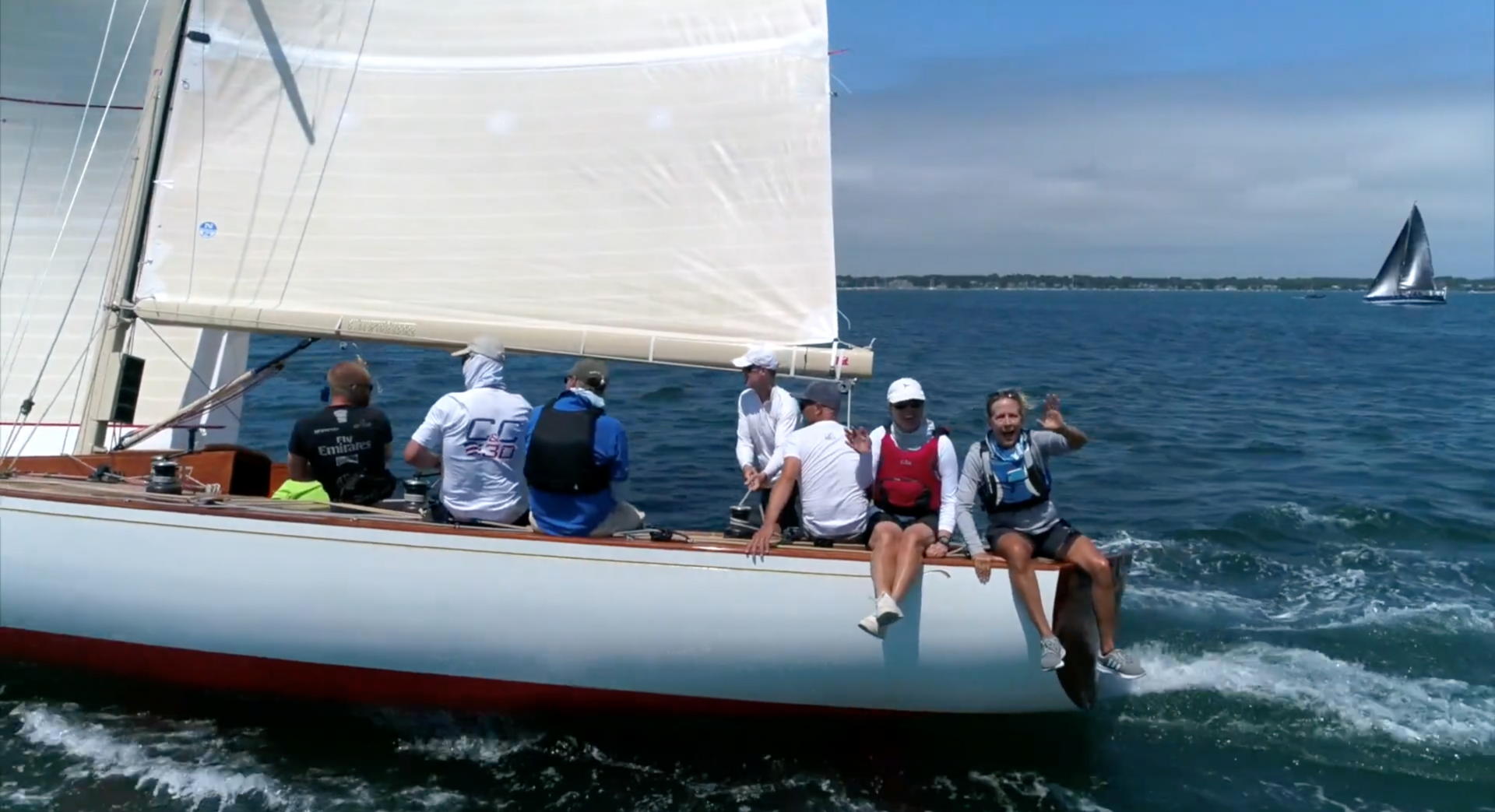
news
FEELS LIKE SUMMER IN RHODE ISLAND
FINALLY FEELS LIKE THE SUMMER SAILING SEASON IN RHODE ISLAND
Local Sailing Finds Perfect Conditions on Narragansett Bay
It took until mid-July but it finally feels like summer on Narragansett Bay. This past weekend 24 boats of various shapes and sizes participated in IYAC’s 2020 Newport Cup to race around Conanicut Island. Local talent, short-handed sailing, and solo kiteboarding sessions were all on display in an effort to do whatever it takes to get back out on the water.
Skipper of Class40, First Light, Sam Fitzgerald said, “it was great to get back out on the bay today and race against some new faces. Today’s conditions were challenging, especially in the beginning of the race but we had an awesome day nonetheless! We are just glad to be out here!”
The around Conanicut Island clockwise course started in a fresh southerly gradient which slowly shifted to a southwest sea breeze. The 18 mile “around the island” is a classic racecourse with upwind, downwind and reaching legs. Jason Carroll’s Mod 70 Argo was first to finish in just under 90 minutes.
“Never a bad day when you get to line up with a Mod 70 on the kite foil,” said local kiteboarder Casey Brown. ” I let Argo get a clear start, then started reeling them in as we ripped through the fleet before the wind faded approaching beavertail. Shoulda gone with a bigger kite! It was a great day on the water! Lots of stoke.”
“It doesn’t get much better than this,” remarked North Sails expert Mike Toppa. “It’s easy to take local sailing for granted but, we are lucky enough to be out sailing on one of the nicest pieces of water in the world. Schooners, kiteboarders, multihulls, classics, double handers, 12 Metres, PHRF champs, and everything in between were competing. This is different from what we all had planned for our 2020 season, but summer is short and you don’t want to miss out.”
Meanwhile, on the bay, Newport Yacht Club held their Offshore 160 Single-Handed Challenge. 15 short-handed boats set off on a 114 mile, overnight, offshore course to a buoy off Montauk Point and back. The biennial Offshore 160, held in the off-year from the Bermuda ONE-TWO, is a 160-mile qualifier for the ONE-TWO. This low-keyed, bare-bones event provides a chance for new skippers’ singlehanded to hit their qualifying passage in the off-year, and to provides past competitors with a long-distance racing “fix,” something we all need this summer
There is still plenty of racing in and around Rhode Island this summer for anyone interested in getting on a racecourse this summer. Check out the schedule below or get in touch with the North Sails loft in Portsmouth for questions or expert advice.
Contact Loft Find Your Expert
Events Coming Up Around the Bay:
M32 Midtown Cup – Jul 18-19
GSBYRA Southbay Regatta – Jul 18-19
Sail Newport Part I – July 25-26
MOHOSA Wednesday Night Worlds – July 29th
Around Martha’s Vineyard – July 30-31
Edgartown Yacht Club ‘Round the Island Race – Aug 1
Sail Newport Part II – Aug 1-2
MOHOSA Part II – Aug 2
Ida Lewis Distance Race – Aug 15-16
J/Fest – Aug 15-16
Herreshoff Museum Leukemia Cup –August 22
166th Annual Regatta & NYYC One-Design Regatta – August 28-30
Sail Newport Part III – Aug 29-30
CYC ATI Race – Sept 6
Queen’s Cup – Sept 2
Sail for Hope – Sept 12
Race Week at Newport presented by Rolex – Sept 23-26
Melges IC37 National Championship – Oct 2-4
Laser Masters – Oct 10-11
READ MORE
READ MORE
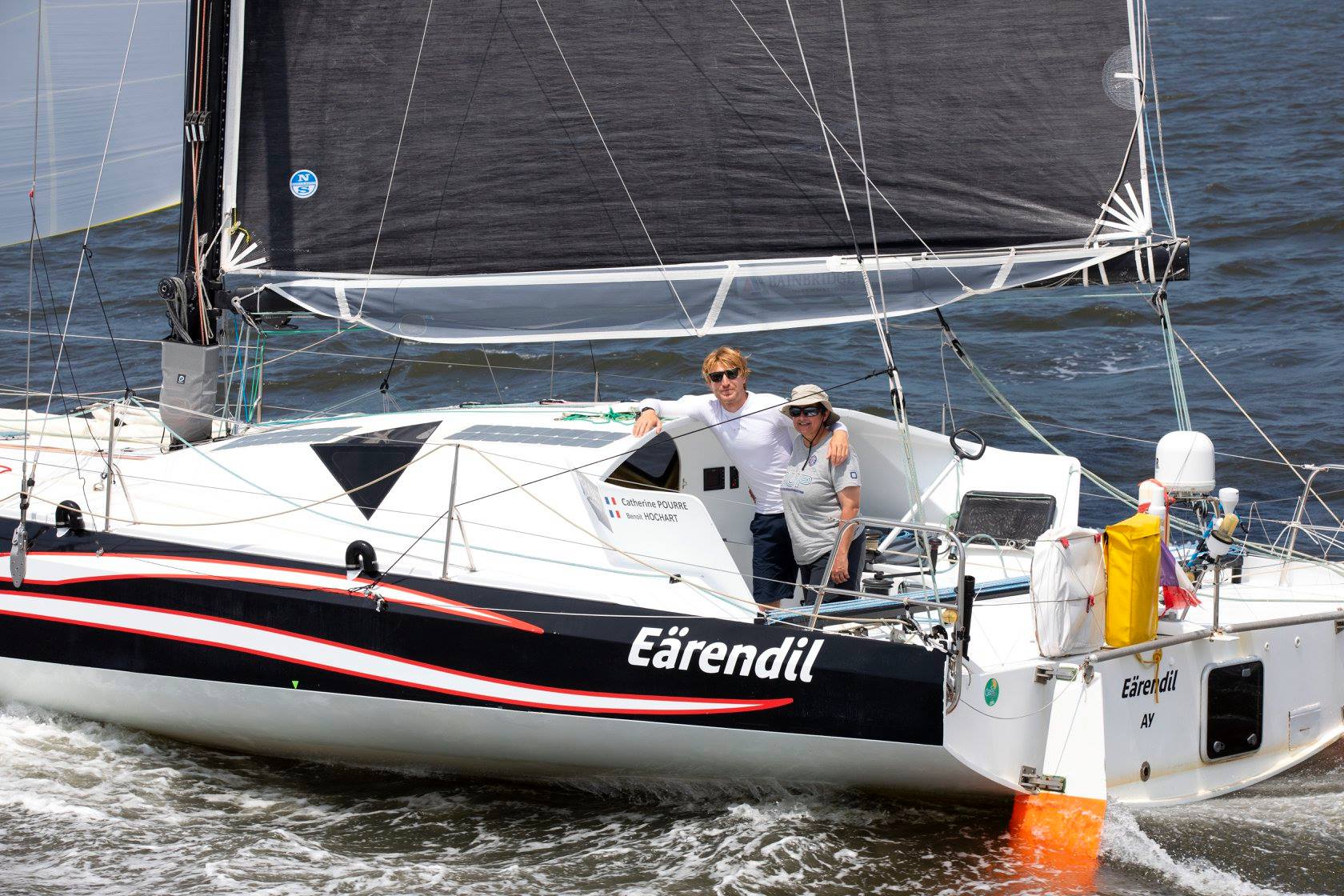
news
IT TAKES TWO...
IT TAKES TWO…
… To Race the Rocket That is Eärendil, Win Multiple Titles and Dominate the Class40 Fleet
Billy Black / The Atlantic Cup
Owner and co-skipper, Catherine Pourre and co-skipper Pietro Luciani are the winning duo onboard Class40 Eärendil. Together, the pair are the reigning Class40 World Champions, have twice won the RORC Caribbean 600, The Atlantic Cup, placed runner up in the Defi Atlantique, and earned top-three placement in the Rolex Fastnet Race and The Normandy Channel Race. With countless offshore miles between them, their North Sails have allowed the team to push the boat to its full potential, unlocking the secret to total domination in the Class40 fleet.
Catherine and Pietro share their best tips for successfully managing a doublehanded racing program:
Your sails must be reliable. This is always true, but it’s even more true when it comes to doublehanded sailing. Having to fix your sail, or deal with problems while at sea, will affect your race a lot more than if you were racing fully crewed. Choosing a sailmaker who has great experience in the type of boat you are sailing with is important.
Your sails must be strong and versatile. Having sails that are a little stronger and more ‘forgiving’ than regular sails for fully crewed races is key. We sail with a full set of 3Di, built for a broader range of conditions. Often with the Class40, and sailing doublehanded in general, you find yourself sailing slightly overpowered, and always anticipating a change in wind force. Maneuvers for a great doublehanded team can take 10 minutes and use up a lot of valuable energy. Knowing that you can keep the same sail up for a longer period of time without exploding it, even if it’s not ideal, is peace of mind in this mentally and physically challenging doublehanded platform.
Your sail inventory should fit into a wider crossover range. This is for two reasons; you need to still be able to sail fast, even if you break one sail (which happens more often in doublehanded racing), and to reduce maneuvers. Our sails are much more versatile rather than specialized, with a narrow range-use.
When training, try to switch positions. Even if it’s pretty clear that the younger/stronger is going to the bow, having tried the other way around will help both to understand your sailing partner’s needs during a maneuver.
Don’t be shy in waking up your co-skipper when in doubt. If you have a doubt about navigation, or about performance, you need to speak up. I’d personally prefer to go take a nap if I know my partner will wake me up as soon as he/she may need me. Especially in difficult conditions, when you might feel a little guilty leaving the other alone.
Keep your boots on! Go to sleep but always be ready to report back on deck. When your partner wakes you up, you need to be on deck right away, with no delays.
Whatever watch system you adopt, be fair to one another. Being selfish or being over-generous will not work with just the two of you. Together you need to adopt a system that makes you both comfortable, so if you need to wake up your partner before the end of your watch, you can do so without any second thought.
Billy Black / The Atlantic Cup
READ MORE
READ MORE

news
THE BEST SAILS FOR CRUISING
North Sails Has An Option For Every Type Of Cruiser
A few months ago, North Materials Expert Tom Davis wrote an article titled “What are the Best Sails for Club Racing?” It only seems logical to have a companion piece that focuses on cruising, so you can better understand about the differences between club racing sails and cruising sails and all the options you have.
Are club racing sails and cruising sails the same? No. Club racing is narrow in scope compared to the wide world of sailboat cruising. So, unlike the club race article (where sail size and shape were discussed), here we will cover all of North’s cruising sail materials. Once you know your own cruising goals, you can narrow down what will be best. If you have any questions about a particular material, remember your nearest North expert is just a click away and ready to help you make the best selection.
Which sail cloth should I choose for cruising?
For upwind paneled sails on cruising boats, we offer fill-oriented NPC CROSS-CUT, NPC RADIAN, NPL SPORT, and NPL TOUR. We also have 3Di cruising sails to consider. Our 3Di OCEAN product line consists of three types of 3Di materials, made for different sized boats: OCEAN 330, OCEAN 370, and OCEAN 700. The 3Di ENDURANCE line represents a “crossover” zone, with sails well suited to both cruising and racing.
For downwind, there are woven nylons, Code laminates, and 3Di Downwind options to choose from. You’ll also need to decide between an asymmetric or symmetric spinnaker.
A 22-foot pocket cruiser and a 22-meter ocean going yacht can each be successfully matched to the ideal material because there are many options for either. The trick is to work with your sailmaker to quickly narrow-down the choices of sail material to perhaps two sensible options based on your requirements. Then relax and enjoy the whole process of deciding exactly what is best for you in material, LP%/roach profile, batten configuration, number of reefs, color, and so on. This can and should be fun.
Things you should consider when narrowing down your options:
Your budget
Your expectation for how long a sail should last
Your expectation for how “perfect” a sail’s flying shape needs to be as the sail ages
Your desire to have the sail weigh as little as possible while meeting the above criteria
NPC CROSS-CUT NPC RADIAN NPL TOUR + TOUR ULTRA
NPL SPORT 3Di OCEAN
North Paneled Cloth
Sticking with upwind sail materials for now, and beginning with paneled sails (i.e. where sailcloth panels are cut from rolls of material) the starting point is woven polyester, often called “Dacron”. Polyester yarn is a good all-round performer on small to mid-size boats. It resists damage from environmental exposure. It is reasonably strong, and not excessively stretchy. And the price of a Dacron sail is at the low end of the range. Let’s summarize in bullet point form:
NPC CROSS-CUT – A Fill Oriented Cross-Cut Dacron Sail
Budget: when price has to be as low as possible, a NPC Cross-Cut sail is the right choice. Durability: these sails stay in one piece, even after many seasons of hard use. Sailshape Perfection: Decent when new, but flying shape will change a lot with age. Weight: Not light. Less of a problem on smaller boats, but very noticeable as LOA goes up.
NPC RADIAN – Radian Warp-Oriented Dacron Sail
NPC RADIAN is an enhanced version of the paneled dacron sail. Panels can be radially oriented in these sails which confers a measurable improvement in sail shape-holding.
Budget: Still relatively low in price, Radian prices just a bit higher than fill-oriented NorDac. Durability: These sails stay in one piece, even after many seasons of hard use. Sailshape Perfection: Quite good when new, but expect some shape change with age. Weight: Not light – but lighter than a crosscut Dacron sail. Not available for longer LOAs.
North Paneled Laminates
Staying with upwind sail materials and paneled sails, the next tier of materials is laminated cloth (in Northspeak, NorLam). Laminates present the opportunity to reduce sail weight, improve shape holding, and incorporate high modulus (low stretch) and high tenacity (strong) fibers, along with polyester in both yarn and film form. When designed and manufactured correctly, laminated sailcloth is very durable, while helping keep sail weight reasonable, and resulting in very good sailshape performance.
NPL TOUR & TOUR ULTRA
Xi Cruise styles are aimed at mid-size cruising boats looking for both moderate price and enhanced sailing performance. Xi Cruise styles feature polyester woven outer plies surrounding polyester film and Ultra PE (high modulus) fiber on the inside. The outer layers protect the Ultra PE yarn, while the Ultra PE high modulus content reduces bulk and stretch.
Budget: Medium price level. Durability: Not quite as long lifespan as woven dacron, but ages gracefully. Sailshape Perfection: Very good when new, with moderate change over time. Weight: Medium – On bigger boats, the weight savings are very welcome compared to dacron.
NPL TOUR ULTRA – NorLam Ultra X
Ultra X styles are available for mid-size through super-size cruising boats. The key difference between Xi Cruise described above and Ultra X is the use of UltraPE fiber in Ultra X. UltraPE offers near ideal fiber performance, with very high modulus and tenacity, along with remarkable toughness and environmental resilience. In laminated cloth, we weave the UltraPE, and we pack a lot of this fiber into the cloth. That’s not a low-cost approach, but it does result in enhanced performance and extended sail life.
Budget: Higher price level. Durability: Excellent. Sailshape Perfection: Very good, because there is a lot of UltraPE in the material. Weight: Medium.
NPL SPORT – NorLam Ultra XC
Take everything noted above about Ultra X, and add carbon fiber. I’m going to assume everyone knows about carbon fiber these days given its ubiquity in race cars, bicycles that seem to weigh almost nothing, 80-foot boats that seem to weigh almost nothing, and pretty much every cool high-performance product that seems to weigh almost nothing. North Sails has been laminating UltraPE and carbon fiber together in cruising sailcloth for bigger boats for more than twenty-five years; and the results are still remarkable.
Budget: High price level. Durability: Excellent. Sailshape Perfection: Very good, approaching excellent. Weight: Medium (Lighter than Ultra X, but you still need to pack-in a lot of fiber for the long haul).
And Now… in 3D!
We recently codified a full line of 3Di products made expressly for cruising boats under the OCEAN group name. A key piece of identifying this line was the introduction of a new 3Di “material” type – 3Di OCEAN 370. Let’s dig a little deeper into what makes 3Di OCEAN ideally suited to cruising, in a similar materials based context to the paneled sail information above.
First though, if you’re not clear on the differences between 3Di and paneled sails (or 3Di and “string membrane” products), please take a look at our material page for more information on the difference in sail material types. 3Di represents a technology step-change in sailmaking. It is a more complex, and therefore more costly way to advance sailmaking.
For cruisers, this complexity has straightforward benefits: better shape-holding in lighter weight sails with no decline in durability. Should every cruising sailor, therefore, forget about paneled sails as an option, given the engineered superiority of 3Di? No. Paneled sails remain a viable choice for all the reasons noted above; and depending on your priorities and budget remain a good option for many sailors.
3Di OCEAN 330
Retain the benefits of NORDAC polyester as described above, and enhance them with the technology of 3Di – that’s OCEAN 330. Originally called 3Di NORDAC, OCEAN 330 makes the most of polyester fiber in upwind sails.
Budget: Medium price level by “dacron” sail standards, low by 3Di standards. Durability: Excellent. Sailshape Perfection: Good (very good, if not excellent, by woven polyester sail standards). Weight: Medium (not light, a lot of fiber in filament form is packed into these sails).
3Di OCEAN 370
OCEAN 370 brings UltraPE into the mix along with polyester, significantly boosting strength, while improving stretch performance. There’s a size/load point with 100% polyester sails where the sails become just too bulky, and weight aloft really starts hurting boat performance. The sails are difficult to handle and store. OCEAN 370 steps up where OCEAN 330 is not viable – doing so cost effectively, while nicely balancing the attributes of sailing performance and extended lifespan.
Budget: Medium. Durability: Excellent. Sailshape Perfection: Very Good compared to directly competing cruising sail options. Weight: Medium.
3Di OCEAN 700
OCEAN 700 is an ideal performance cruising solution for bigger boats with higher load sails. UltraPE is the primary filament/fiber type, with aramid judiciously introduced in maximum load zones of the sail. Tough, low in stretch, and engineered to provide many years of service, OCEAN 700 is the cruising reference standard for mid-size to superyacht scale boats.
Budget: Medium. Durability: Excellent. Sailshape Perfection: Very Good. Weight: Medium.
That describes our full lineup of upwind cruising sail choices. North Sails representatives have the expertise to guide you to the exact right sail from within this broad range. If your plans include a share of racing along with cruising, 3Di ENDURANCE series sails cross over into the sail shape/sail weight performance envelope that racers require. And our hardcore race product line, 3Di RAW, delivers speed like no other sail type can. Stay tuned for an update on best material choices for downwind/reaching sails, whether cruising or racing.
CONTACT YOUR EXPERT REQUEST A QUOTE
READ MORE
READ MORE
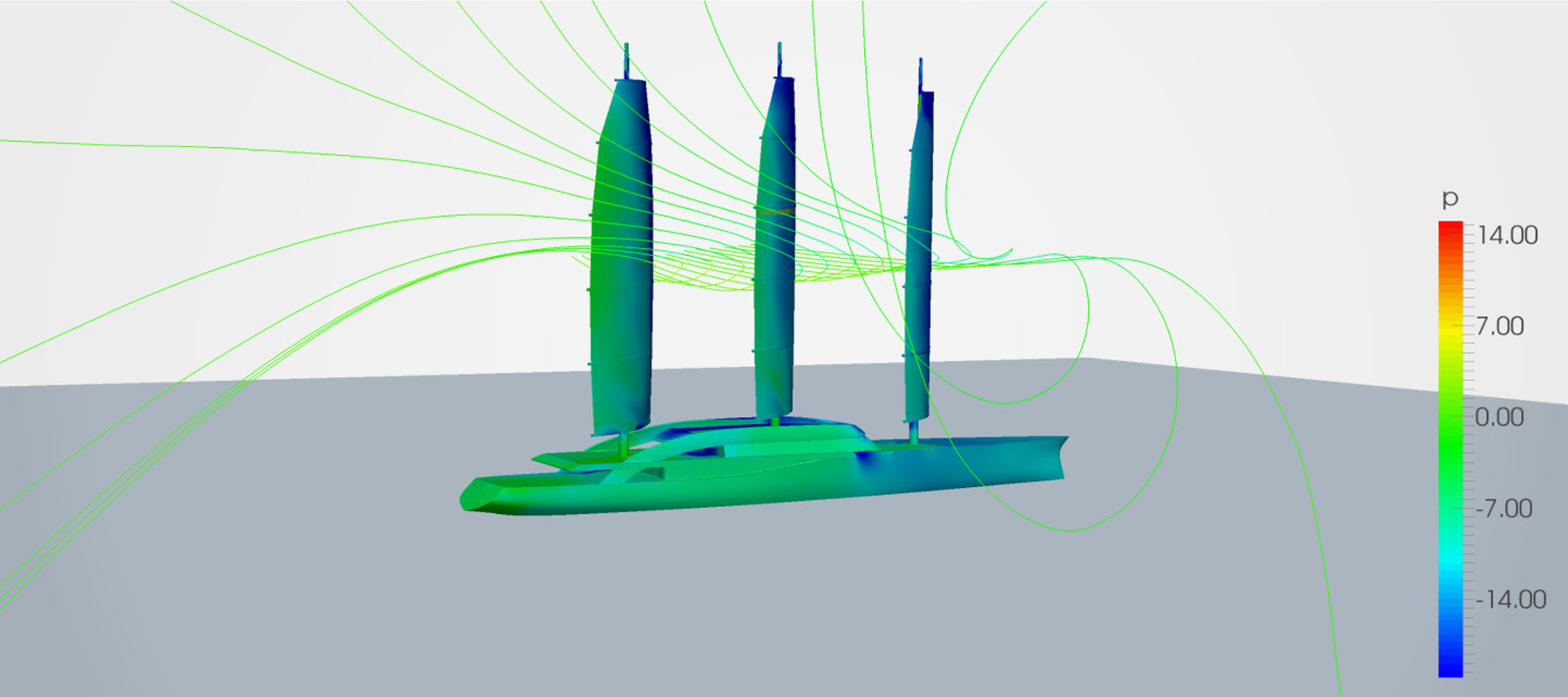
news
INTRODUCING DYNARIG BY SOUTHERN SPARS
SOUTHERN SPARS JOINS FORCES WITH MAGMA STRUCTURES ON DYNARIG
The World’s Leading Spar Maker to Manufacture Alternative Solution for Superyachts
📸 North Sails / North Design Suite / Membrain
Southern Spars, a North Technology Group company, is proud to announce they have joined forces with Magma Structures to deliver a new generation of DynaRigs. The DynaRig concept has proven itself as an effective alternative to conventional rigs for superyacht owners who are looking to reduce crew numbers and optimize sailing time. This is a new chapter for the innovative rig solution and aims at making the efficient, safe, and high-performance rig more accessible. To date, the DynaRig system has been installed on two superyachts, the Maltese Falcon and Black Pearl, with the team at Magma also behind the largest freestanding rig in the world on the Sailing Yacht A.
“Magma’s experience in designing, delivering, and maintaining DynaRigs combined with the NTG analysis, engineering, and manufacturing capabilities will enable Southern Spars to drive the continuous improvement of the concept.”
Damon Roberts Director Magma Structures comments; “We know the DynaRig concept is excellent for sailing superyachts, as proven by the first rig built for Tom Perkin’s Maltese Falcon. Magma Structures is delighted to have Southern Spars on board to further the technical and commercial development of the product. The recent success of Black Pearl has energized interest in the market and I am confident, Southern Spars, whose core business is mast-making will develop the next generation of DynaRigs.”
Sam Watson CEO of Southern Spars comments; “We are delighted to join forces with Magma Structures. Their unique experience in designing, delivering, and maintaining DynaRigs combined with the NTG analysis, engineering, and manufacturing capabilities will enable Southern Spars to drive the continuous improvement of the DynaRig concept. None of this would have been possible without the innovative spirit of Magma Structures, led by Damon, and naval architect Gerry Dykstra. The entire Southern Spars group is honored to be working with the Magma team to offer an additional solution to meet the unique needs of the largest yachts in the world.”
As the industry leader, Southern Spars has an unrivaled reputation and track record for delivering conventional stayed rigs to the superyacht and Grand Prix markets. Harnessing simulation data from the powerful North Design Suite, Southern Spars is uniquely able to assess overall sailing performance for best-informed engineering decisions. The North Design Suite has now been expanded to include DynaRig yachts to the same level of detail and accuracy as all NTG projects. With enhanced design capability, the experience of Magma Structures, and the composite manufacturing expertise of Southern Spars, DynaRig by Southern Spars will now allow owners and yacht designers a new level of creative freedom for the next generation of sailing Superyachts.
Please visit southernspars.com for more information on Southern Spars.
📸 North Sails / North Design Suite / Virtual Wind Tunnel
About Southern Spars:
Southern Spars is a division of the North Technology Group, the world leader in sail-making technology. Southern Spars specializes in the design and construction of carbon fiber spars and components, rigging, and rig servicing. As the industry pioneer, Southern Spars built its first carbon spar in 1990. Since then the company has pursued a passion for delivering world-class superyacht and racing spars, carbon rigging, and service.
About Magma Structures:
Magma Structures is a global leader in composite technology, providing world-class structural engineering expertise and flexible manufacturing resources and processes to deliver high-performance solutions for unique and challenging requirements.
About DynaRig:
DynaRig is a safe, high-performance sailing system, delivering ease of handling, reliability, and efficiency, even when sailing at 18 knots. The DynaRig addresses key challenges from escalated loads and unprecedented scale, making it especially suitable for two and three-masted performance cruising yachts from 60m to 110m in length.
READ MORE
READ MORE
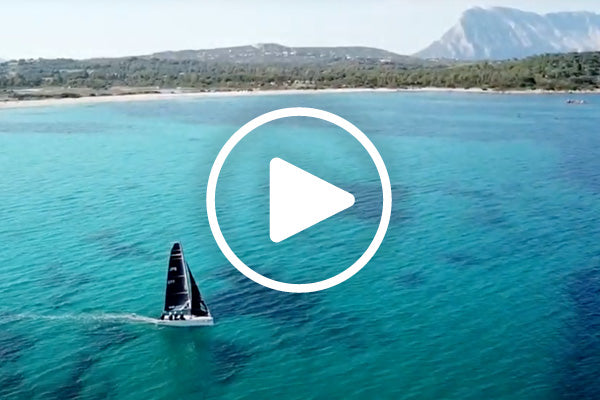
news
WORLD OCEANS DAY
WORLD OCEANS DAY
The Ocean is Our Passion, Our Playground, Our Responsibility.
For World Oceans Day this year, North Sails and North Kiteboarding came together to celebrate our love for the ocean. Collectively, ambassadors and athletes shared their thoughts on how we can better care for our best resource, our racecourse, our playground. Whether you are racing in a world championship, cruising for the weekend, or discovering a new place to go out and ride, we can all do small things to make a big impact on the health of our oceans.
Charlie Enright, 11th Hour Racing
“This year’s World Oceans Day has me yearning for the ocean like never before! I can’t wait to get back out there and reconnect with everything that I’ve been missing during these tumultuous times. The health of our oceans is important to all of us and it’s going to take every single one of us to get things back on track. Let’s use this inflection point as a way to combat ocean obstacles with a new level of vigor and motivation.”
Jalou Langeree, North Kiteboarding Team Rider
“Nature is the inspiration for so much of what we do…when we kite we feel so in tune with nature, so connected. We must work harder to protect it.”
Dee Caffari, Turn the Tide on Plastic
“I consider it a privilege to call the ocean my office and my playground. I have seen first hand the pollution in the world’s oceans and now with my recent work with Turn the Tide on Plastic, we have the scientific proof to support the microplastic problem we have to tackle. Our oceans act as a barometer for the health of our planet and we all can act now with a small action so collectively we can make a big difference.”
Giulio Desiderato, North Sails One-Design Expert
“All my best memories are linked to the sea. Sailing is more than just a hobby, sport, or work for me, it’s a lifestyle. If you are able to understand the values that the sea teaches you, and you are able to bring these values into your routine you will become a better and stronger person, on and off the water.”
Marc Jacobs, North Kiteboarding Team Rider
“Without the ocean, I wouldn’t be able to do what I do every day. As professional kiteboarders, we have the ability to spread awareness and have a voice for the ocean. It’s time to take action and protect our playground.”
Warwick Kerr, North Sails Expert and Cruiser
“Living on our sailboat, Wakaki is already a green life. We make an effort to always sail, and not use the engine. We conserve our freshwater and buy local and use natural/biodegradable products. We have solar power onboard, so we don’t have to use the engine to charge our batteries or turn on the lights. We don’t waste, we recycle and reuse.”
READ MORE
READ MORE
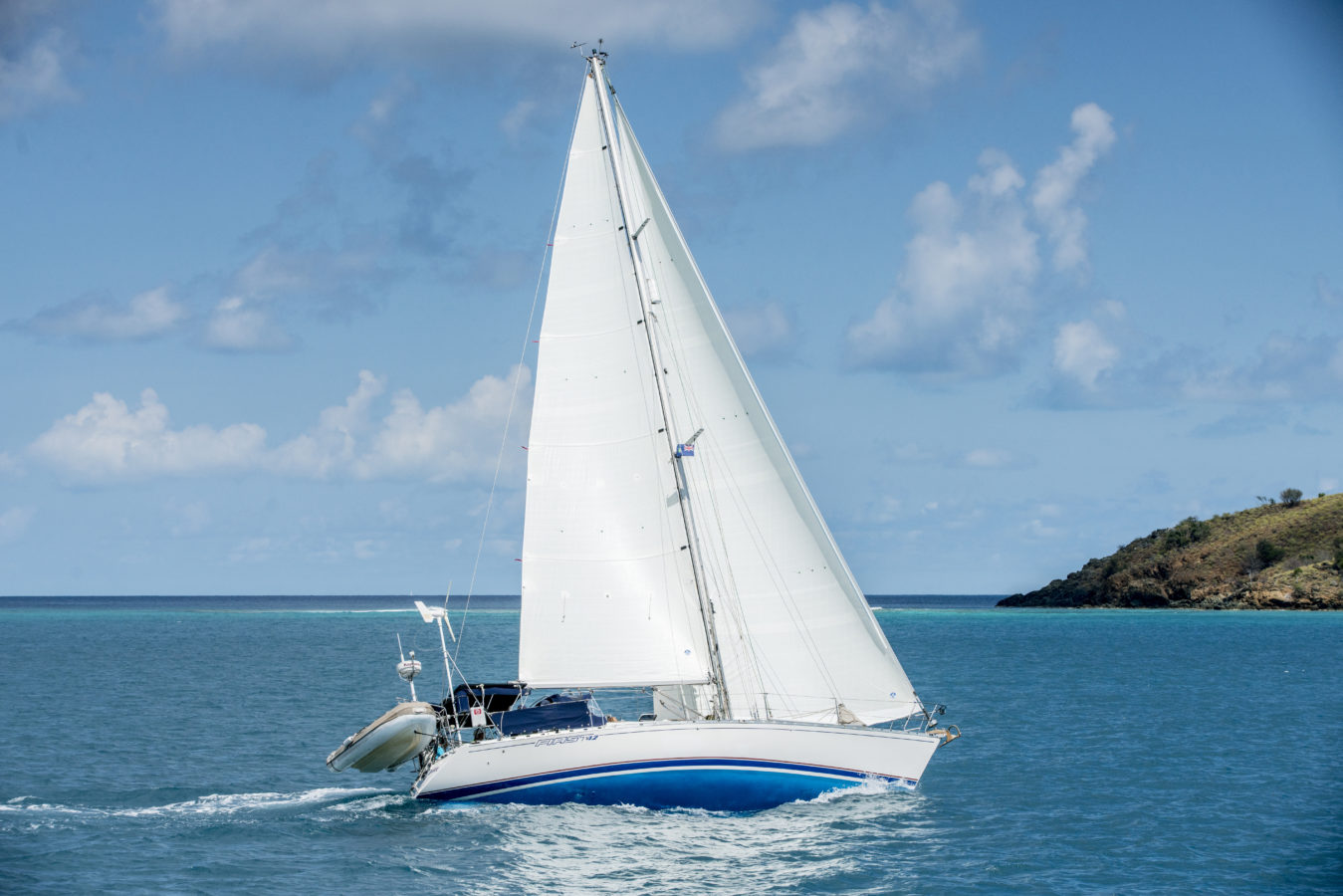
news
3Di OCEAN: YOUR QUESTIONS, ANSWERED
3Di OCEAN: YOUR QUESTIONS, ANSWERED
Learn More About the New 3Di OCEAN Line-Up with Our Q+A
Q: What is 3Di OCEAN?
A: 3Di OCEAN is the newest line of 3Di sails from North Sails, designed and engineered exclusively for cruising.
Q: Is 3Di OCEAN right for my type of boat and sailing?
A: 3Di OCEAN is for you if you are looking for a premium cruising product, providing high strength and durability with all of the advantages of 3Di sailmaking.
Q: What is different and better about 3Di sailmaking?
A: 3Di is a unique-to-North molded composite sailmaking process. With 3Di, individual filament tapes are printed in precise tape vectors (length/direction) and densities. This membrane is then consolidated using heat and thermoset resin on a full size, sail-shaped mold. 3Di results in strong, smooth, and precisely shaped sails.
Q: How does 3Di OCEAN differ from your other 3Di products?
A: 3Di OCEAN sails are optimized for cruising strength and durability, while 3Di RAW sails are engineered for low stretch and lightweight racing performance. 3Di ENDURANCE sails are suitable for both cruising and racing – with a balance between low stretch shape-holding and added durability.
Q: Which 3Di OCEAN sail is right for me?
A: 3Di OCEAN comes in three distinct styles, for an increasing range of boat sizes:
OCEAN 330 is 100% NORDAC Polyester and suited for 25’-45’ cruising boats
OCEAN 370 is for boats larger than 45’ including many cruising multihulls which require the lower stretch and greater strength of Ultra PE blended with 3Di NORDAC polyester
OCEAN 700 serves boats larger than 60’ with a high modulus blend of UltraPE and aramid
Q: How long has North been building 3Di cruising sails?
A: 3Di technology has been around for over a decade, and 3Di sails are in use on thousands of boats that have sailed millions of miles.
Q: What are some specific benefits of 3Di OCEAN sails?
A: 3Di OCEAN is beneficial because it is durable. 3Di NORDAC Polyester and UltraPE fibers are more UV and flex-fatigue resistant than other fibers used in upwind sail materials. The product composite construction with thermoset resin means no mylar, eliminating the problem of delamination associated with laminates and string sails. 3Di OCEAN has a specialized outer surface tape, that provides chafe and abrasion protection–which is great for in-mast or in-boom furling.
Q: Are 3Di Ocean sails good for racing?
A: Not as good as an ENDURANCE or RAW sail! OCEAN is not engineered specifically for racing. Sure, if you want to join an occasional race or rally, 3Di OCEAN sails will be fine. If you are looking for dual-purpose “crossover” sails – that can be found with 3Di ENDURANCE. And of course, 3Di RAW is racing.
Q: What about other materials? Does North still make cross-cut cruising sails?
A: Yes, North has other paneled cruising sail options available. NPC Cross-Cut sails feature traditional woven polyester. NPL Tour sails are made of proprietary laminated sailcloth to match a variety of applications and price points. Depending upon your needs and expectations, North has a cruising sail that is right for you.
Explore Materials Find a Loft Request a Quote
READ MORE
READ MORE
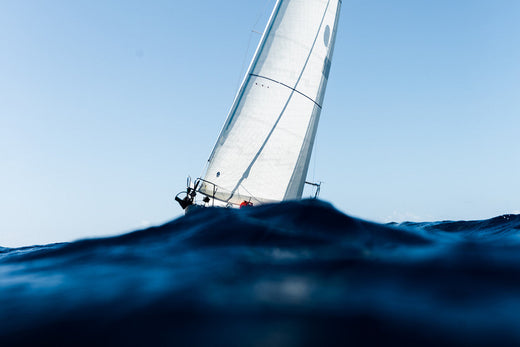
news
INTRODUCING THE 3Di OCEAN LINE UP
After an exhaustive research and development program, North Sails is thrilled to launch 3Di OCEAN 370, our latest innovative sail product that completes a line-up of 3D molded sails dedicated to cruising.
READ MORE
READ MORE
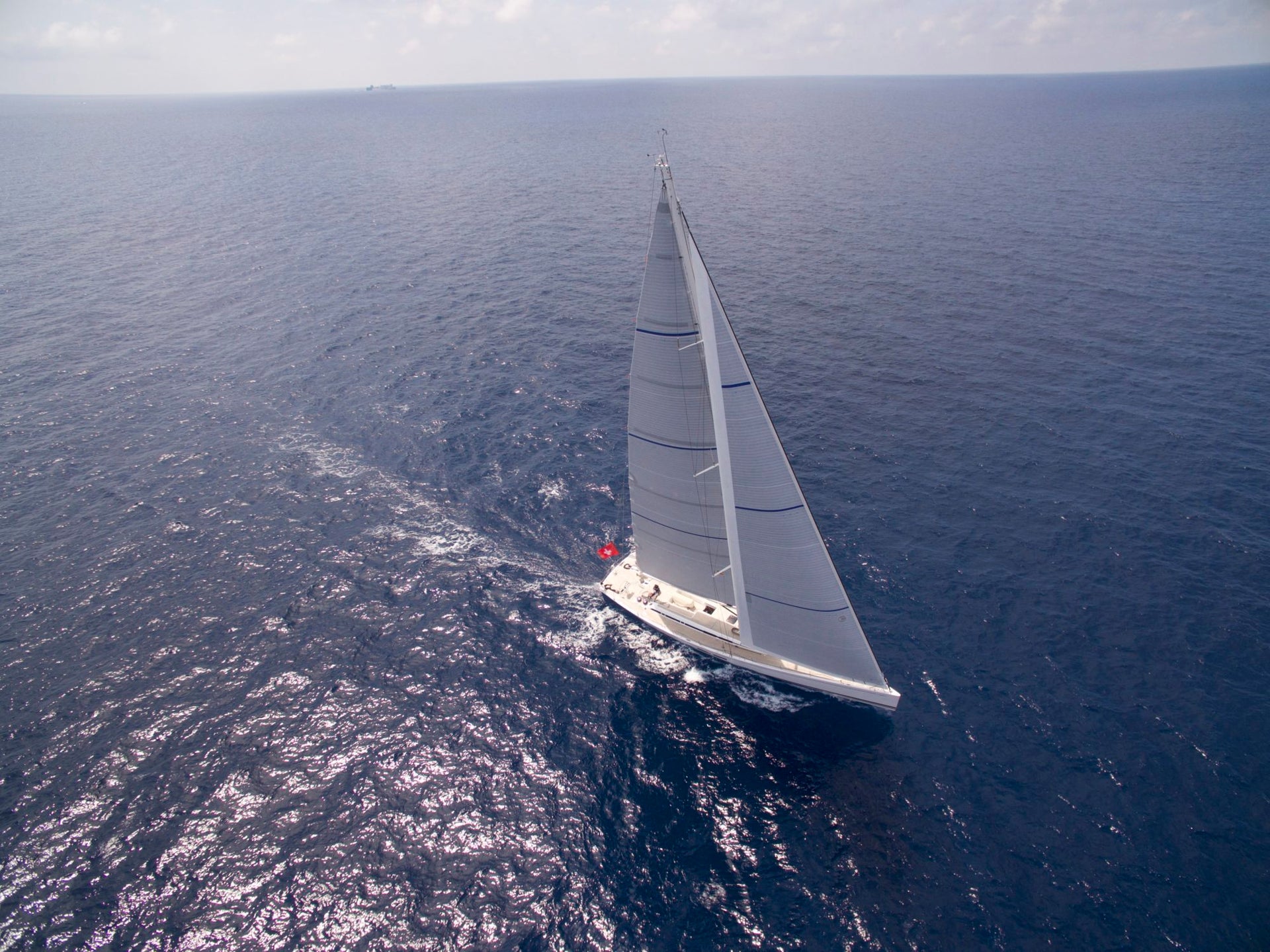
news
NEW SAILS FOR SUMMER
NEW SAILS FOR SUMMER ON A SWAN 80
Sail Expert Brad Favelle Shares His First Impressions
Brad Favelle, North sail expert based in Palma de Mallorca runs us through the delivery of some new sails which is always a refreshing experience. We met with Brad after installing a set of Swan 80 sails ready for summer cruising. He provides us with an on-the-ground view and shares his first impressions.
Explain the sail installation process. Once the client picked the sails, what was the first step to getting them on the boat once production concluded?
The sails are quite large on an 80-footer, so there was a fair amount of planning to get the sails to the boat and loaded on board. With the help of a forklift and the North Sails crane we lowered the sails onto the deck as the boat hit the water. Once the sails were safely on deck we started with the preparations of un-rolling in the correct position, then we used shackles and lashings to ensure the attachment points were set up correctly. Afterwards we loaded battens and applied the correct tension along with halyards to ensure all were hoisted ready for furling and boom reefing systems.This time is well spent along with the fine-tuning, which allowed us to create the best loading profiles for the sail and usability for the rig and deck systems onboard.
We can assess the results of the product and sail setup by conducting sea trials, which are beneficial to us as sail designers and experts, and to the crew. We enjoy sharing our expertise with the crew so they can help make their owner’s experience even more enjoyable whilst onboard.
What was it like seeing the new sails hoisted for the first time?
To see the sails hoisted for the first time was not only rewarding but highly pleasing from a sail design and production point. Making sure the design was optimal and that the sails fit perfectly was one of my main goals when taking on this project.
What were the client’s first remarks once they saw the sail up?
As any sailor knows, the best way to judge the result is through the enjoyment of a balanced helm and smiles as we powered through the perfect sea conditions. As we trimmed in the sails, we quickly picked up speed and the level of enjoyment set in for all on board. We were all delighted to be out on the water again.
What kind of conditions did you have for the first sail?
For our first sail, we had roughly 14-16 knots with a slight sea state. We had two crew: two North Sails Experts and an additional Industry professional. We couldn’t have asked for better conditions, which helped to make the entire experience productive and fun for the captain and crew.
Why is 3Di OCEAN 700 best for this type of yacht? Explain the features and benefits.
3Di OCEAN 700 is optimized for this size yacht as it delivers an exceptional level of modern cloth engineering. The blend of the internal tapes uses custom layouts and the chafe resistant surfaces provides the balance between durability and performance.
I feel that OCEAN 700 is a great package for the client because of its user-friendly handling and trim characteristics. Also, its color looks particularly great against the white hull. 3Di OCEAN 700 is the right choice for blue-water superyachts, with aramid and UltraPE filament tapes, making her highly durable and strong. Everything about 3Di OCEAN 700 is for cruising performance perfection.
What was the total production time once the order was placed to when they arrived on the scene?
SY Swan 80’s sails were ordered in mid-December of 2019. Once the new year arrived, North sail designers Flavia Tomaselli, Heine Sorensen and myself went through the details with the boat captain Kelsey, allowing us to configure the sail design and specification in January of 2020. In May, the sails were delivered to the boat.We’ve built a positive relationship with the boat captain, through our after-sales care and service team approach which helped confirm the order.
How long did it take to install the new sails once delivered?
Once the sails were delivered 3 North Sails Representatives help make short work of this process. The headsail did not contain battens, so that was straightforward. We attached a hoisting halyard and adjusted the halyard while attaching the sheets. The mainsail required the battens and cars to be fitted, and then we got the foot lashed on. The cars are then attached to the rig one at a time, then the reef lines which completes the loading onto the boom. All in all, the entire process took roughly five hours. Our external team delivers the onboard support to ensure this is a fluid process for the crew and captain.
Describe your first sail. What were the three main things you noticed?
Our first sail went great, 3Di will look good on any Swan. The finishing points on the sail were perfected with utmost detail and care. The flying shape of the new sails works in hand with the balance, feel and characteristics of the boat.
How long have you been working with the Swan 80 client?
I’ve been working with the boat captain for eight years. Kelsey and I have worked together on multiple projects for different boats, so it was a natural fit for him to continue his relationship working with North Sails here in Palma.
Through the industry-leading local port facilities and superyacht sail service hub, we are positioned perfectly to support all of the client needs for many years to come after the sails are delivered. Meeting the local demands, along with the high expectations of every client we see passing through the island, is our primary goal.
We have a passionate team that works hard to achieve these types of results. Delivering new sails is always a great way to spend a day in Mallorca! As sailmakers, we are ever-evolving the ways we provide the best for our clients.
READ MORE
READ MORE
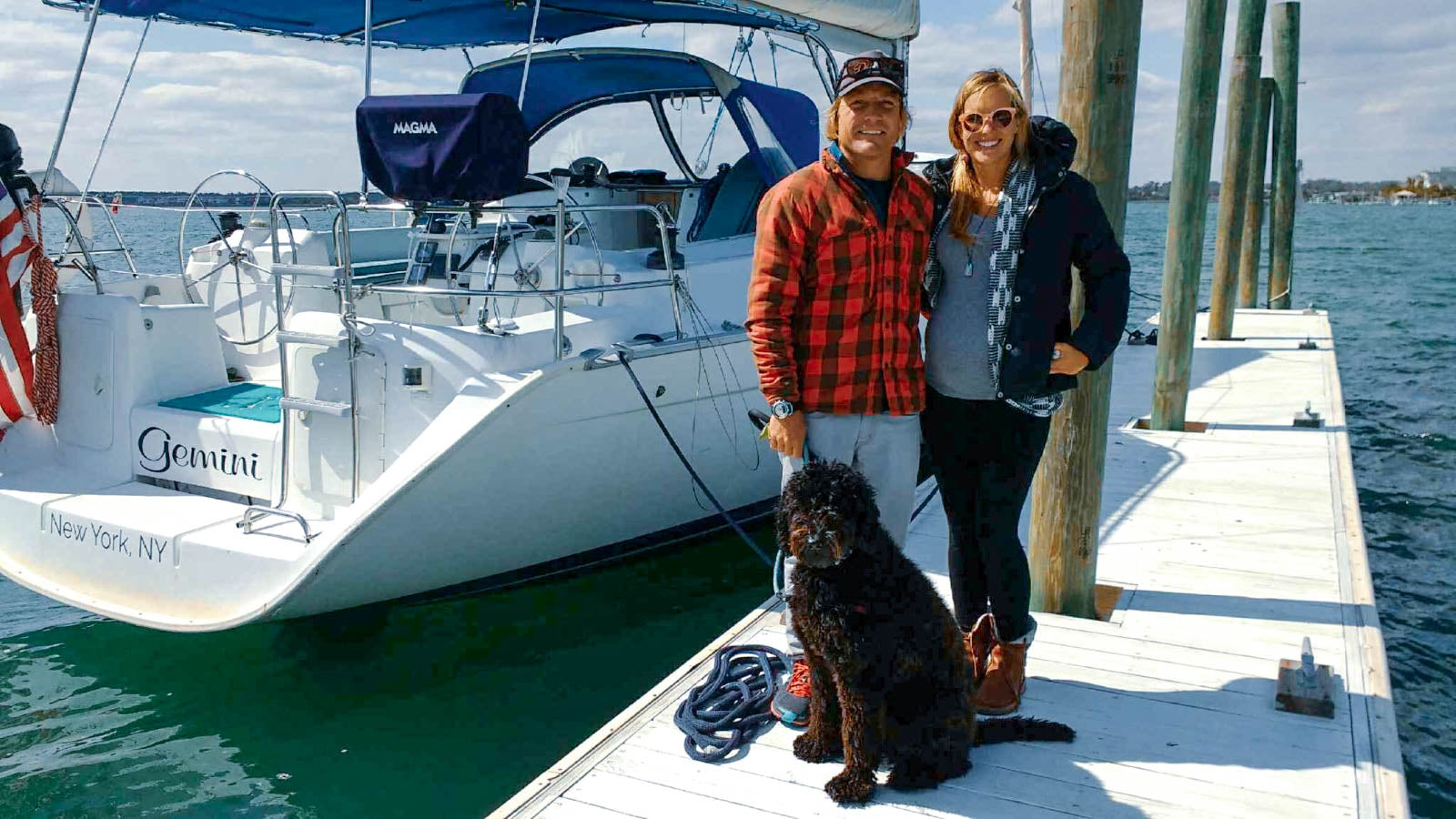
news
YOUNG CRUISERS: TAKING CHANCES CREATES OPPORTUNITY
YOUNG CRUISERS: TAKING CHANCES CREATES OPPORTUNITY
A Story About Living Each Day to the Fullest
By Caroline Gentry Rowell
Imagine, if you will, it is the late summer of 2010. I am 21 years old, just graduated university, have taken a respectable office job and just moved into my new, cute and cozy two-bedroom apartment– as my parents threatened to never help me lug all of my stuff in a U-Haul again. Well, now picture three months later, when I come blazing into my parents’ suburban home, telling them that I have met someone- more specifically have “fallen for” my college sailing instructor and… I am quitting my job, breaking my lease that they reluctantly cosigned, hopping on a plane to St. Maarten, and planning to sail the Caribbean and Pacific…with him. Honestly, I am still wondering how my dad didn’t have a heart attack on the spot?!
“I eagerly wanted to trade stability for adventure. So here I went…”
Had we only been dating for a couple of months? Yes. Did I know how to sail? No, I was too busy being wooed to grasp more than the basics of rigging a 420 and had never sailed before college. Was I scared of the unknowns? Duh– but I knew that I had to do this or I would always look back with regrets (and we need none of those in our lives). I can still feel the butterflies, a mixture of excitement and nerves, and remember the tears as I told my family and friends goodbye before I boarded the plane. But I knew that this was me living my dreams– I eagerly wanted to trade stability for adventure. So here I went…
It’s been ten years. That aforementioned “sailing club president” is my husband, we have a beautiful almost 2-year-old who is growing up spending his time between the mountains of North Carolina and cruising the Bahamas, and we hope to inspire others to live out their dreams and trust the unknowns (especially if they involve sailing/ cruising).
In the past 10 years, we have collected enough memories to last us a lifetime. Our travels have taken us all over the globe where we have had the highest of highs and the absolute lowest of lows (as many cruisers will also tell you). We have met our best friends bought a business, made new towns feel like our hometown, retrofitted boats, grew a baby in paradise, but we have also lost mentors, been away from family for holidays, and been struck by lightning, all on this cruising journey.
“Change is uncomfortable, the path less paved is bumpier, but life is so much sweeter when you live each day to its fullest.”
READ MORE
READ MORE
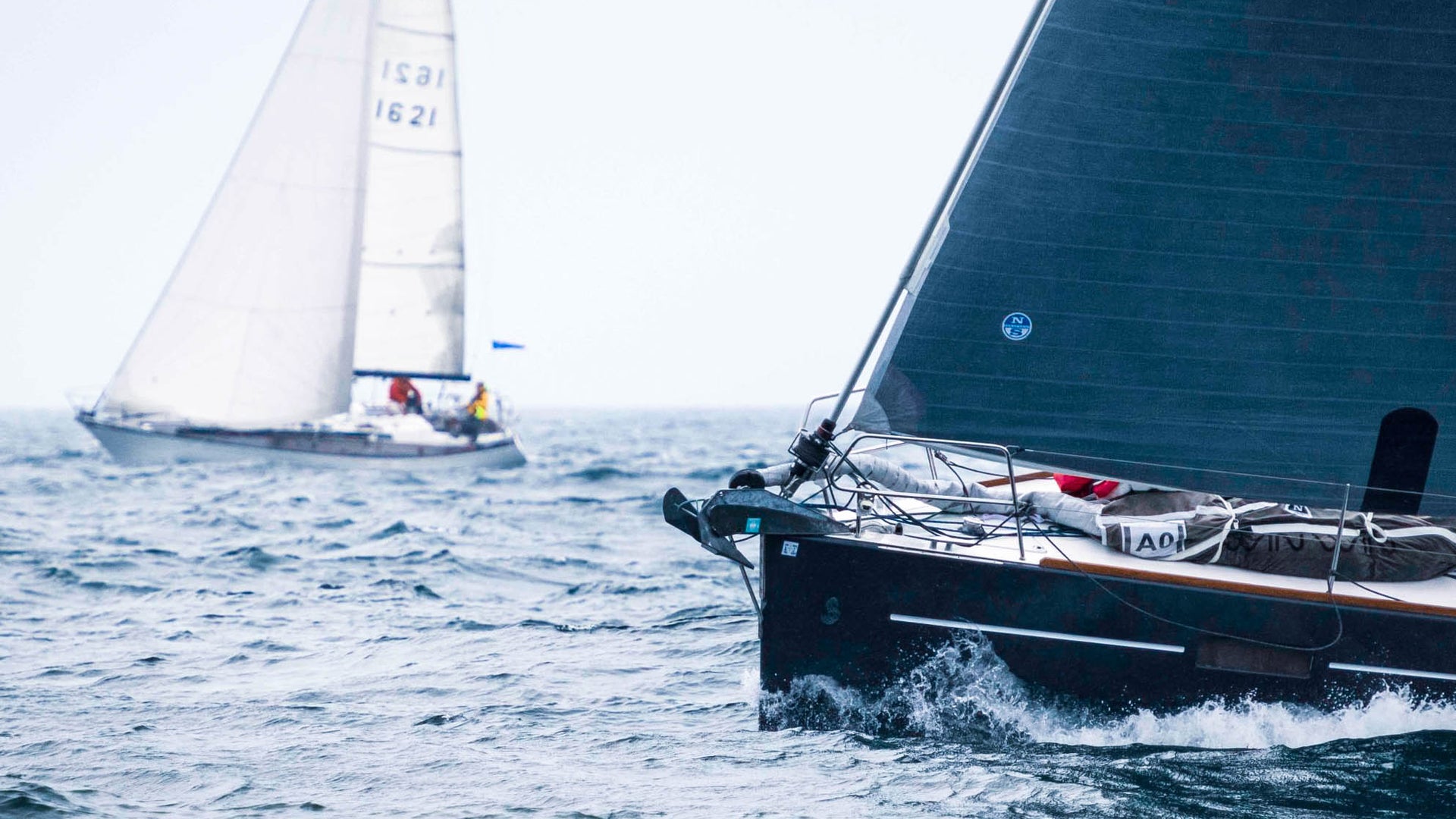
news
SAILS, SERVICE & LOCAL SUPPORT
NORTH SAILS IS OPEN FOR BUSINESS
But the fact is, we never closed
It’s still a complicated time in many places around the world, and a huge thank you to our entire North Sails team, clients, and friends who have pulled together in a way that is quite frankly remarkable.
Our summer calendar may not be filled with the normal regatta schedule, and local guidelines are certainly making us look at all aspects of our lives, but sailing remains a unique way to escape from day-to-day pressures on land. Many new and creative events are popping up around the world: single-handed, double-handed, social distance crewing. Our calendars are filling up with a unique style of racing, alongside day-sailing and cruising of course. Simply, “getting out there” is our new normal.
So what’s been going on at North Sails?
North Sails have 110 sales and service sites, and seven manufacturing facilities globally. We did have limited production for a time but are now running at full capacity at our manufacturing sites, and have been since mid-May. Some of our delivery times were pushed out a bit because of government restrictions at specific locations. Still, our manufacturing team has kept safety at the forefront while getting back on schedule. The great news is, we have already caught up to the point of taking new orders for delivery as early as July.
As always, your local North Sails sales and service team are on hand to help and to answer questions as we help get you back on the water. Pre-season service, measurement, new sails, tuning, sail checks, we are simply a phone call away. Our Certified Service facilities are open globally, with many facilities offering curbside pickup and drop off. Use our loft finder below to access contact details and get in touch with your closest North Sails.
We spend every minute of every day, making beautiful sails that improve your sailing experience. Take advantage of the North Sails expertise, and find out how much more fun you can have on your boat.
FIND YOUR LOFT TALK TO AN EXPERT REQUEST A QUOTE
READ MORE
READ MORE
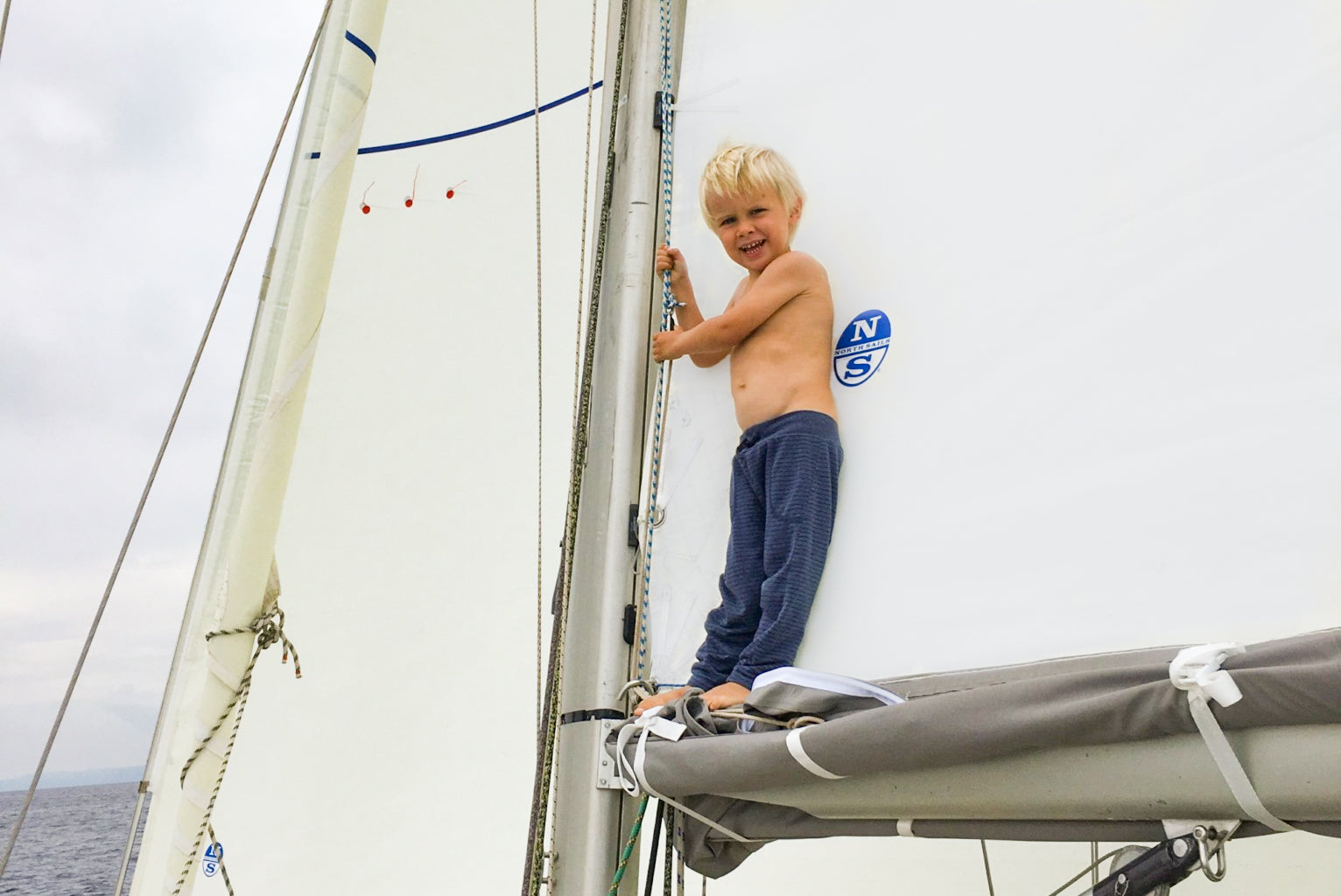
news
BLUEWATER CRUISING ON WAKAKI: PART II
BLUEWATER CRUISING ON WAKAKI: PART II
Kilian Goes Cruising
North Sails Expert Warwick Kerr (Wazza) owns a Spirit 36 called Wakaki, hull #45, built in 1991. She had one owner before Wazza. “This boat was a good compromise between my modern racer mentality, and my wife’s more traditional long keel, heavy cruiser mindset.” Hear about their trip, their boat, and their sails in part I of Bluewater Cruising on Wakaki.
Kilian and his parents cast off in October of 2019 from Mallorca with nothing but a vast open ocean in their sights. Sailing south to the Caribbean is where they’d find their stride, bouncing from port to port, having fun, swimming, and learning new things. The family cruising life has taken hold of each family member, and Kat, Wazza, and three-year-old Kilian couldn’t be happier to share this experience together. So far the family has been all over the Caribbean, currently residing in Sint Maarten with hopes of heading down to Grenada in a few weeks to meet new friends and fellow cruisers.
“The day we arrived to the Caribbean from our Atlantic crossing, we told him we would go check out a beach so he could run and ride his bike. Kilian shook his head and replied; ‘No mama, I want to keep sailing.”
📸 Ryan Borne
Kilian has had some unique opportunities living his new cruising lifestyle. He is learning how to snorkel and has vastly improved his swimming skills. He’s been getting tips from his dad on how to catch fish, too. He is learning the basics of surfing, and wants nothing more than to get up close and personal with sea life. Snorkeling with mom and dad is a real treat, with the safety of his parents and his eyes down in the sand spotting fish, rays, and the colorful corals. “He gets very excited when he sees turtles and dolphins. We aren’t sure there is anything he doesn’t like out here,” says Wazza. Wazza and Katrin couldn’t be more proud. Kilian plays a part when it comes to setting their anchor by helping his mom and dad communicate from bow to stern. “When it comes to helping his mom and I with our 3Di NORDAC sails, he is in charge of furling our headsails at the end of the day.”
“It couldn’t be possible if Kilian didn’t like what we were doing. Kids are incredibly adaptable and live in the moment. No thoughts of consequences, the future, or a pandemic– just living life to the fullest each day.”
Kilian loves eating freshly caught fish. “He is intrigued by lobsters, (which he calls ‘lobbers’), but he doesn’t eat those…yet. He has taken up a new hobby in cracking coconuts drinking the milk and eating the meat. He also digs just about anything that comes off the BBQ,” says Wazza.
While cruising around, the family enjoys kitesurfing and has recently taken up surfing, “which is especially fun with the little one,” says Wazza. So far, the family couldn’t be happier living onboard and traveling around the Caribbean. “It’s incredible the experiences we can share with our son,” says Wazza. “We don’t even have to try. Every day is a new adventure for Kilian, and he loves it all.”
So far, Kilian’s primetime cruising highlights include exploring ashore in Gibralter, where he got to see monkeys. Onboard is most entertaining since the dolphins are always coming by the boat. He also likes to look for stingrays. Kilian is looking forward to sailing and being free to adventure. “Swimming and snorkeling are his main priorities at the moment”, says Wazza, “but he seemed keen to go kiting with me at some point.”
The family has shifted most of its land activities to water activities, which has made a whole new world for their son. “He’s most interested in what’s happening underwater, and now that he knows how to wear his mask and snorkel, he can be part of it.”
“He’s learning a ton about the outside world, and he’s not as shy as he was at first with getting to know people and being open to meeting new people.”
Wazza and Kat are teaching Kilian new things every day. “He knows the weather and the wind, and knows when it’s going to rain.” When the family is looking for a new spot to anchor its Kilian’s job to communicate between his parents on maneuvers. When they pull up to a new mooring, he helps make sure both mom and dad know what is going on. Helping his family fix things onboard, and being part of the action is what he’s all about.
When it comes to eating, the family keeps it very healthy yet exciting. “We make our own muesli and granola,” says Wazza. “We’ve caught tuna, Mahi Mahi, and Wahoo. There are some places where you are permitted to spearfish so that we can catch lobster and grouper, too.” Porridge with fruit or our boat-made granola is his go-to for breakfast. “We have a fun tradition with Kilian, where we find a new spot and anchor for the night and make pancakes the next morning in our ‘new’ place.”
Kilian has taken to the lifestyle and being onboard Wakaki very well. It’s like the perfect world for him. He has his toys, his cabin, his swing, and ropes and lines to climb. “He just loves the boat. He’s very comfortable when he’s onboard. His cabin has turned into his calm space,” says Wazza, “giving him all the feels of a safety blanket where he can relax if he’s a little tired and gets cranky, or if we are out and about and he’s ready to go back ‘home’.”
Kilian has met a lot of people along the way, but his favorite person tends to be the one who he is spending time with at that moment. He really enjoyed catching up with some old friends from Mallorca who were visiting Antigua a few weeks back. He’s recently made friends with the daughter of the dock owners, where Wakaki is stationed at this time. “He’s learning a ton about the outside world, and he’s not as shy as he was at first with getting to know people and being open to meeting new people.”
With certain islands strengthening their lockdown procedures, we’ve been limited to certain places and we are now in Sint Maarten for the time being. We plan to head south to Grenada after this, where they have a friendly cruising community. After we get there we plan to stick around there for a bit, exploring the island, and other islands if possible during hurricane season.”
“Kat and I were talking about this the other night. While all of this seems amazing, easy, so perfect, it couldn’t be possible if Kilian didn’t like what we were doing. Kids are incredibly adaptable and live in the moment. No thoughts of consequences, the future, or a pandemic– just living life to the fullest each day. Luckily Kilian doesn’t get seasick. He’s a pretty chilled little dude. This type of life isn’t for everyone, but fortunately, we all enjoy it.”
READ MORE
READ MORE

news
BLUEWATER CRUISING: SPAIN TO THE CARIBBEAN
BLUEWATER CRUISING ON WAKAKI
Spain to the Caribbean with the Kerr Family
📸 Ryan Borne
Warwick Kerr (Wazza), Sail Expert based in Palma, Spain, set off on a cruising trip with his wife Katrin and his three-year-old son, Kilian. They departed from Mallorca in October of 2019 and have been all over the place since, from Mallorca to La Linea, Gibraltar, Gran Canaria, Tenerife, and more recently has made landfall in Antigua and is now in St Maarten. Working remotely, Wazza and his family have fully embraced the bluewater cruising lifestyle and couldn’t be happier doing what they love. Being able to share this experience with Kilian has made it even more special.
Wazza owns a Spirit 36 called Wakaki, hull #45, built in 1991. She had one owner before Wazza. “This boat was a good compromise between my modern racer mentality, and my wife’s more traditional long keel, heavy cruiser mindset.” When the family set off from the docks in Palma; they didn’t have a firm plan on how long they’d be gone.
They had a general idea of spending two seasons in the Caribbean and then heading into the Pacific, which has been a life-long dream to tick off their family bucket list. Other than that, it’s ocean traveling from port to port, seeing new places, meeting different people, and making memories together.
“We don’t have any fixed plans, just cruising around to see where we end up. As long as we are enjoying it, which we are! We will keep on cruising!”
Wakaki is fully equipped with a North Sails 3Di NORDAC mainsail, a genoa, and a staysail. Their spinnaker is a little older, but she’s holding strong, Wazza says. “I have my sights set on a tradewinder at some point to give me even more options.”
📸 Ryan Borne
Wazza worked with North Sail Designer Kevin George to fine-tune his custom refit. “Kevin is a good friend of mine, and we spent a good amount of time working on the designs to find the right shape that would optimize my family sailing trip. Everything is working out great,” Wazza says. “I can say the reefs in our mainsail are perfectly positioned, which gives us a lot of wiggle room, or a little if we choose. Our sails now have a little over 5,000 nm on them, since they were installed in September of 2019.” Wakaki’s genoa and staysail are furling and reef-able too, which makes things even more ideal for his easy cruising lifestyle.
“We don’t have any fixed plans, just cruising around to see where we end up. As long as we are enjoying it, which we are! We will keep on cruising!”
From an overall sail perspective, Wazza feels that his 3Di NORDAC sails are the best investment he’s made for the boat. “My original plan was to build a set of cross-cut dacron sails. I had planned to go old-school, and hand-cut them myself, and build them like I did when I was a sailmaking apprentice, which was in 1996.”
📸 Ryan Borne
“Getting caught up in the dream as we all do, I ended up choosing 3Di NORDAC, which was a one-and-done decision that has made it all possible for us. I have to say, after the miles they’ve seen, and the handling they’ve received, they are still in great shape. They have the same shape they did when I bought them, and are an image of perfection, in my opinion. We do our best to take care of them, but you know how it is, sometimes we are a bit rough on our sails, but they are holding strong regardless of our treatment.” Wazza agrees, a cross-cut sail would have done a great job, but for longevity and hard use over an indefinite period of time– 3Di was the way to go, no question.
“Cruisers are supportive, friendly, and the only regret you can have is not to give it a try!”
Katrin is also making the most of their cruising adventure. “She has always had the dream of cruising the Pacific, so being able to do it now with a family, is her definition of living the dream,” explains Wazza. “Katrin’s parents cruised the world in the ’70s, and my parents did also in the late ’90s and early 2000s. It’s part of our blood, so it’s no surprise we both enjoy it. What’s unique is that both grandparents to our son have sailed around the world, and now we can all share it together, and that is special for us.”
Kat’s dad bought Wanderer III from the Hiscocks (pioneer cruisers and authors of some of the first yacht cruising guides), and he sailed around the world for five years, during which he met Kat’s mother. Wazza’s parents left home when he was 17 to complete their dream journey, which lasted a little less than nine years. Bluewater cruising is a significant part of their family history.
Kat is not new to the sailing world; having grown up cruising and sailing from a young age, Katrin started as chef/mate nearly 20 years ago in the BVI’s with The Moorings and has since been working in the Super Yacht industry. Now the sailing duo can arrive at any port, and offer just about any type of assistance, whether it be sail and cover related expertise, or if someone needs a chef to cater a charter; both Wazza and Kat can do it all.
So this cruising life; Why should we do it and what makes it so special? “Why not!” says Wazza. “Do it, live your dream! The worst thing that can happen is you go back to what you had on dry land. Cruisers are supportive, friendly, and the only regret you can have is not to give it a try!”
Read Part II: Killian Goes Cruising
📸 Ryan Borne
READ MORE
READ MORE
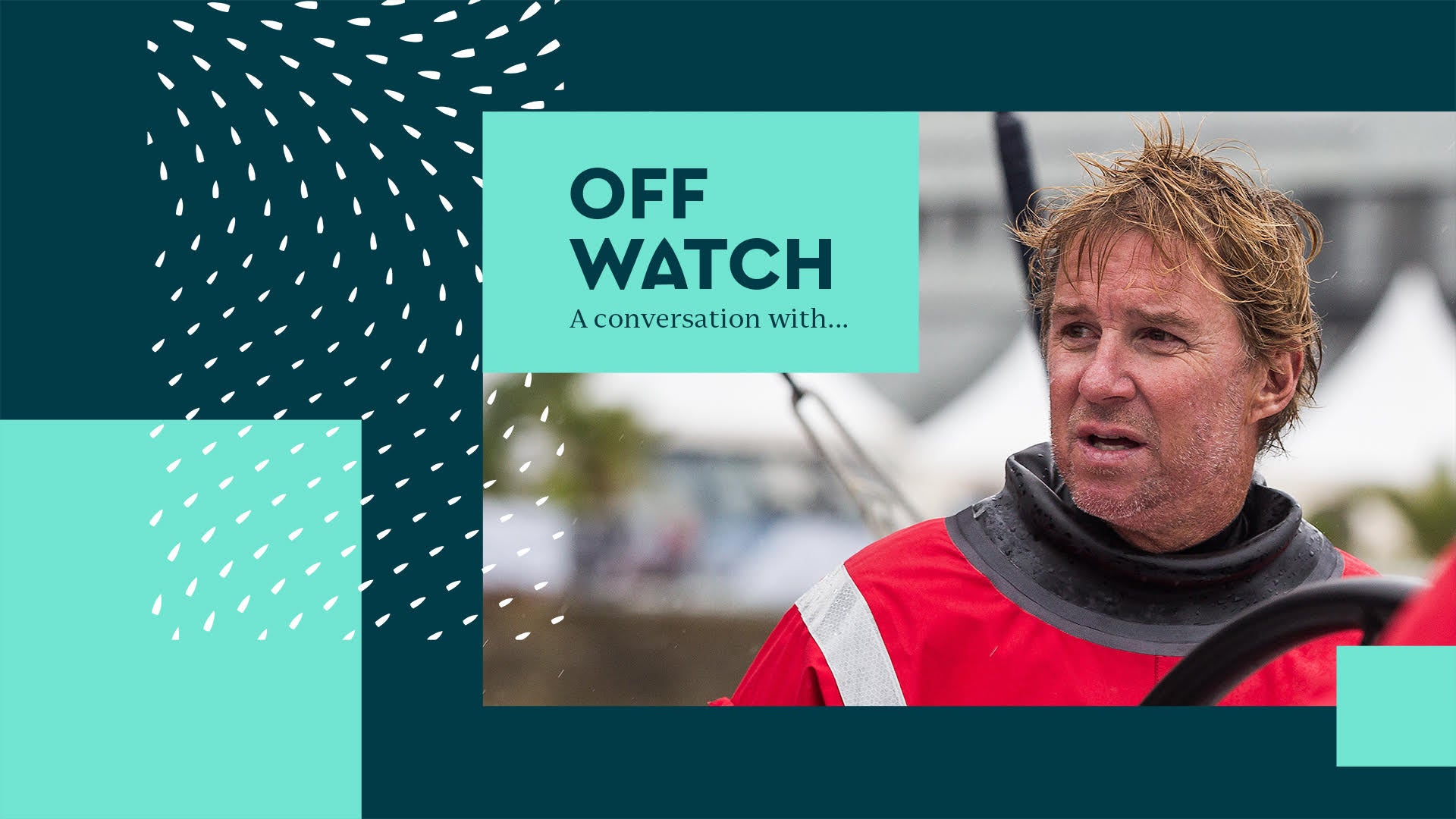
news
A CONVERSATION WITH KEN READ
KEN READ SITS DOWN WITH THE OCEAN RACE’S OFF WATCH SERIES
The President of North Sails and Offshore Veteran Talks About his Journey in Sailing and Leading the Industry’s Most Innovative Sailmaker
A formidable force in the marine industry Ken Read has three Ocean Races under his belt, has been a part of three America’s Cup campaigns, has collected more than a handful of offshore sailing records, and has seen more of the planet’s oceans than most people. He is a two time Rolex Yachtsman of the Year, has won nine world championships and is considered one of the world’s most accomplished and celebrated sailors. Read’s career at North Sails began in 1996, but in 2013, Read stepped up to helm North Sails as a business leader, taking on the role of President of North Sails Group. As one of the most influential figures in sailing, Read is an expert, not just on the water, but in running one of the most successful global brands in the marine market. Ken Read’s legacy at North Sails is a testament to why strategists often refer to businesses as ‘a ship’ and Read has mastered the ability to run a tight crew.
READ MORE
READ MORE
